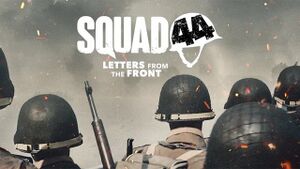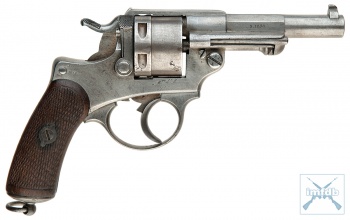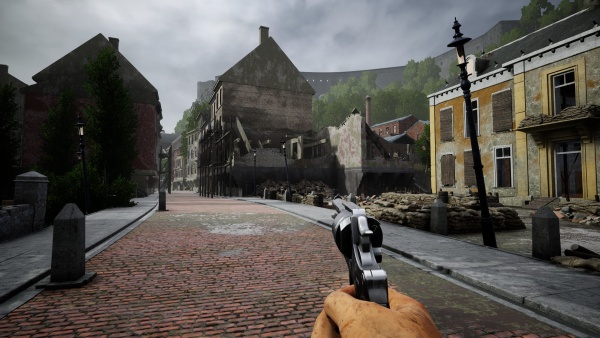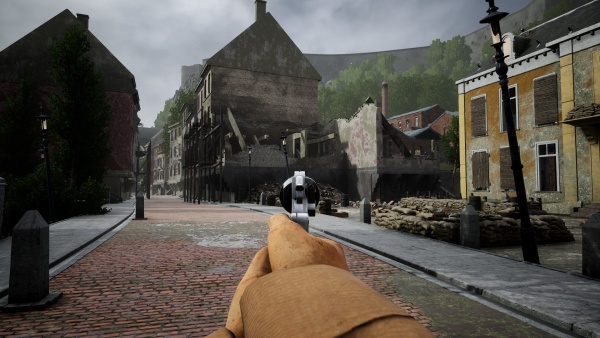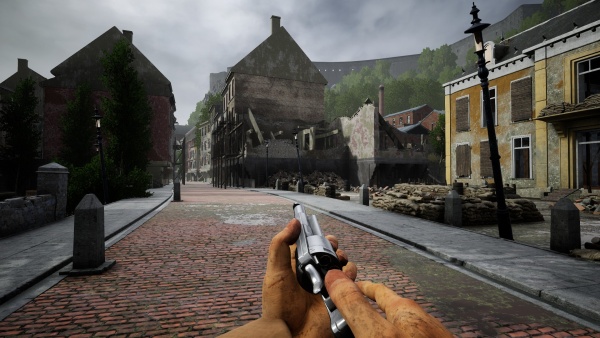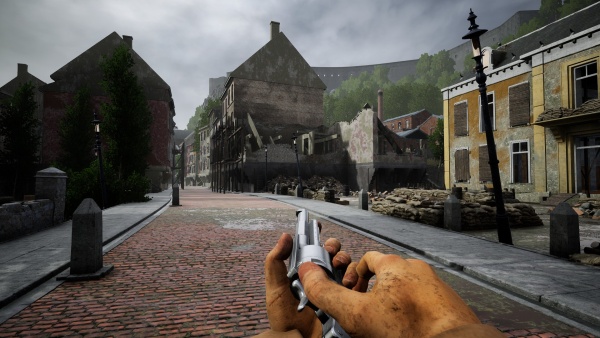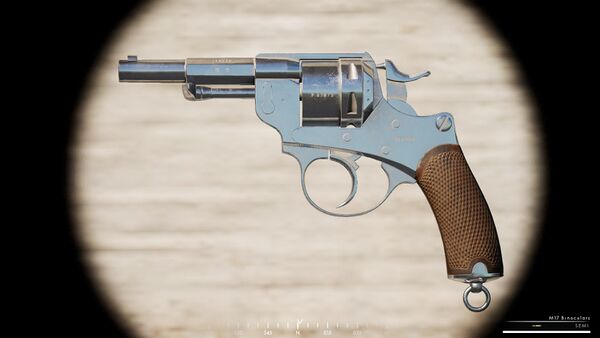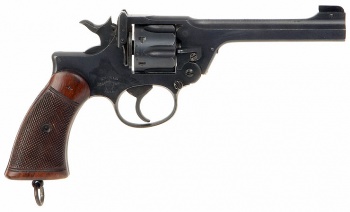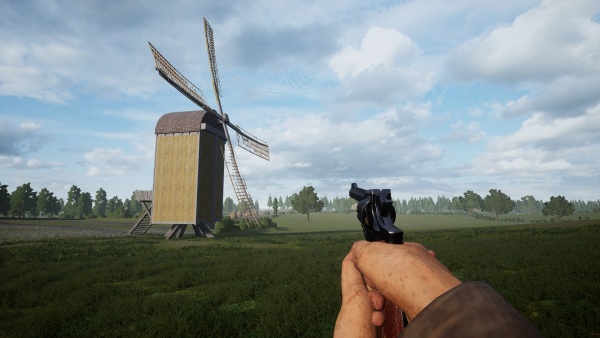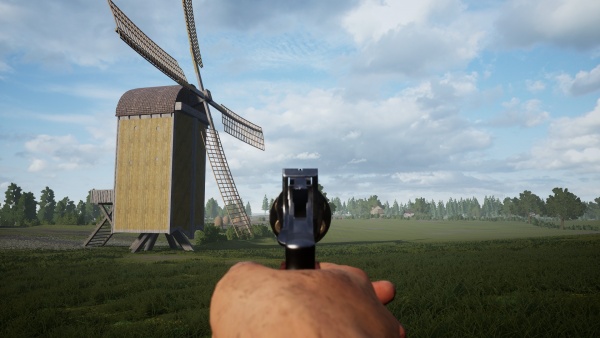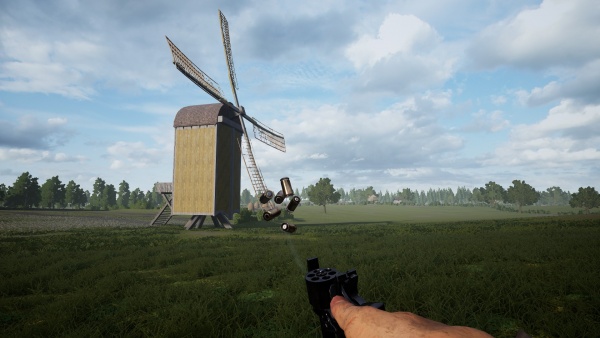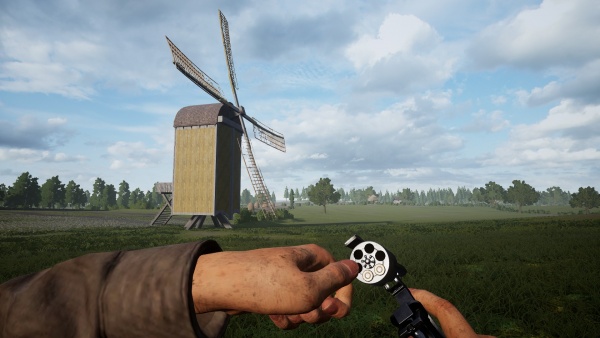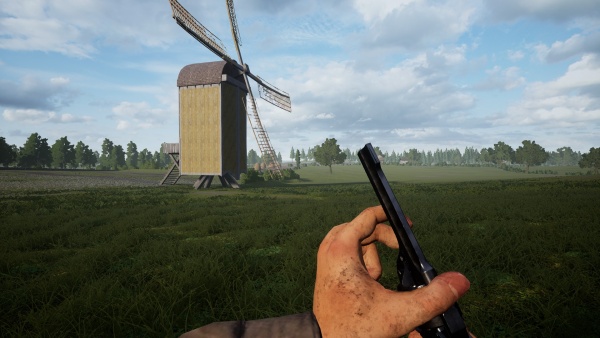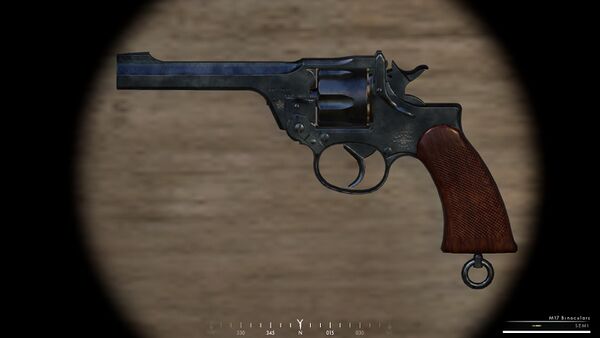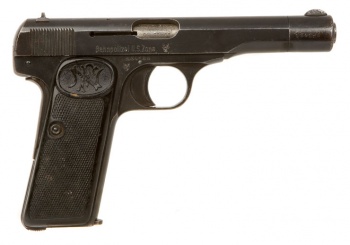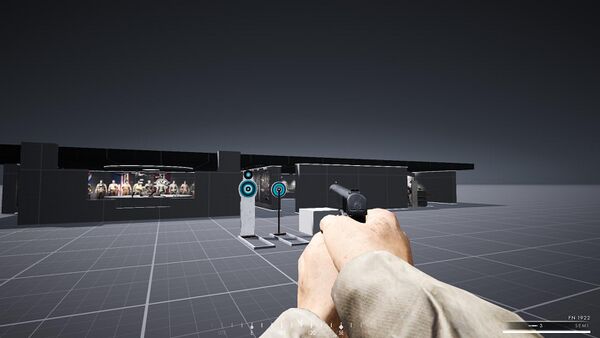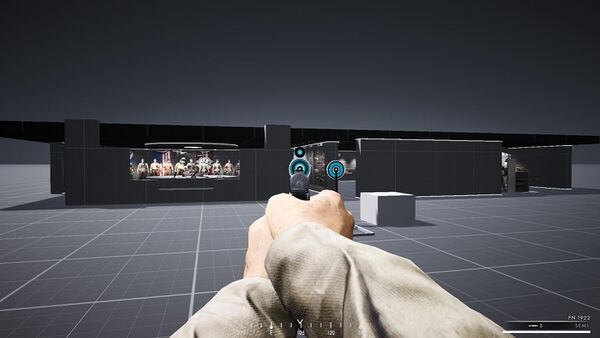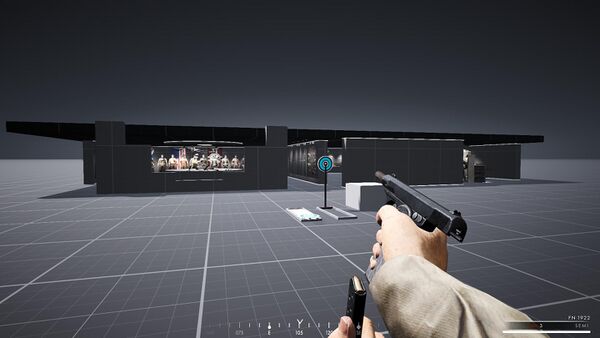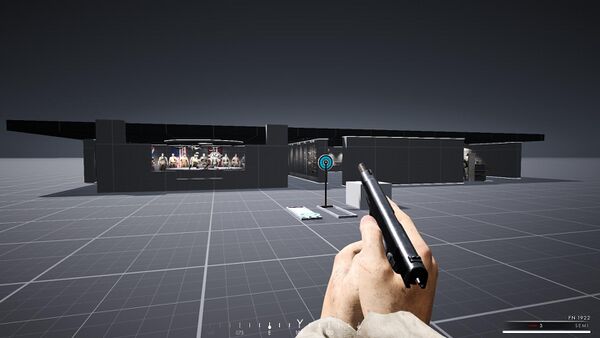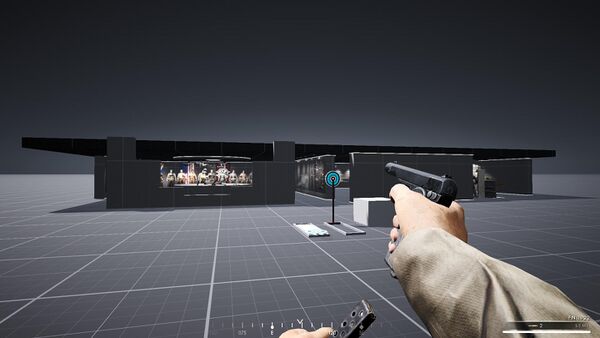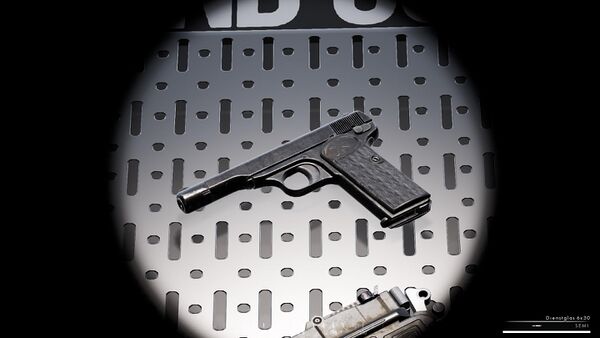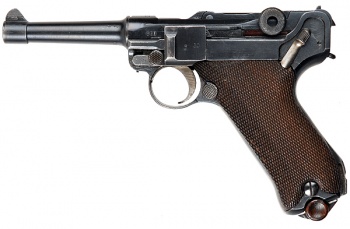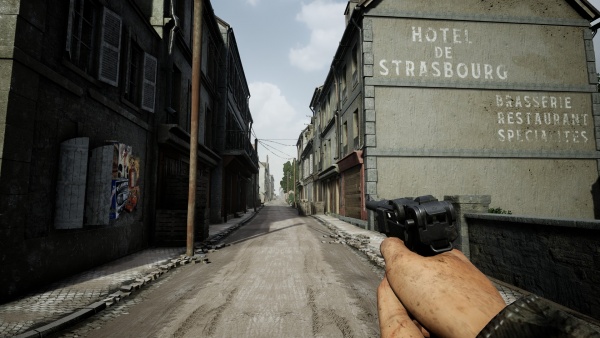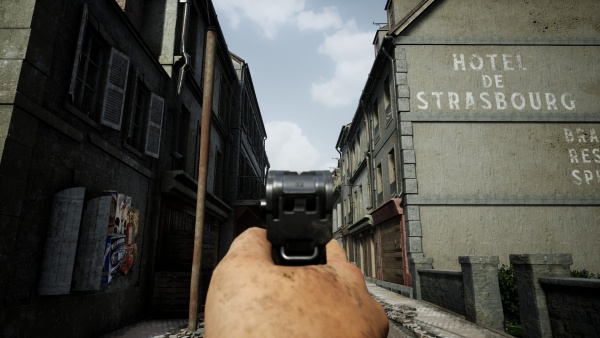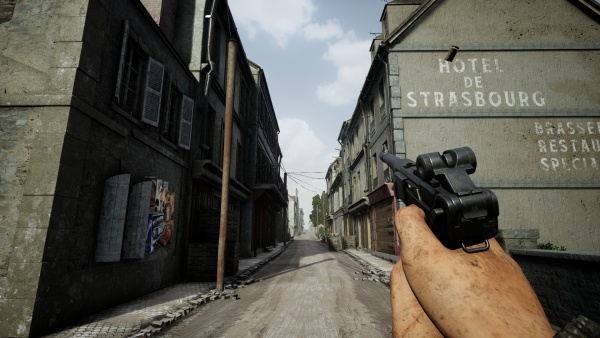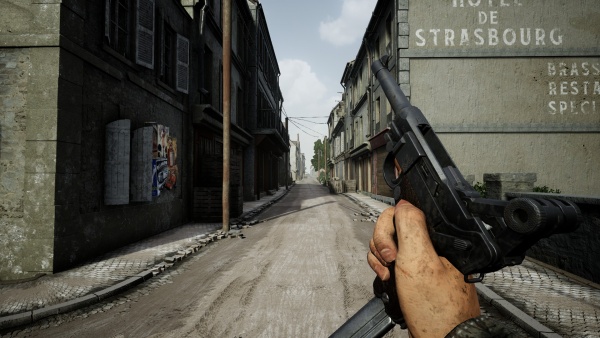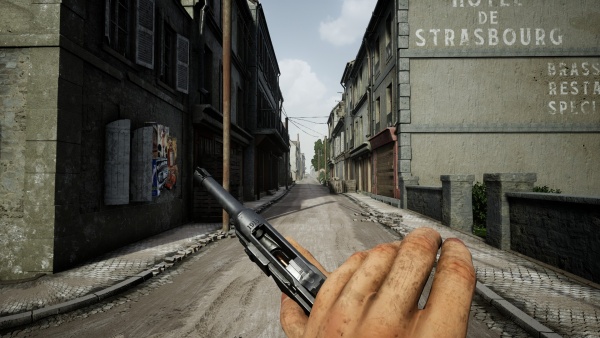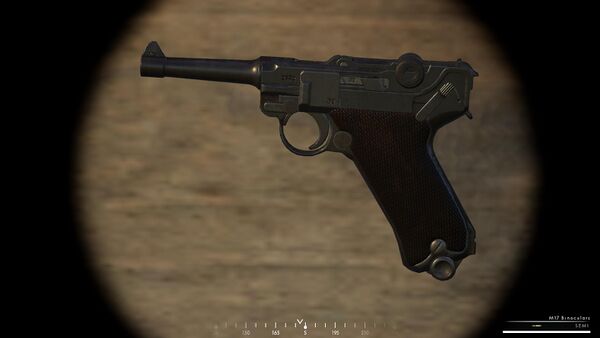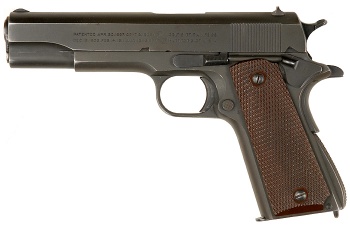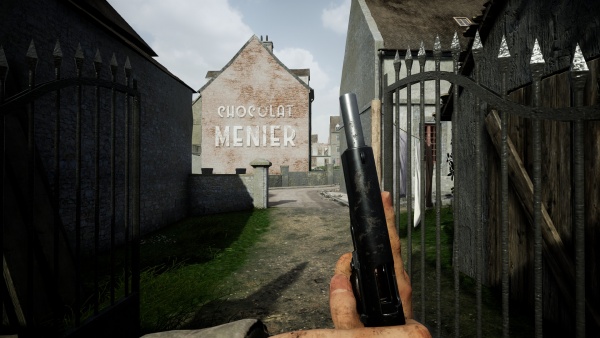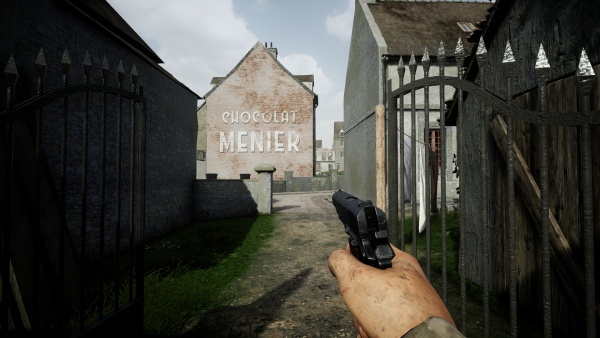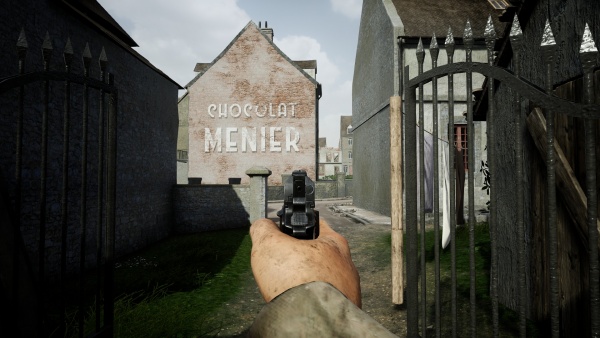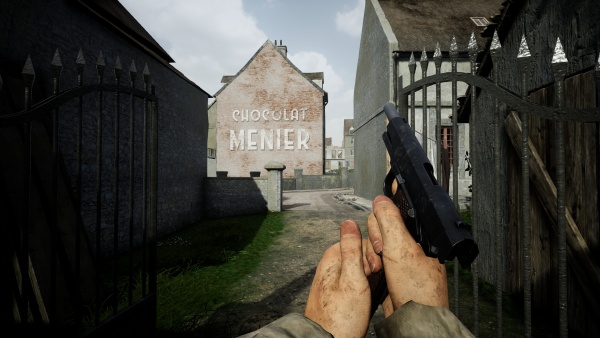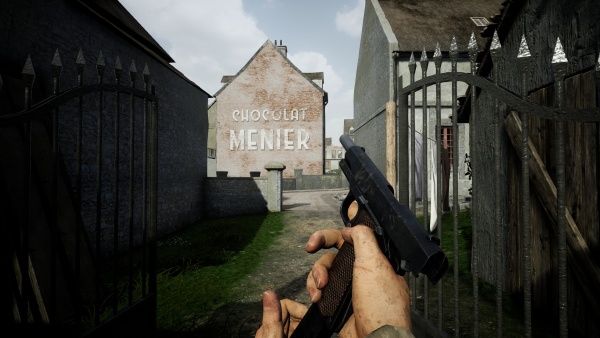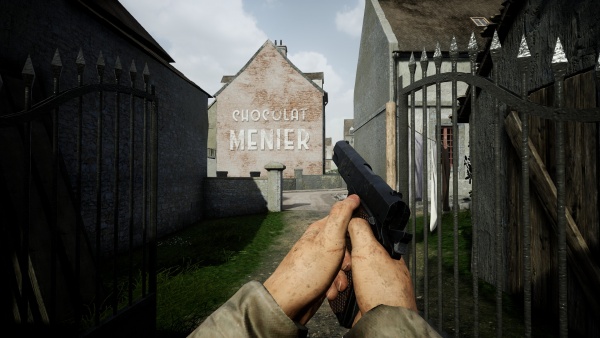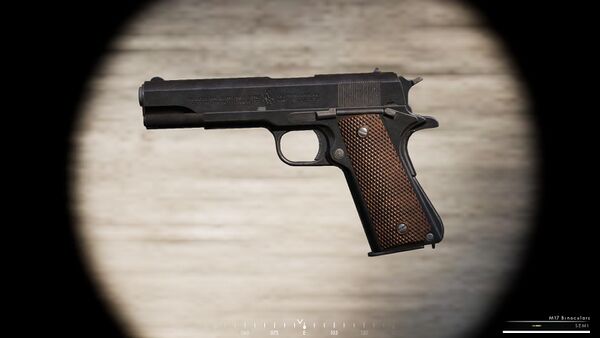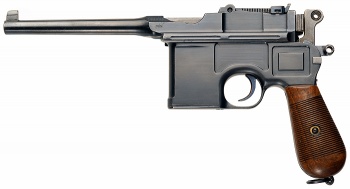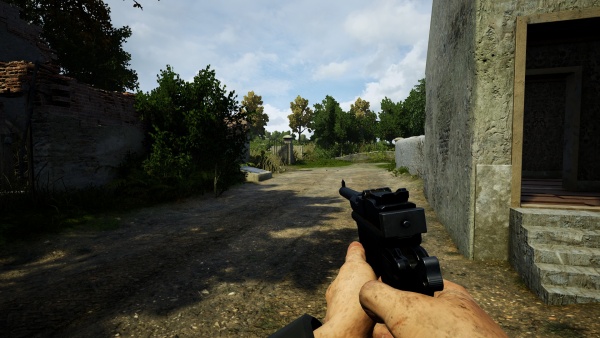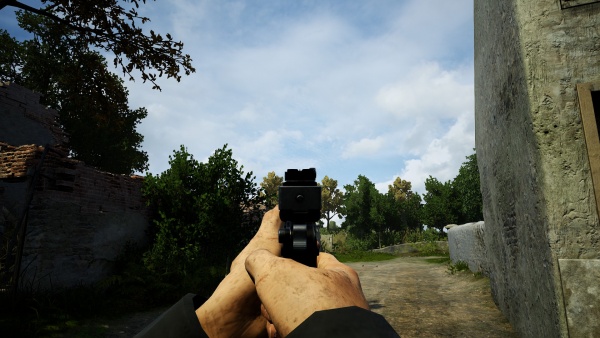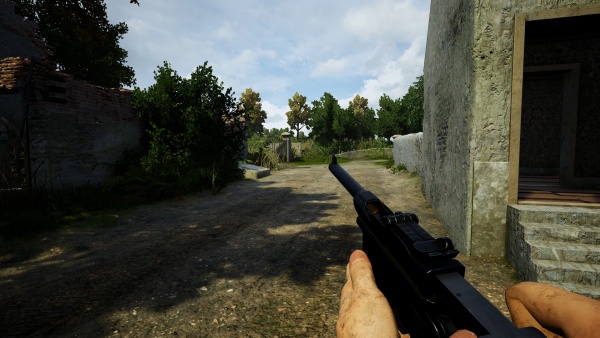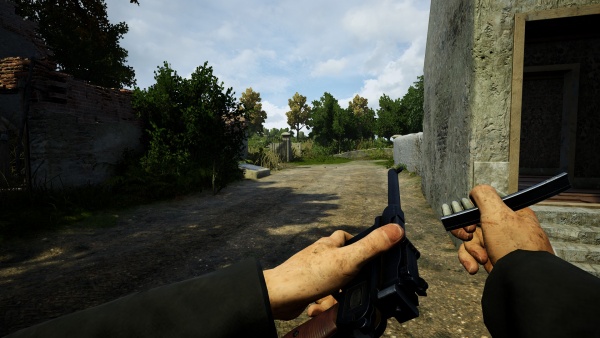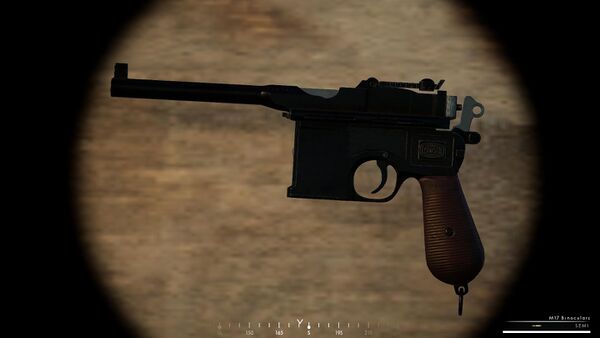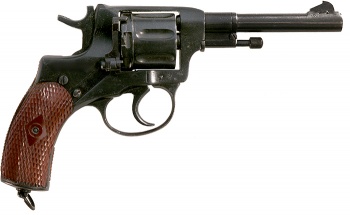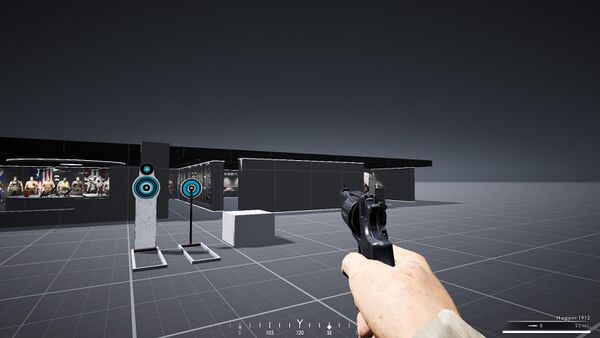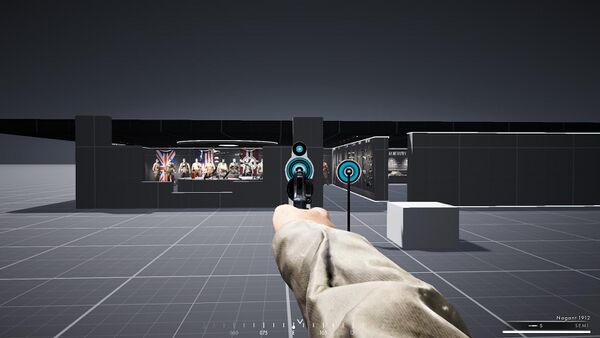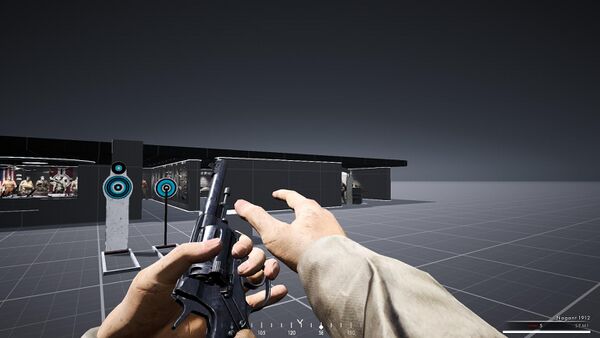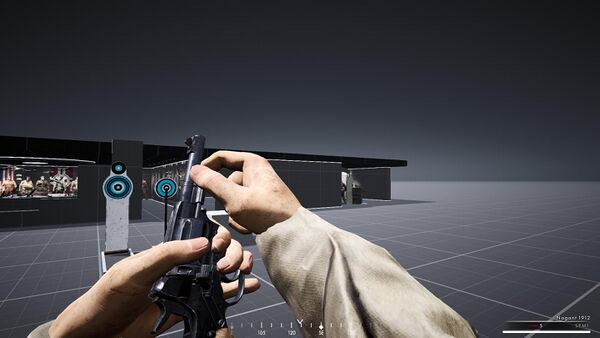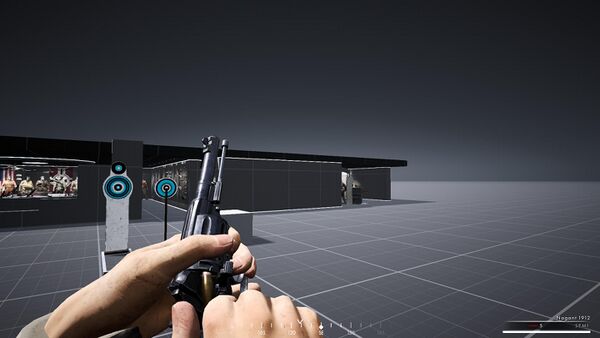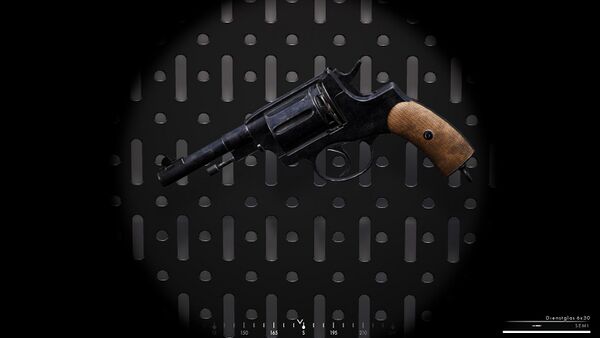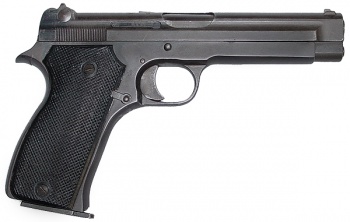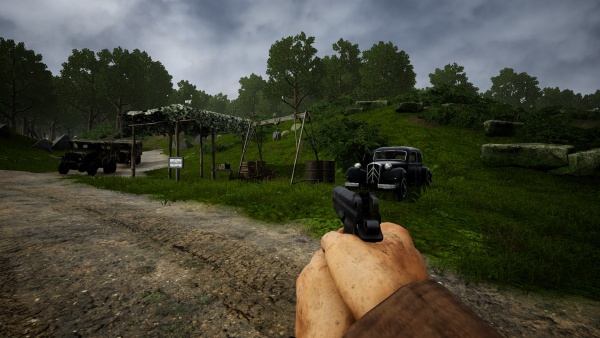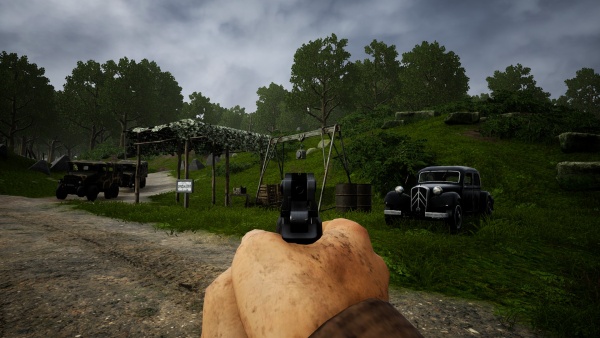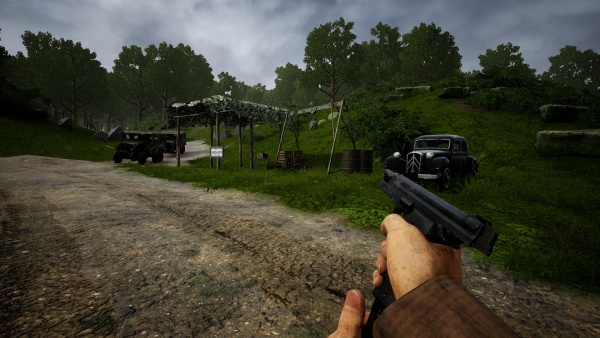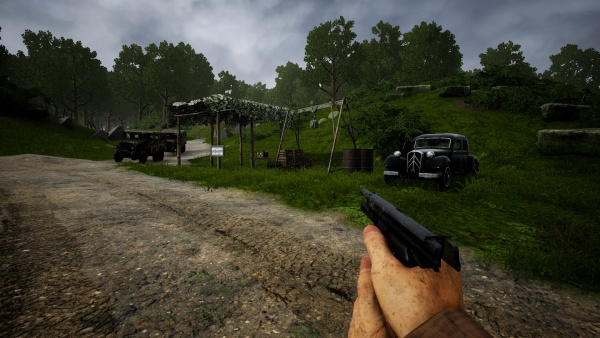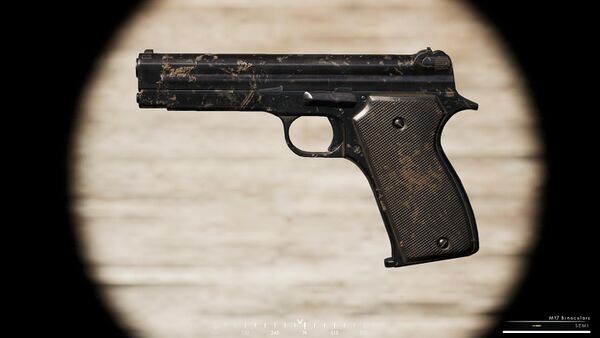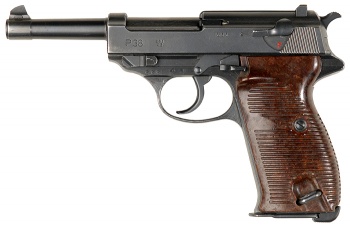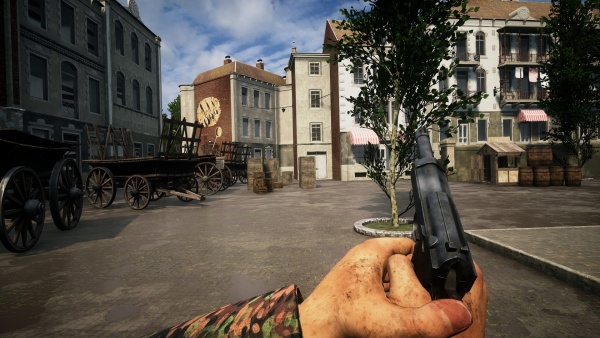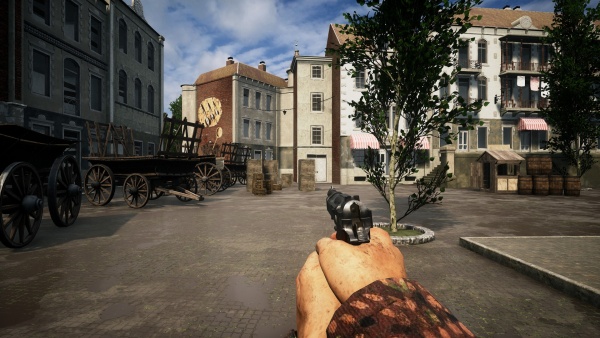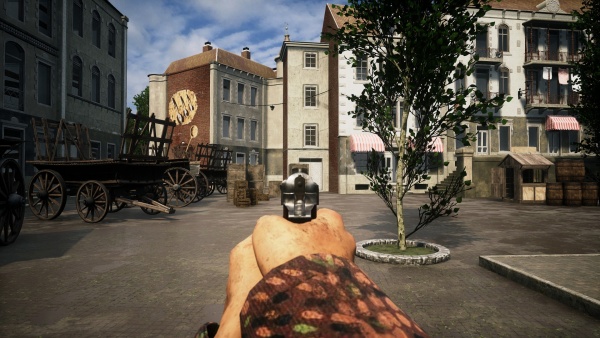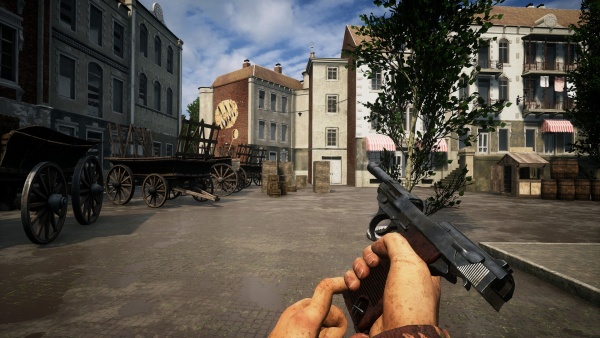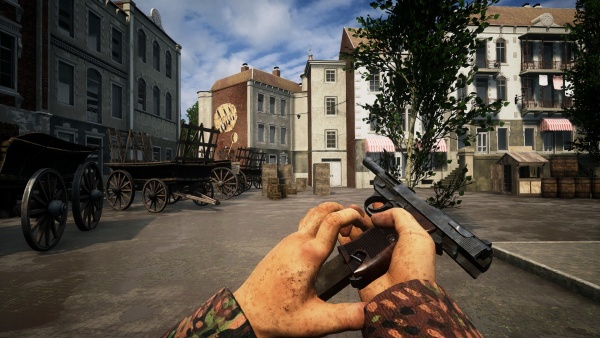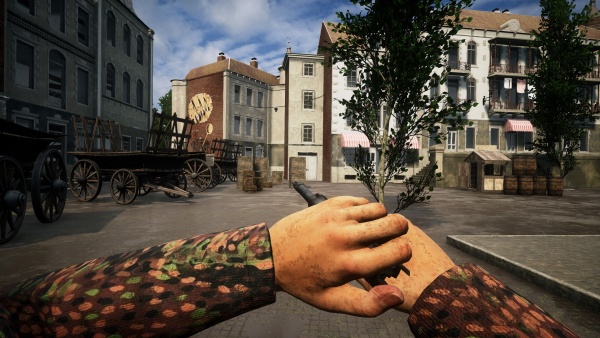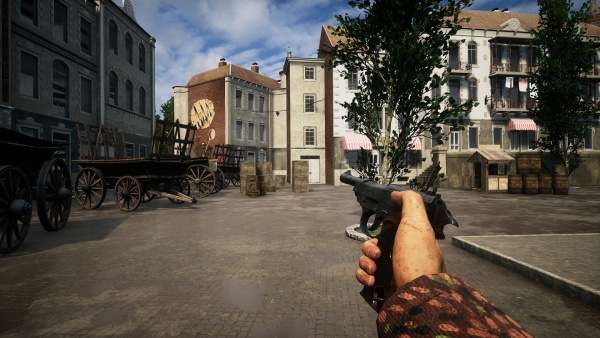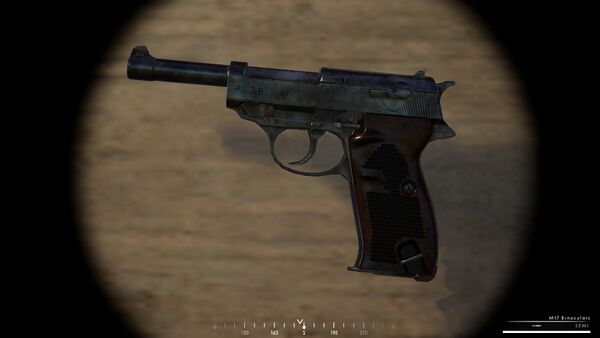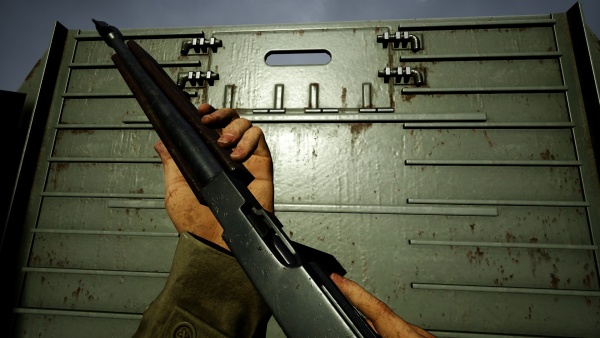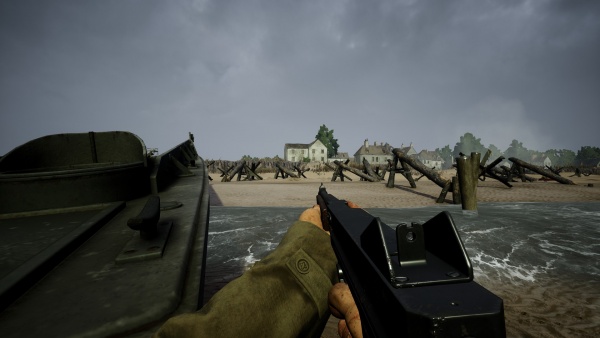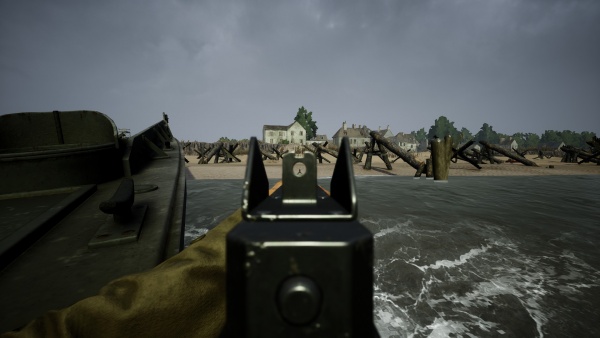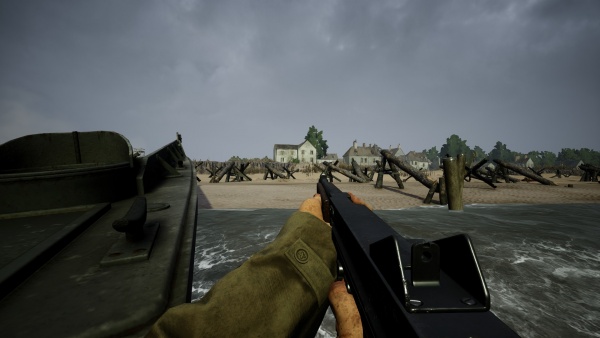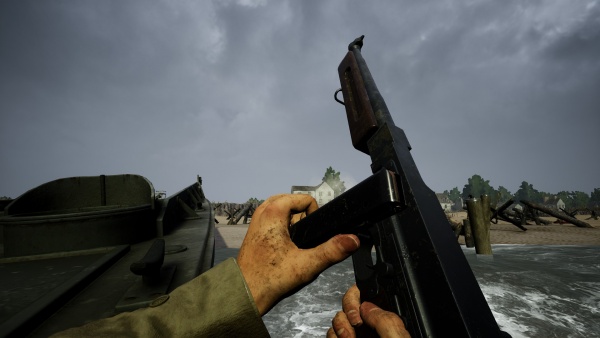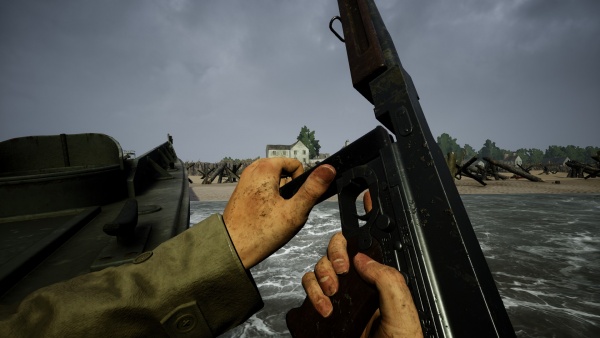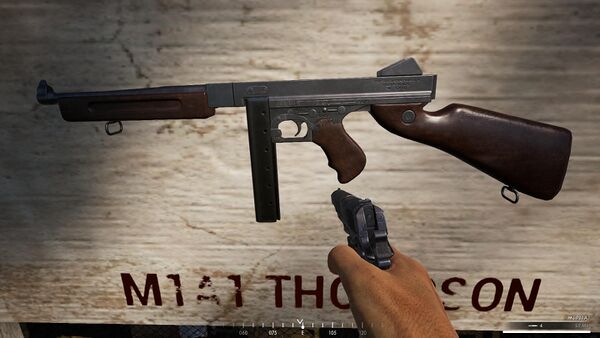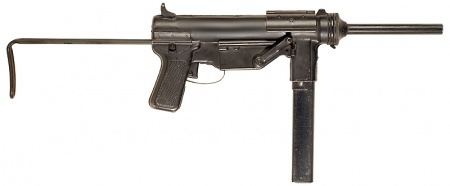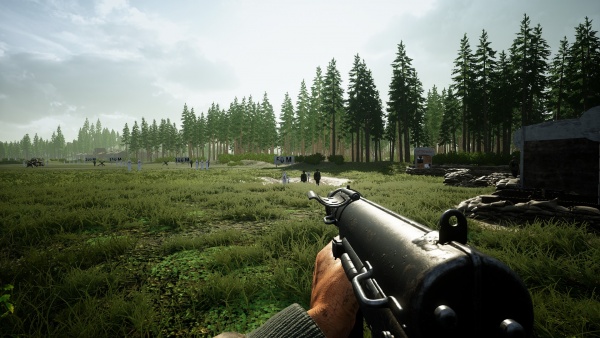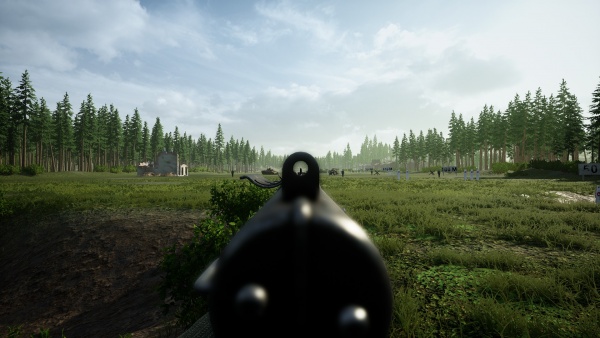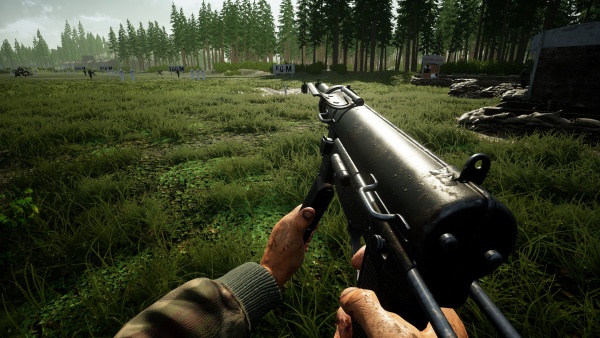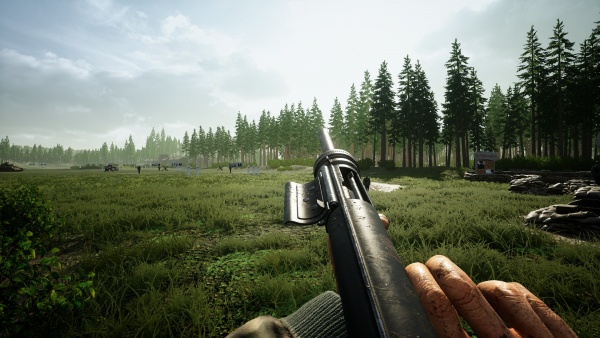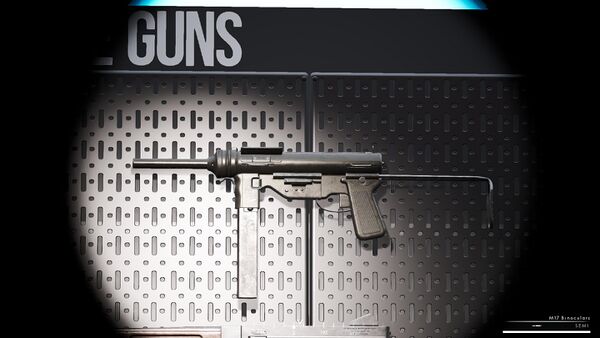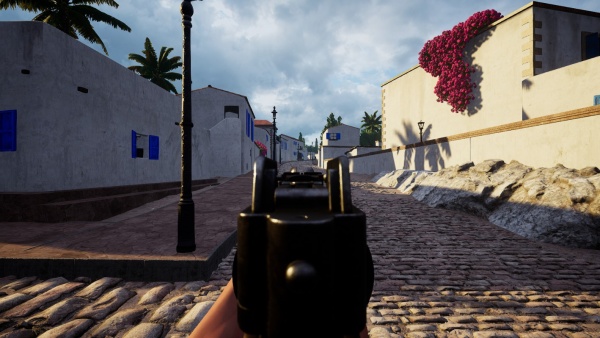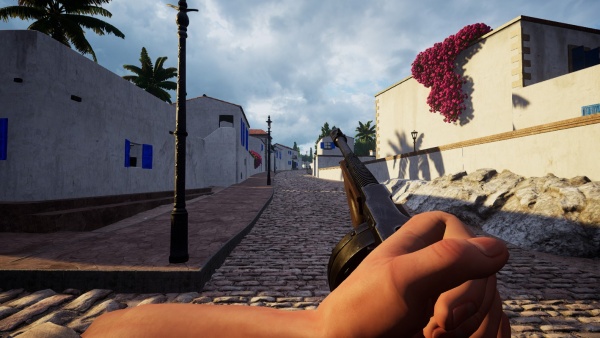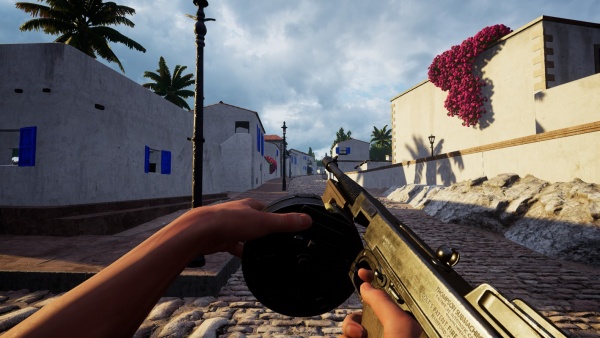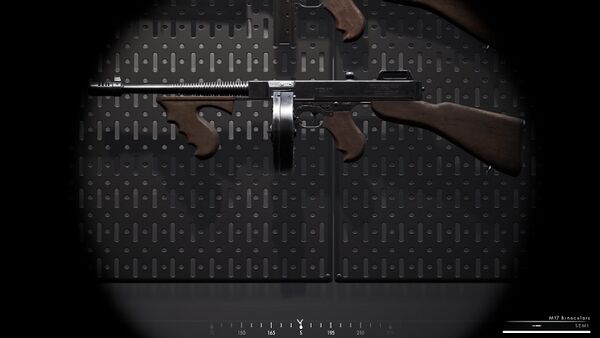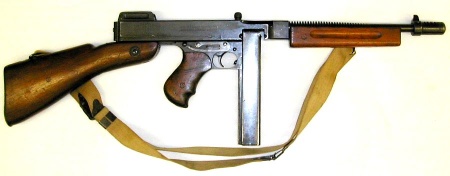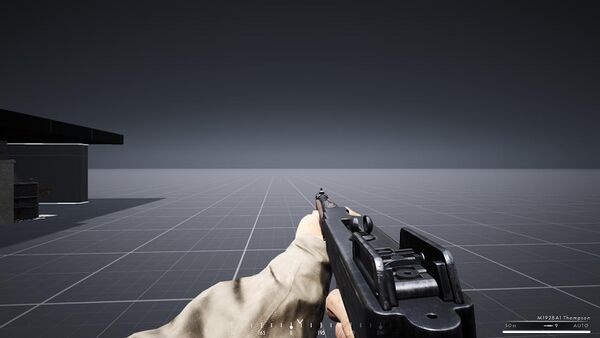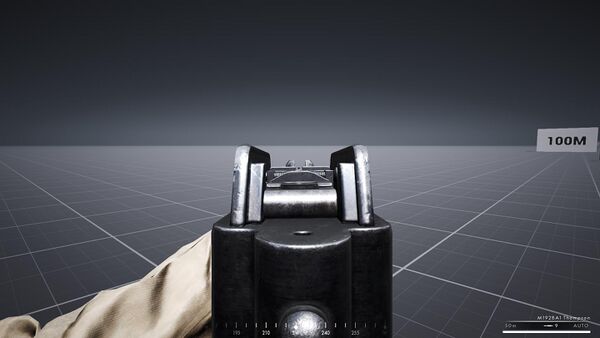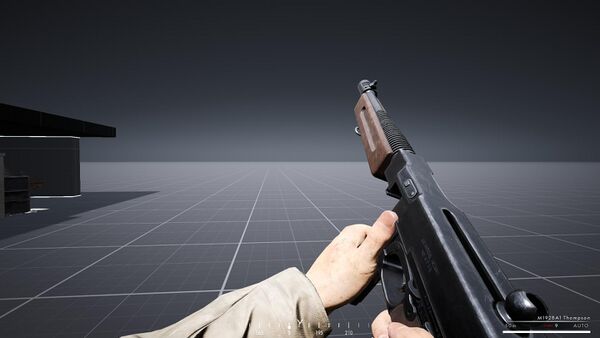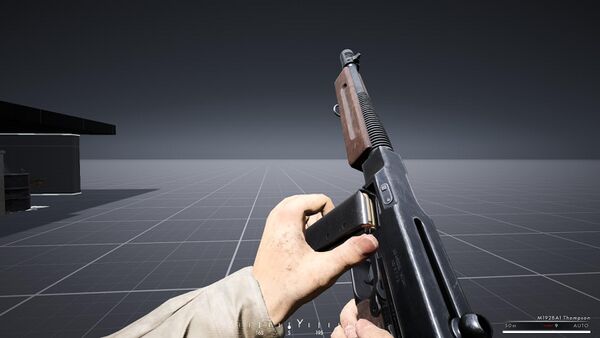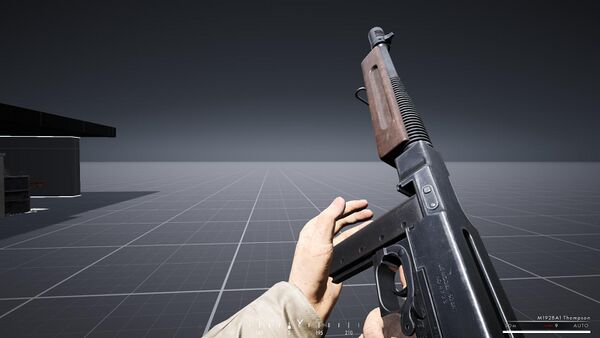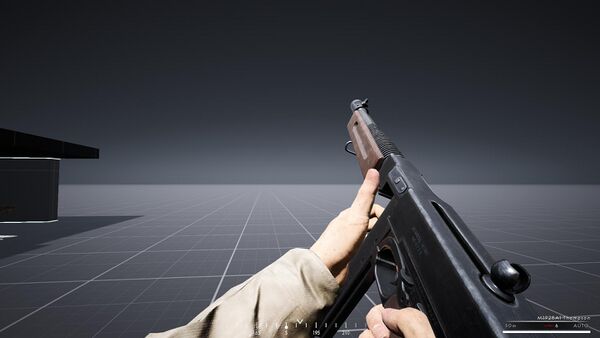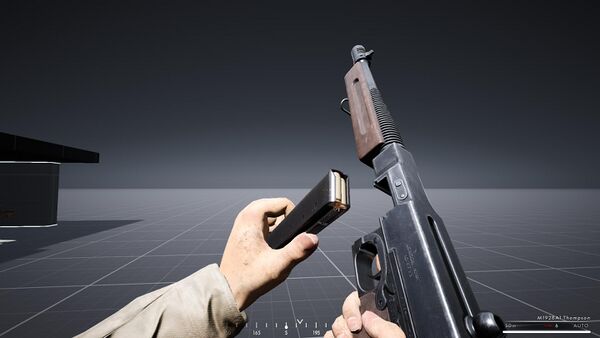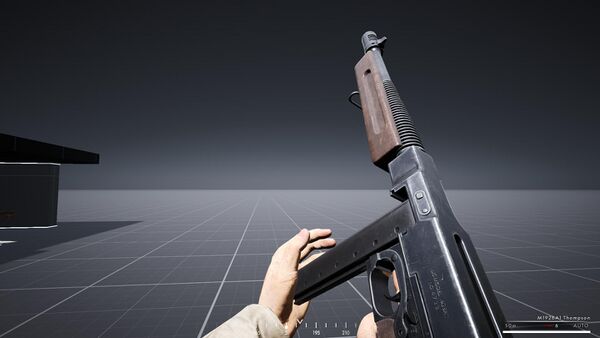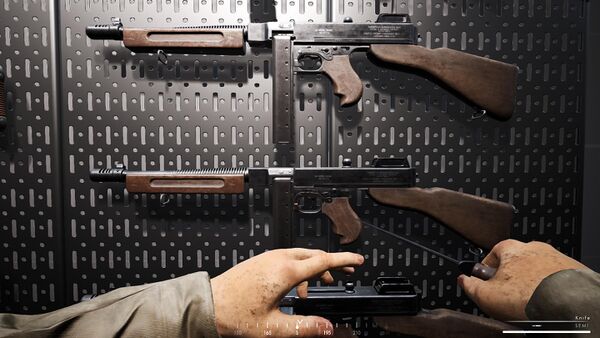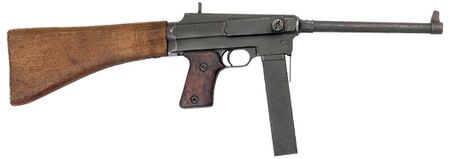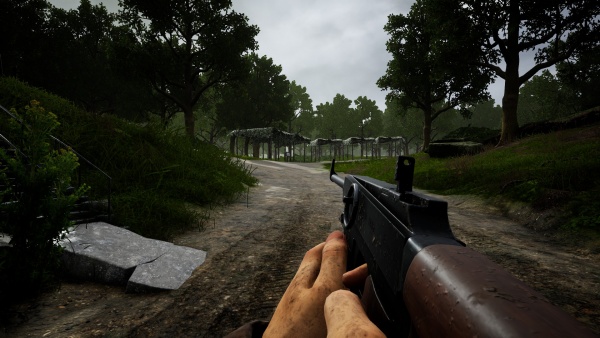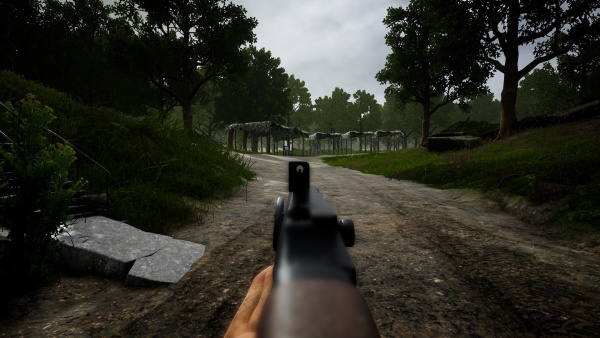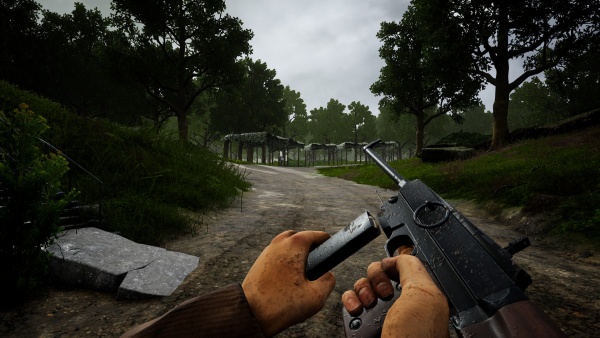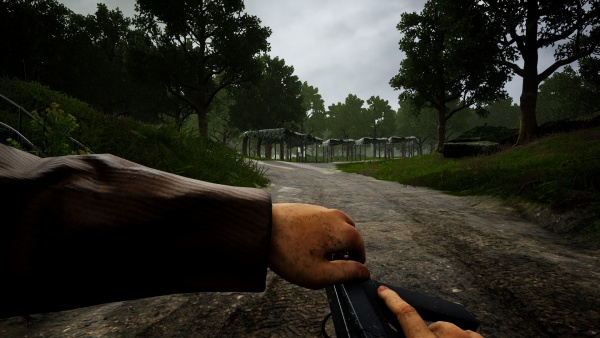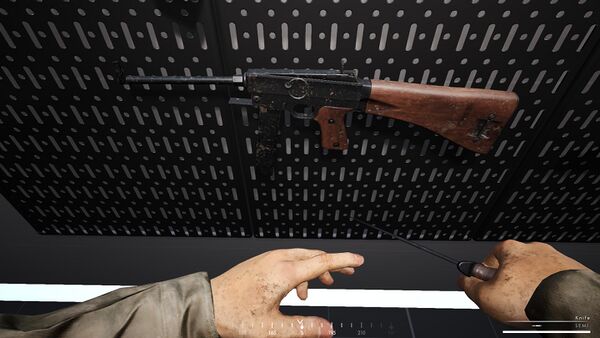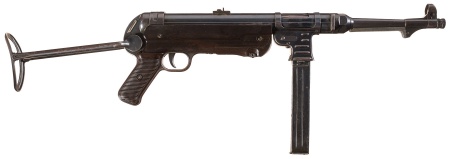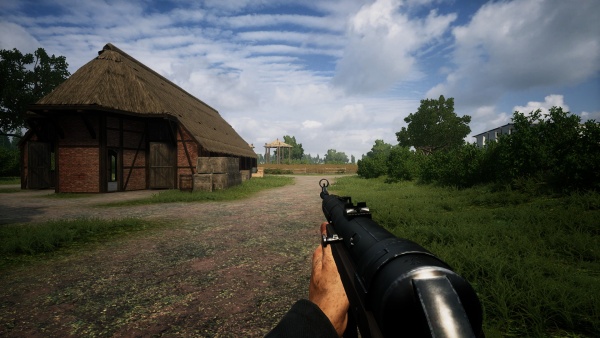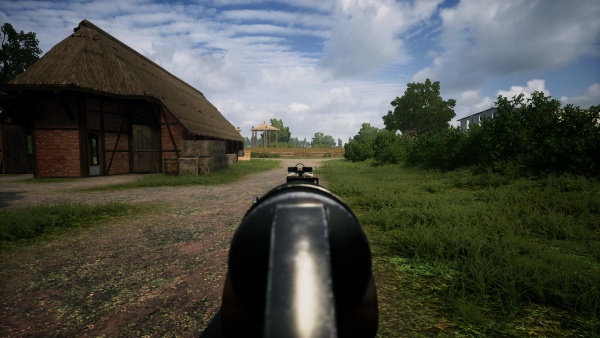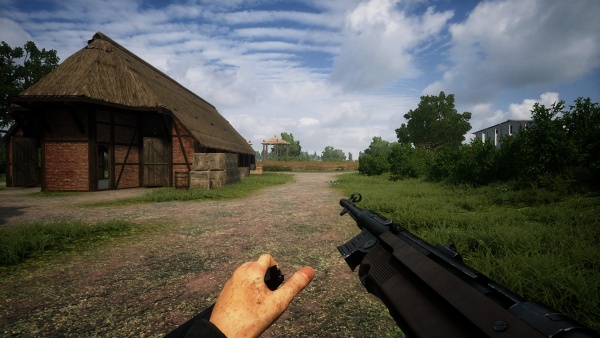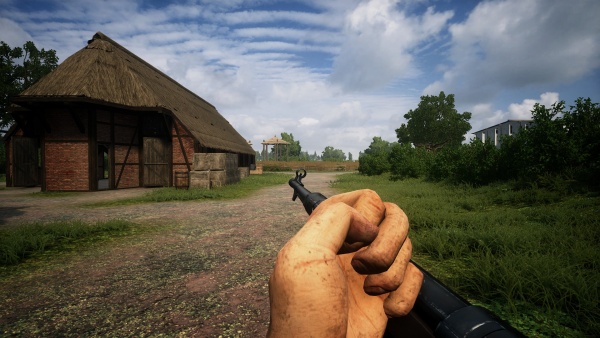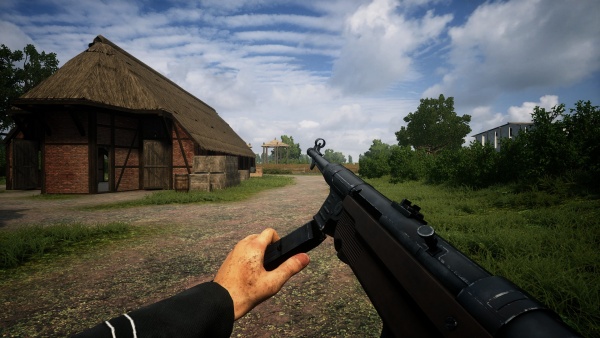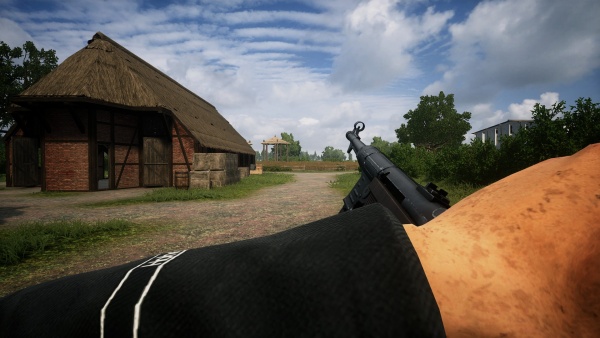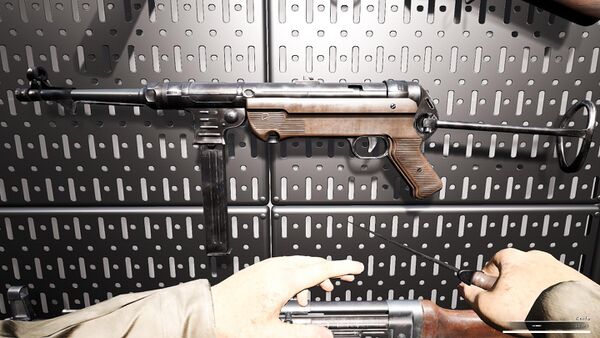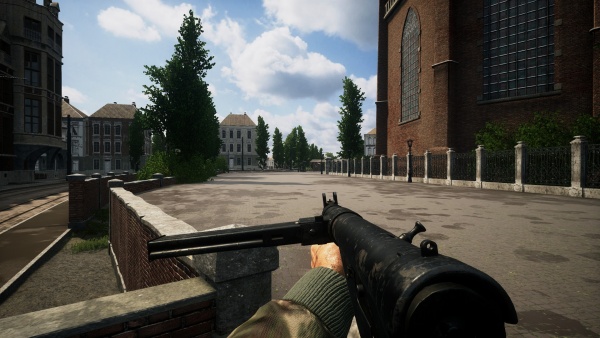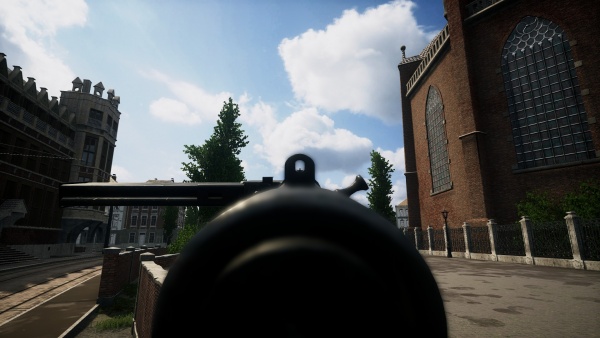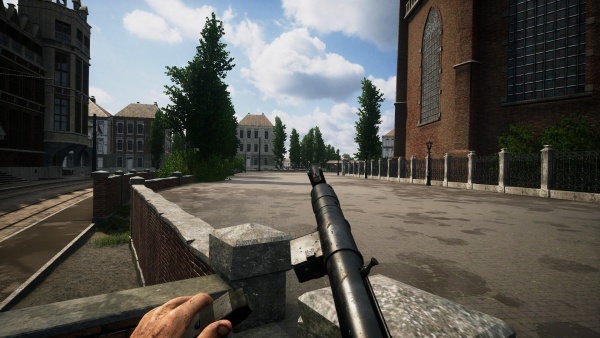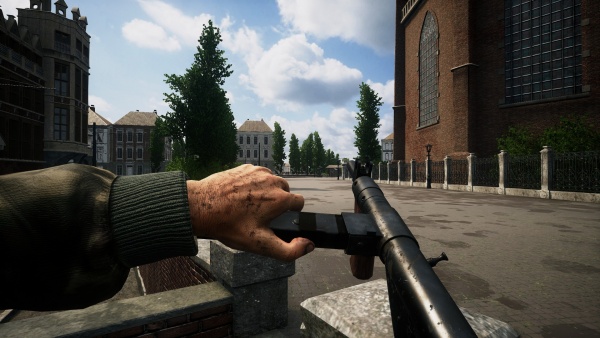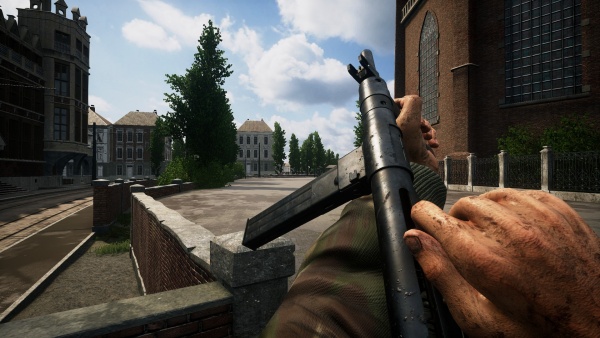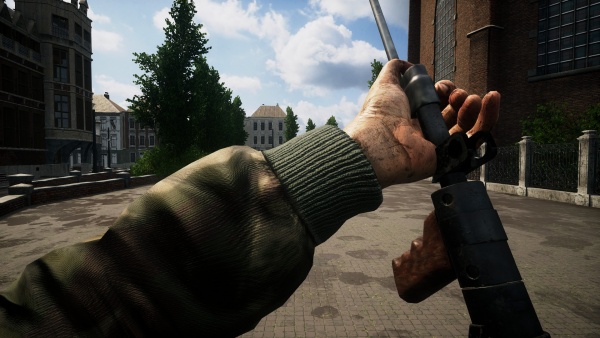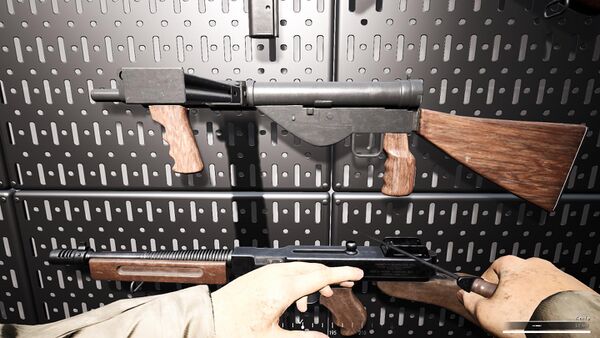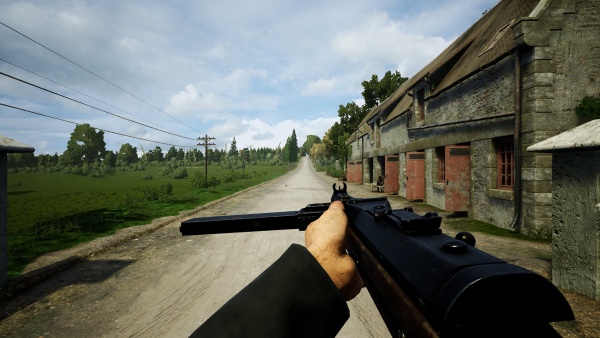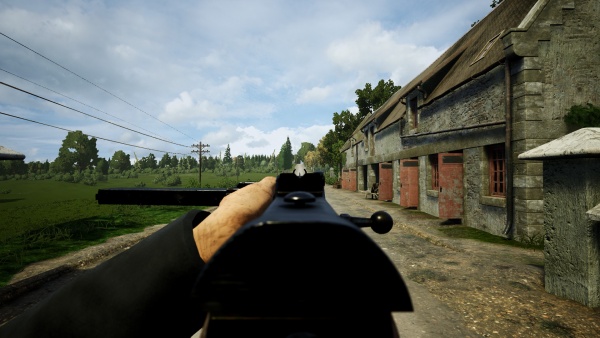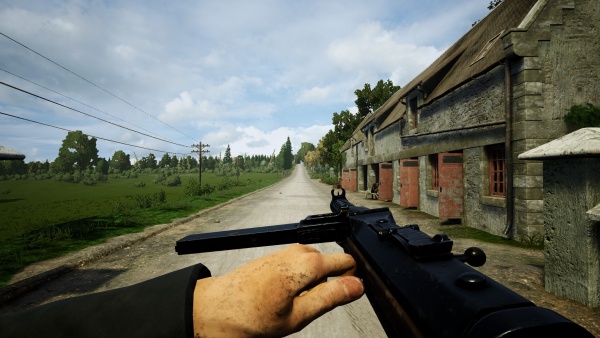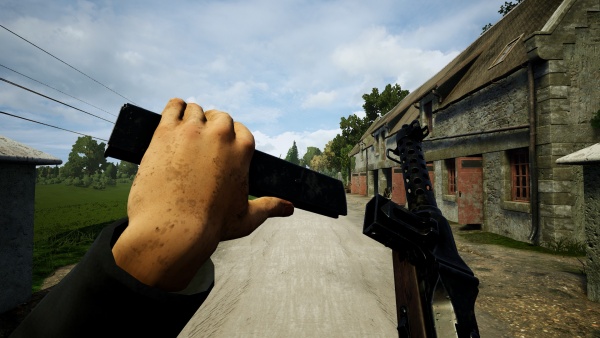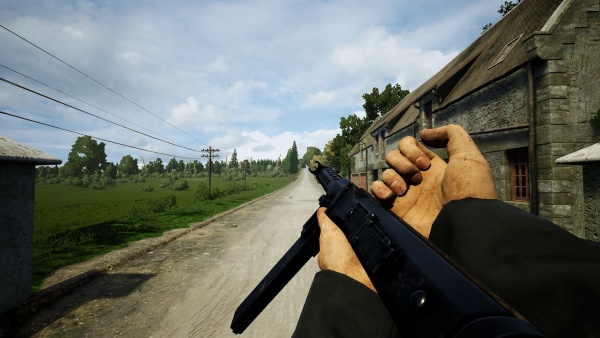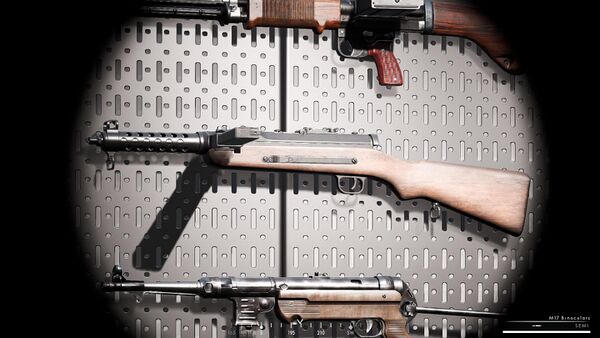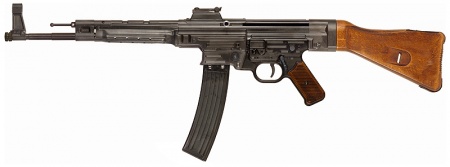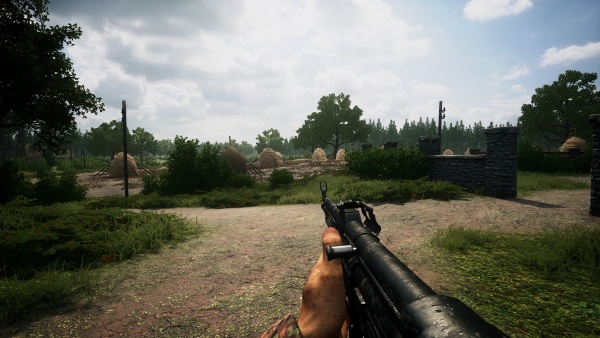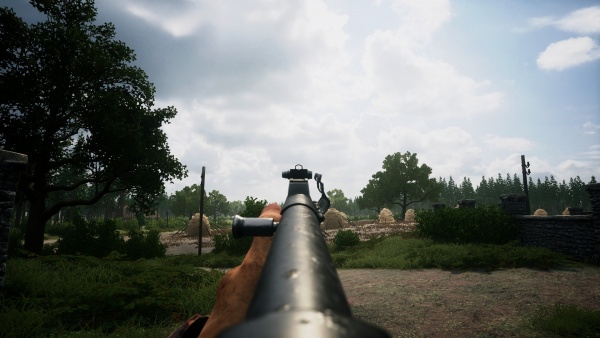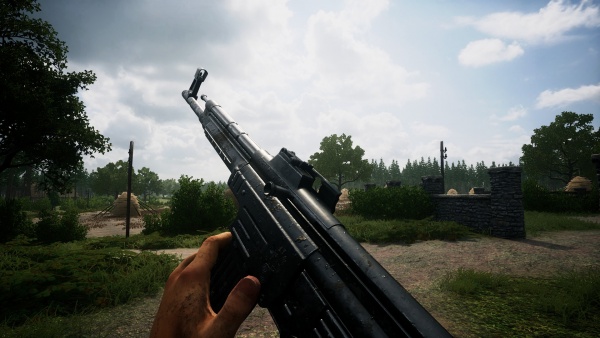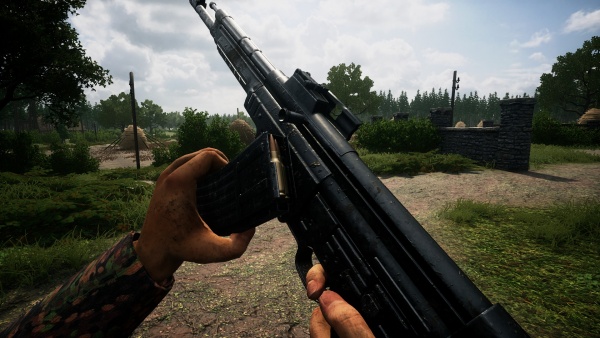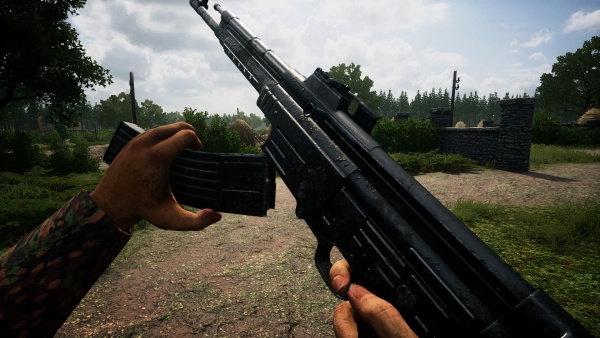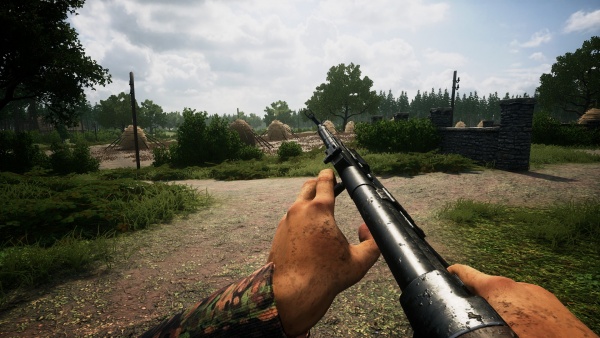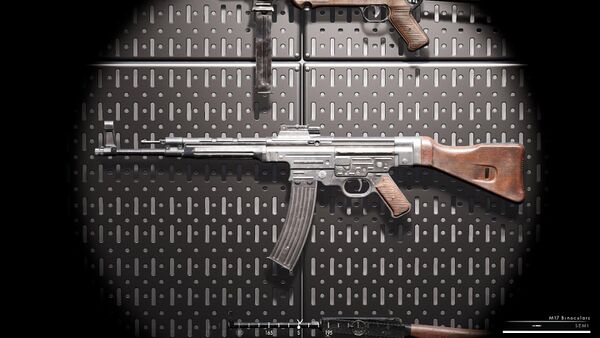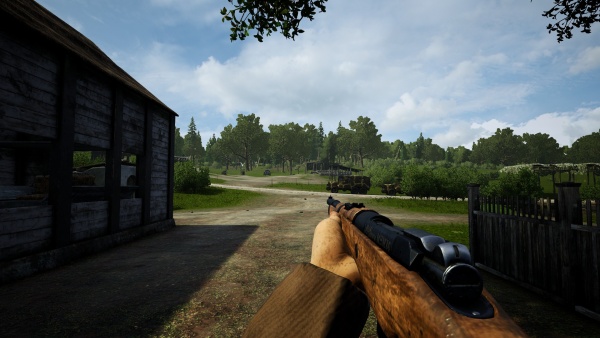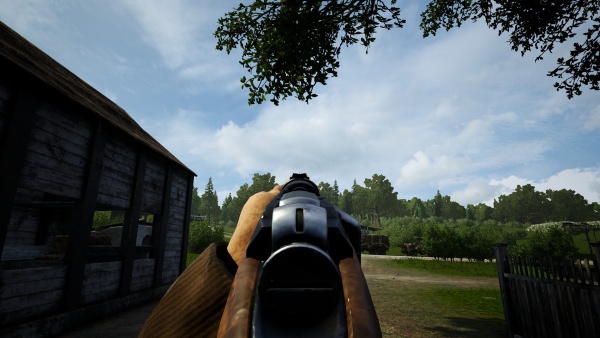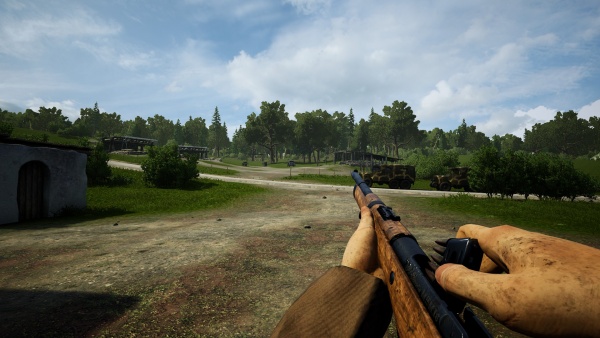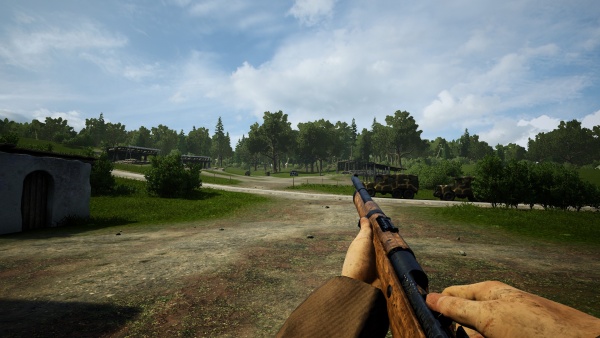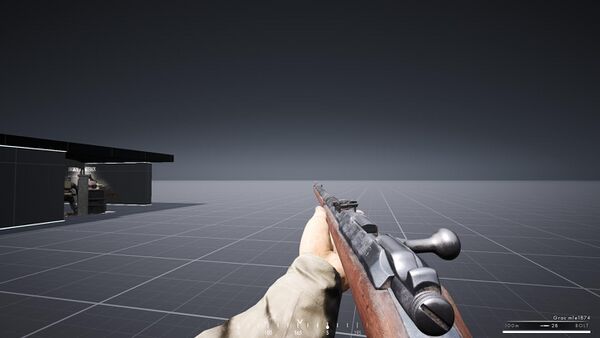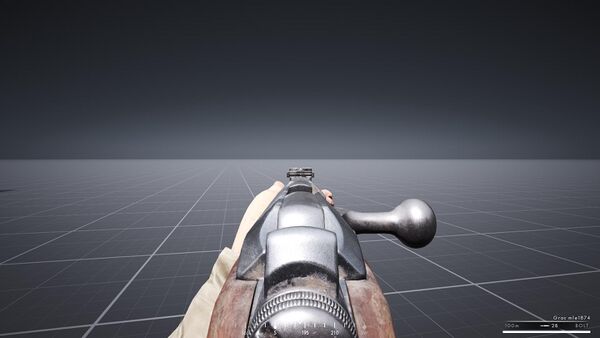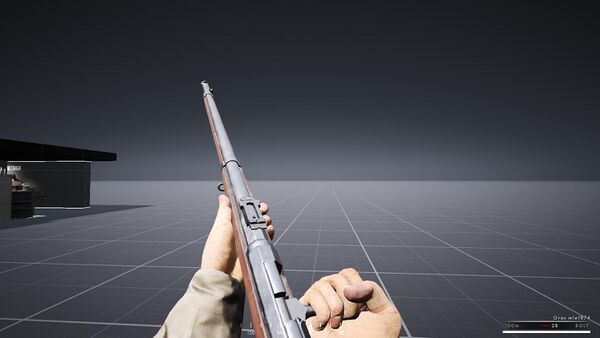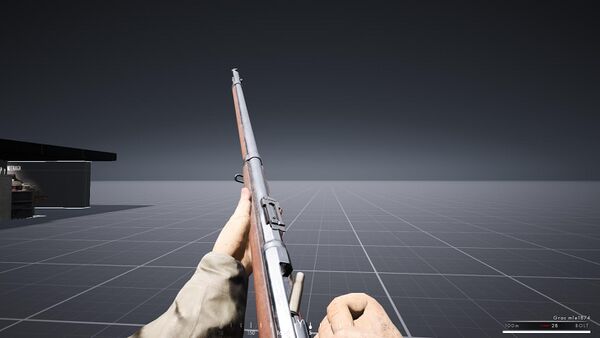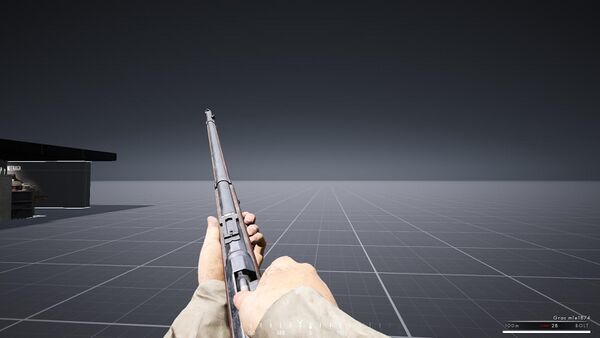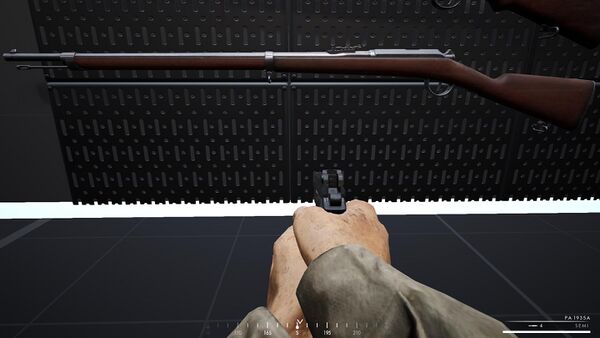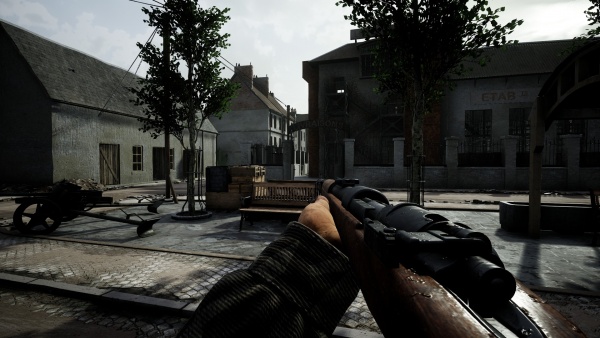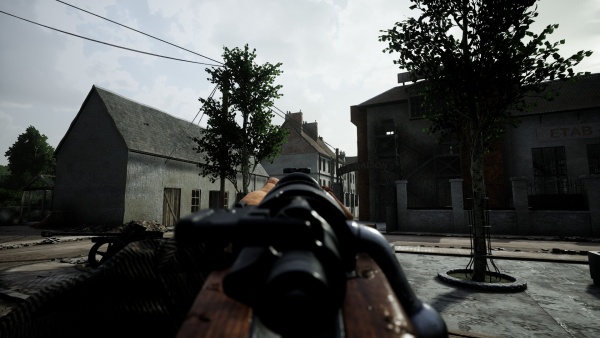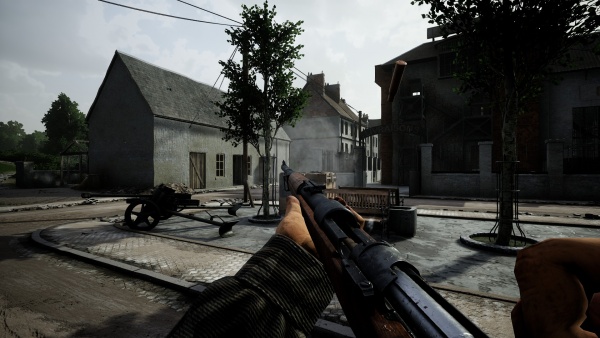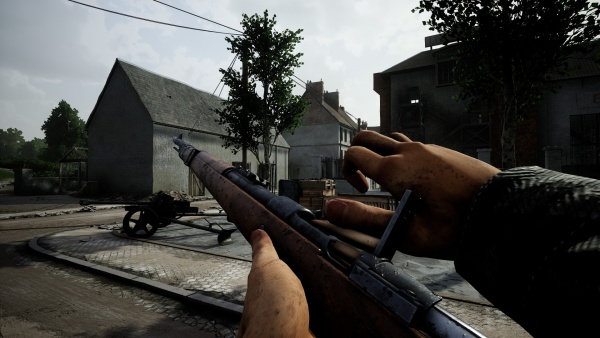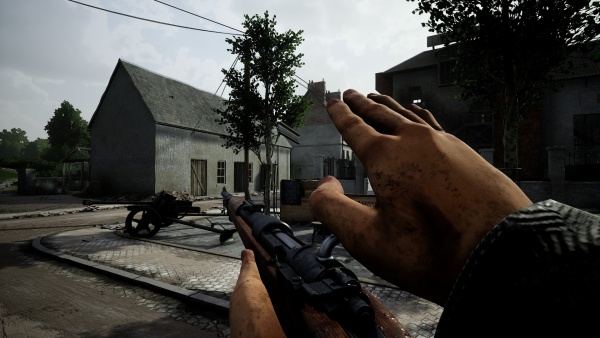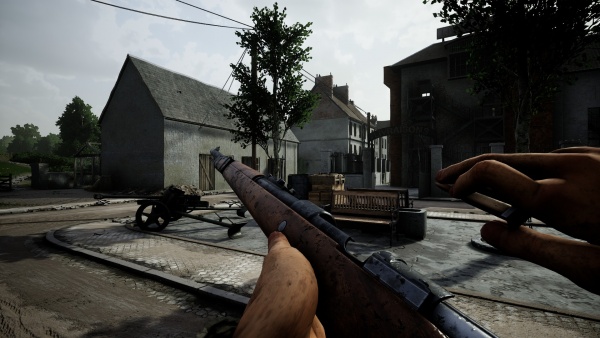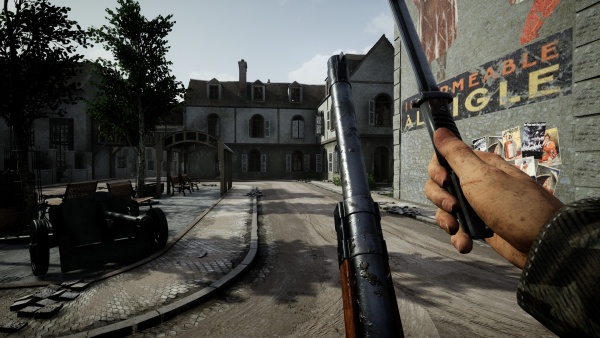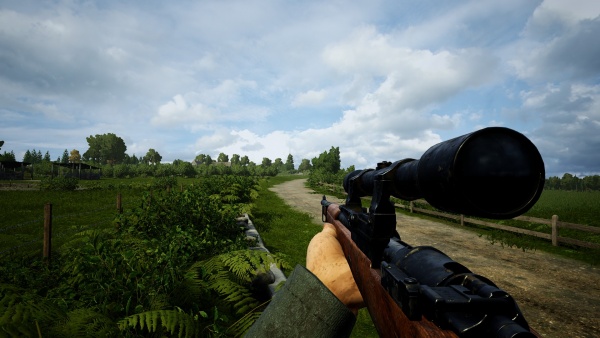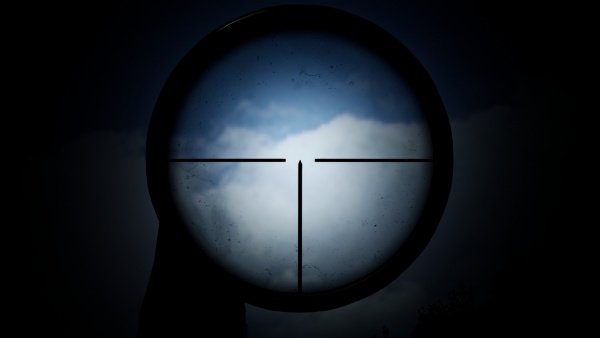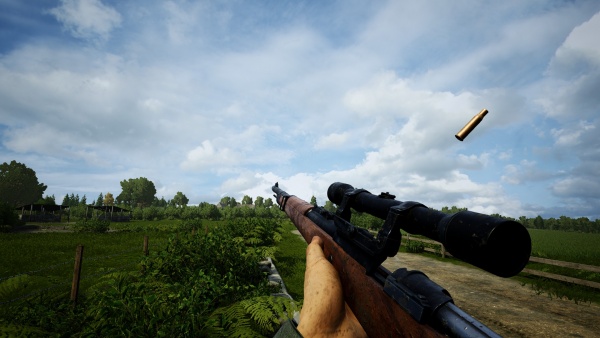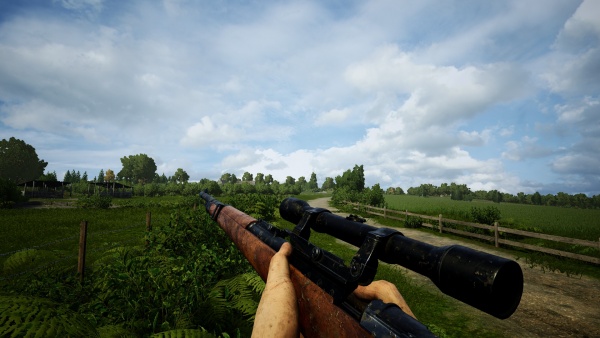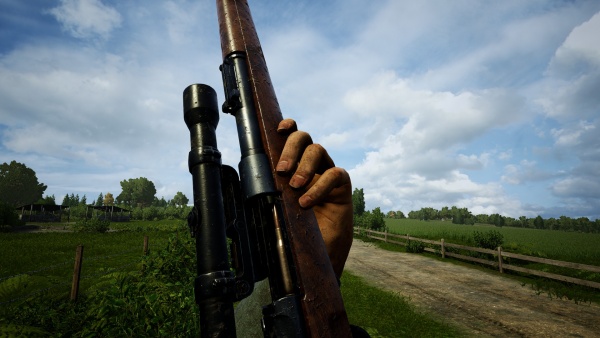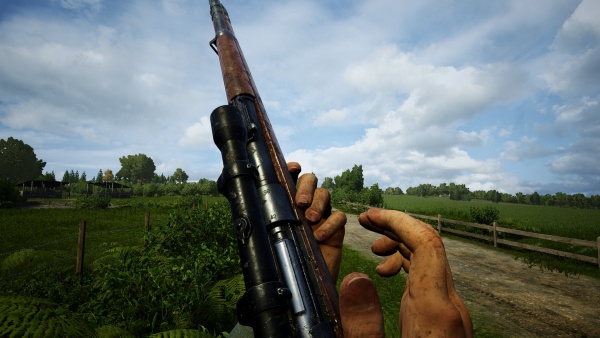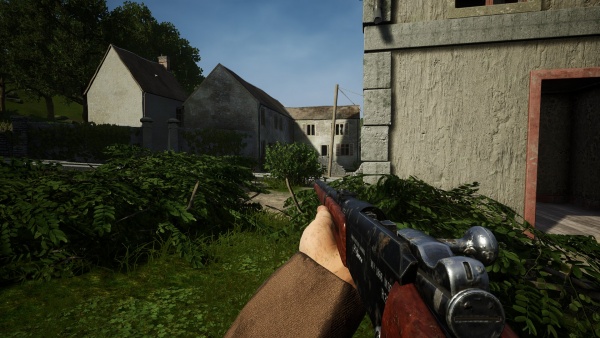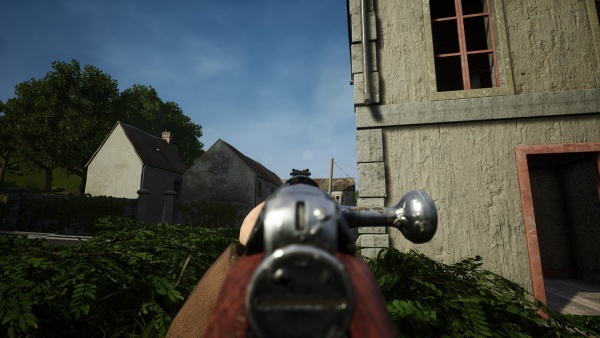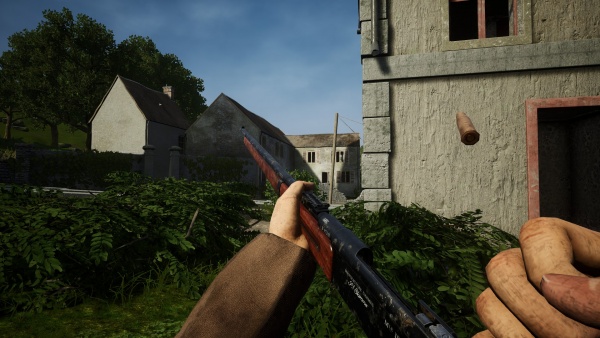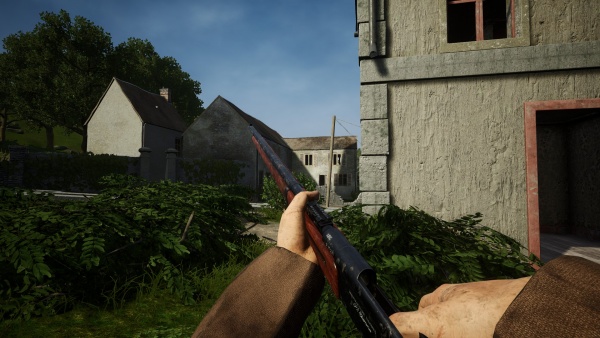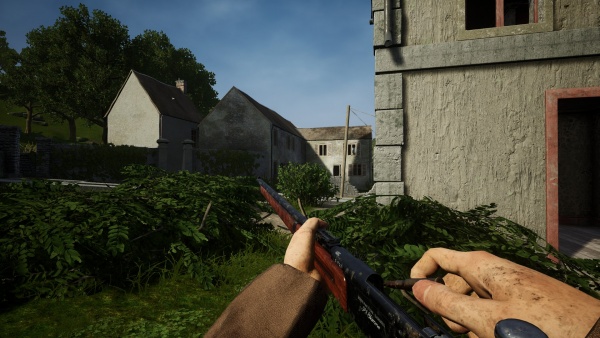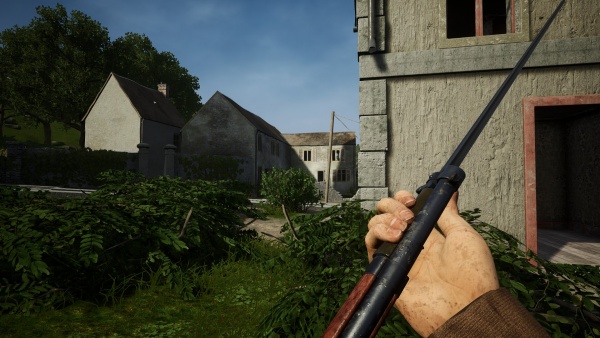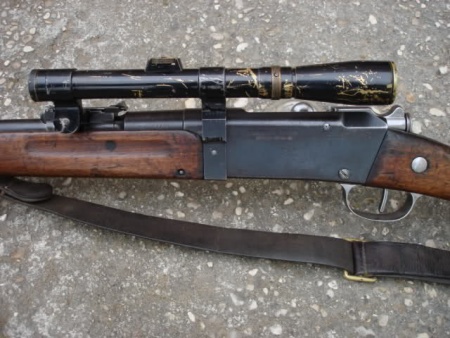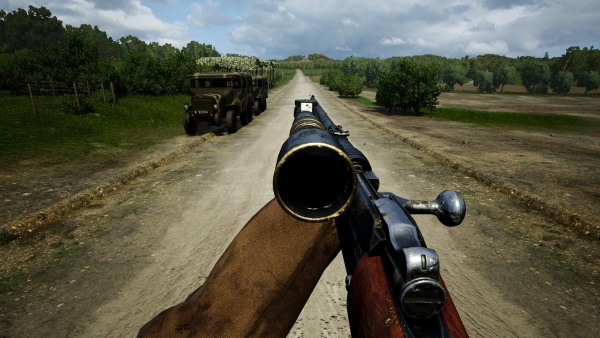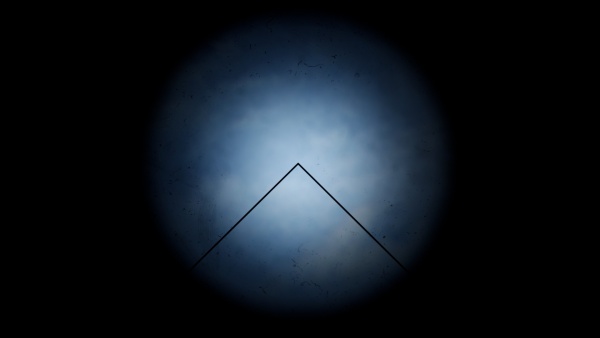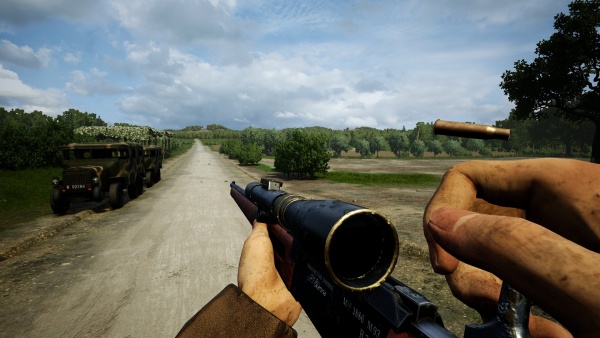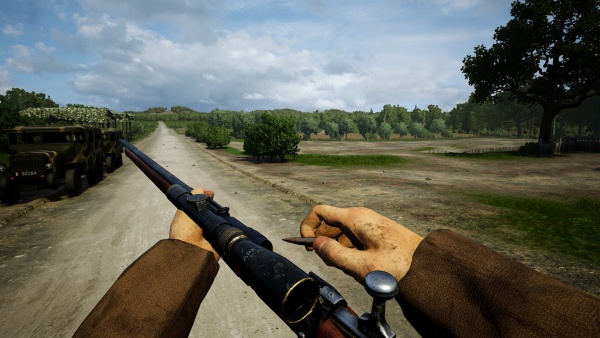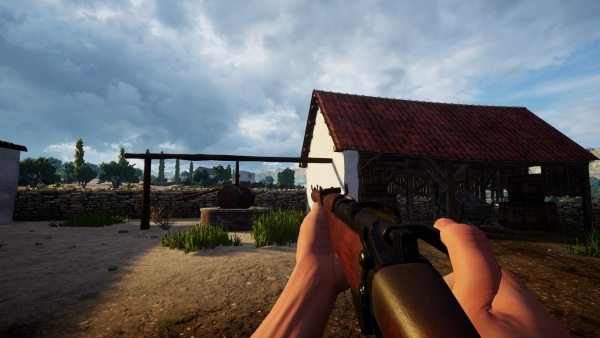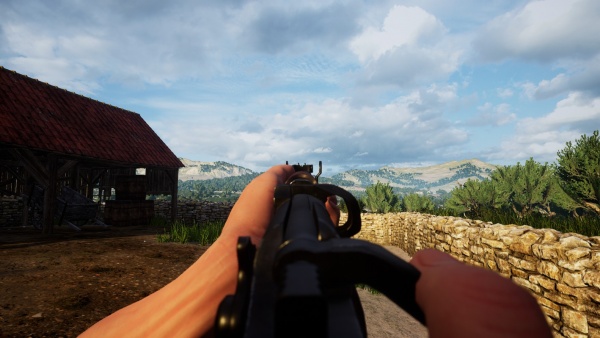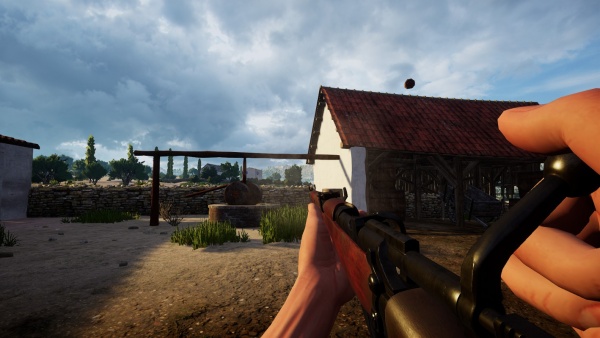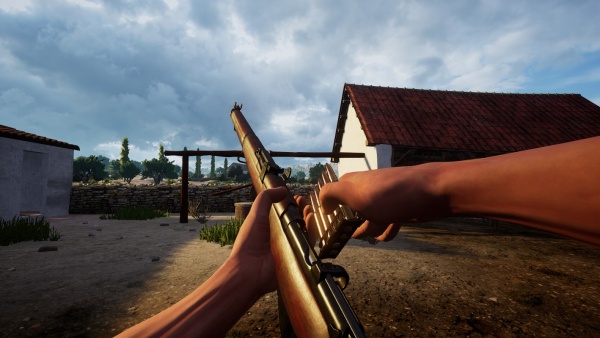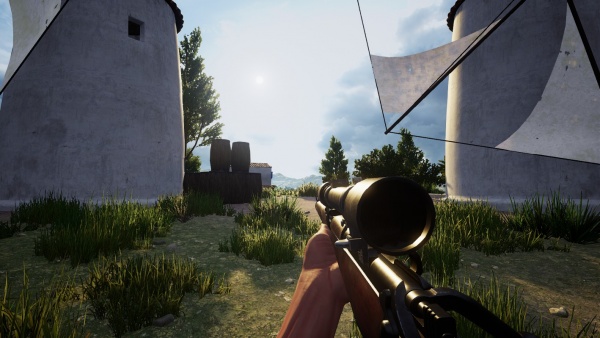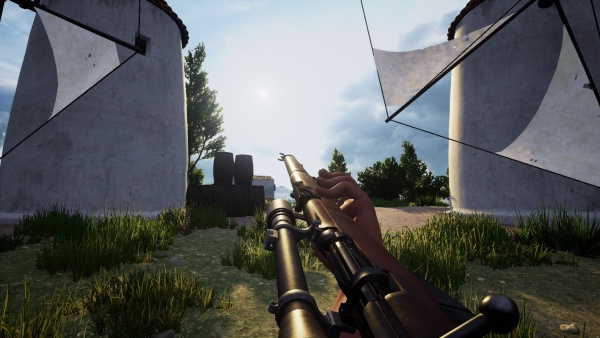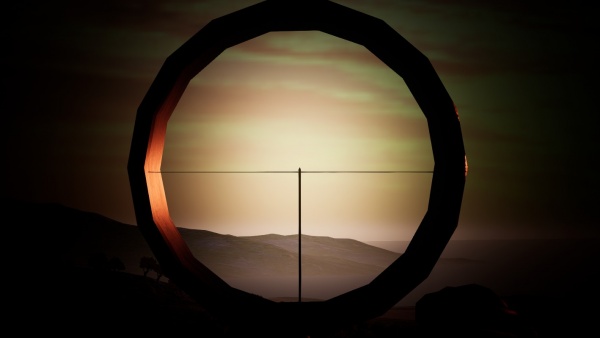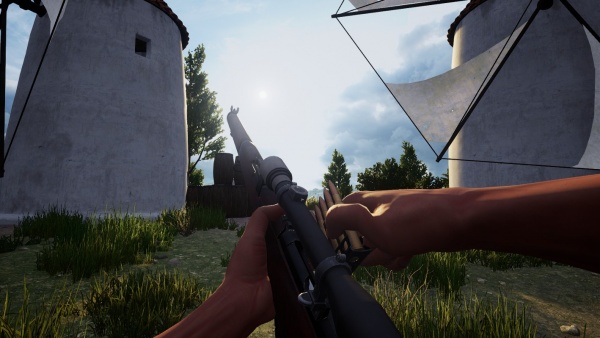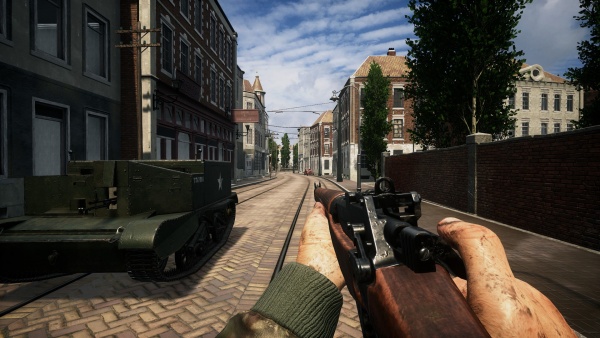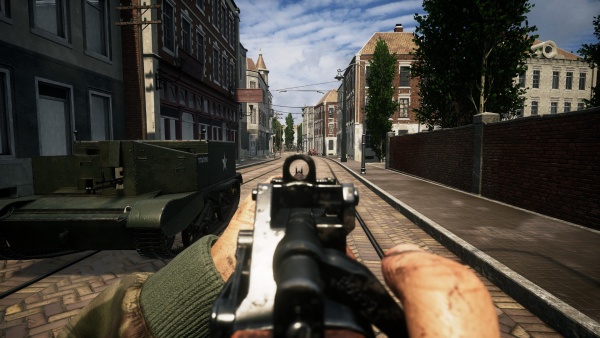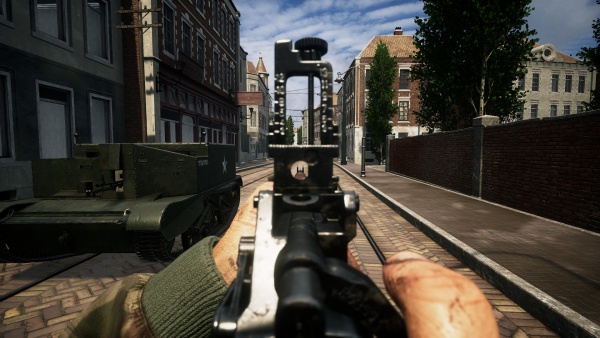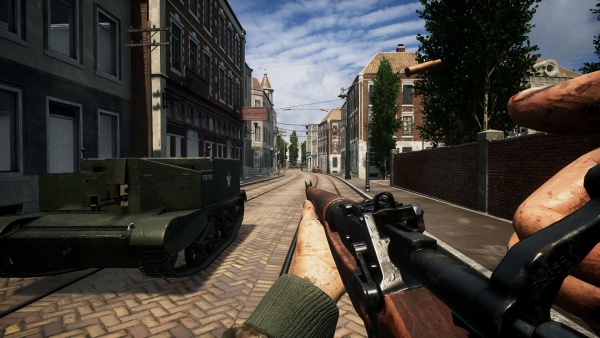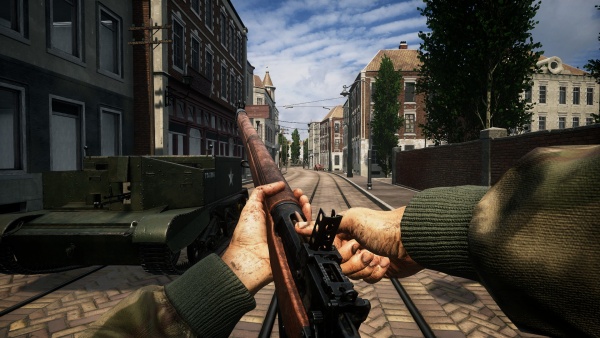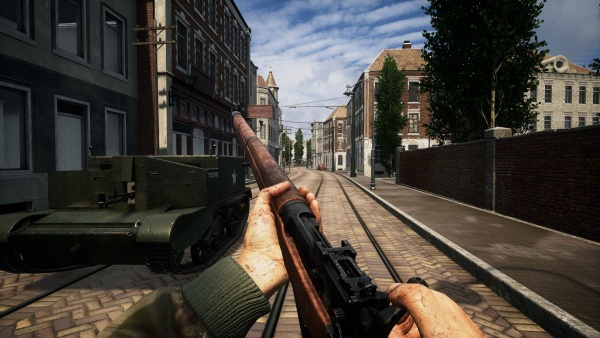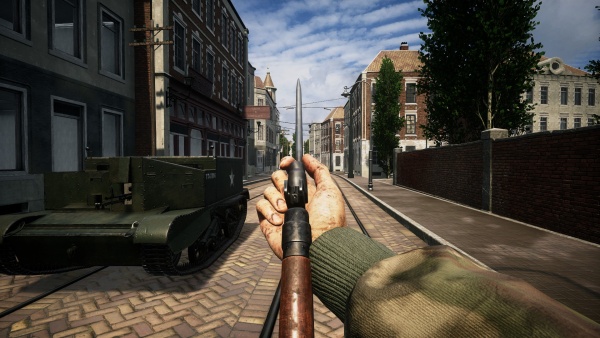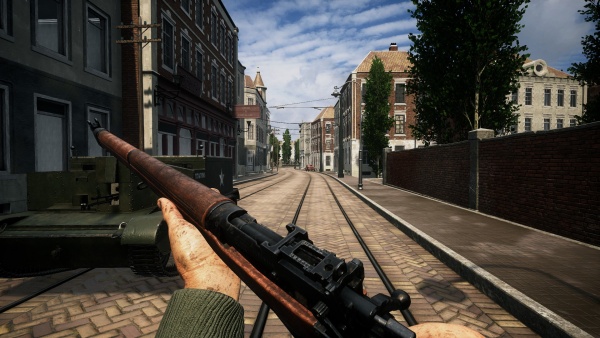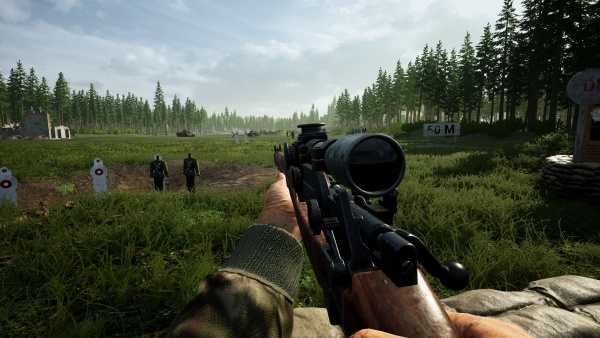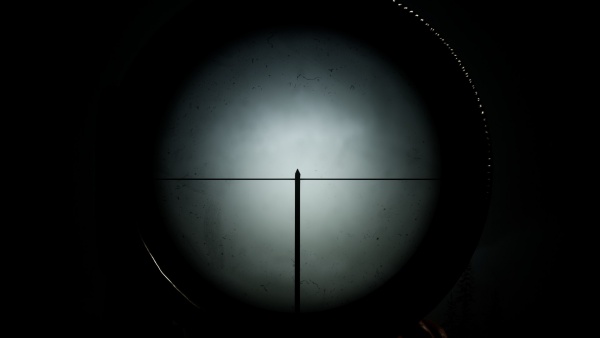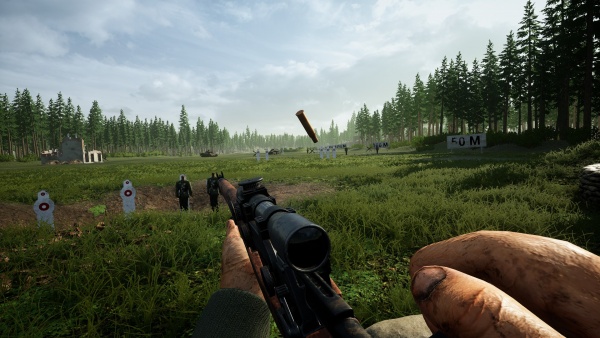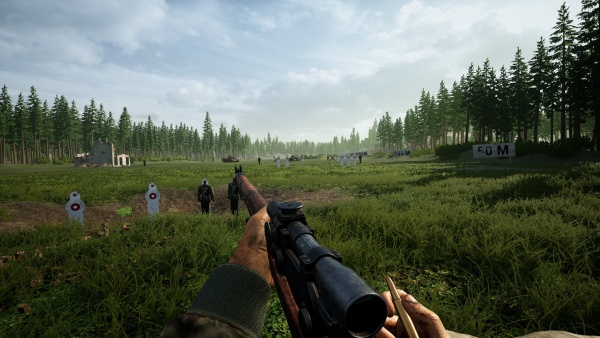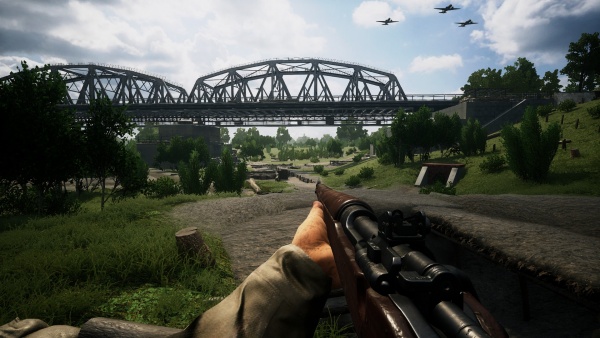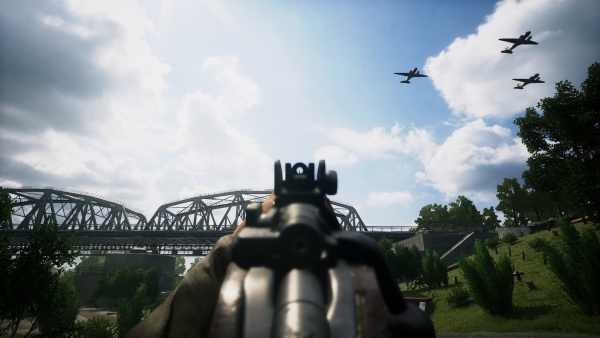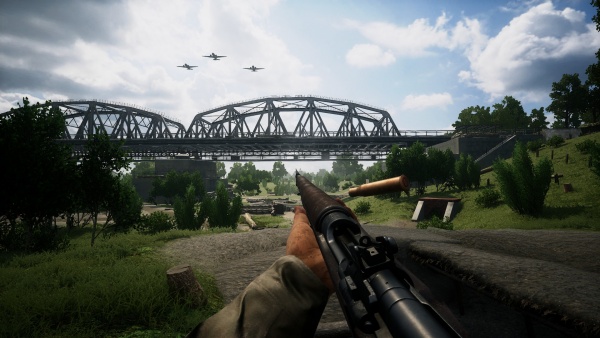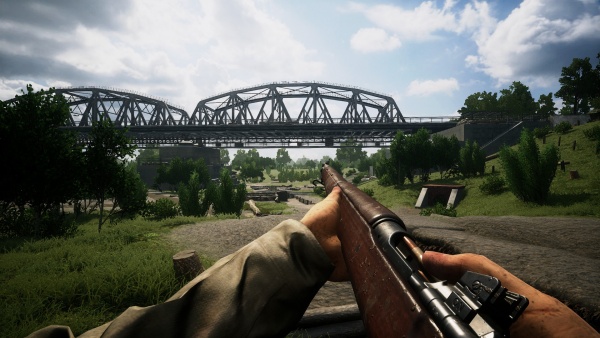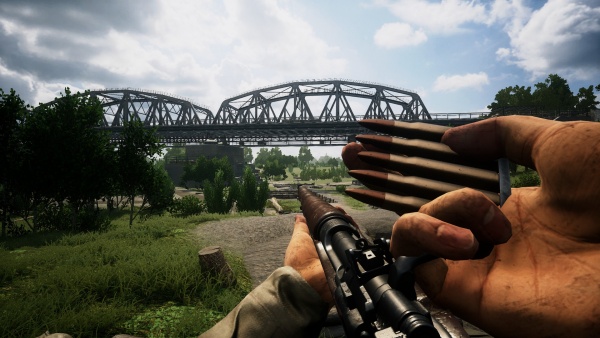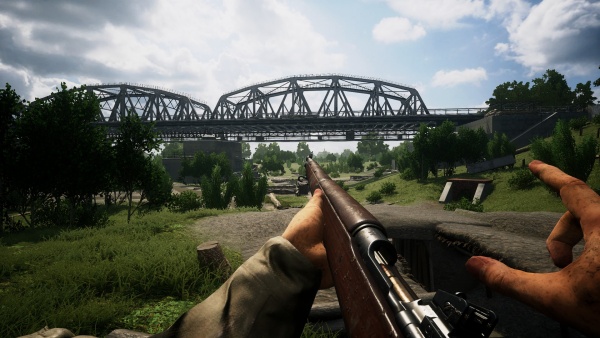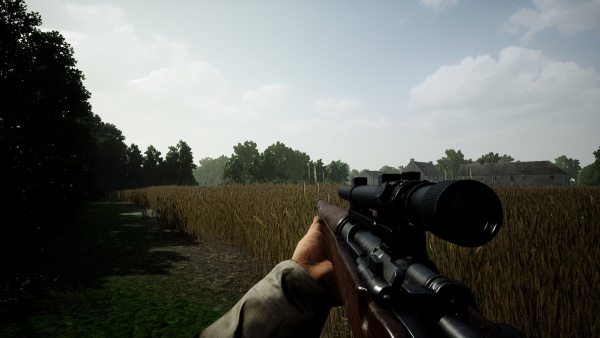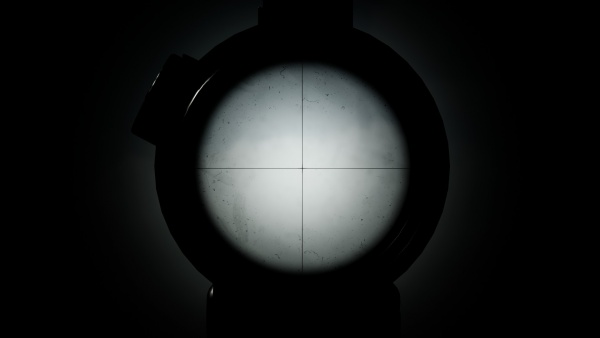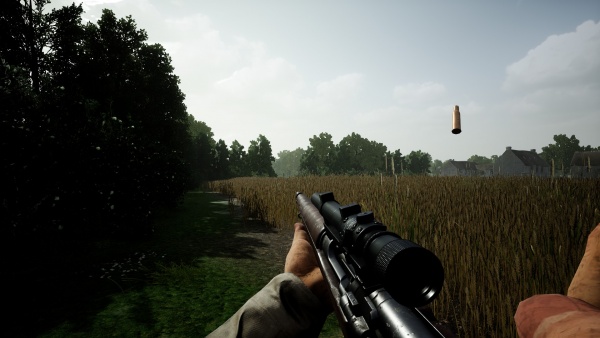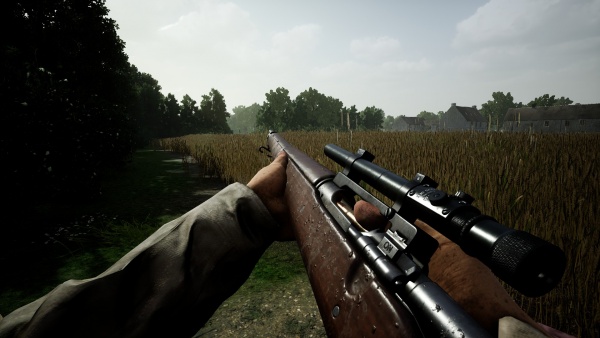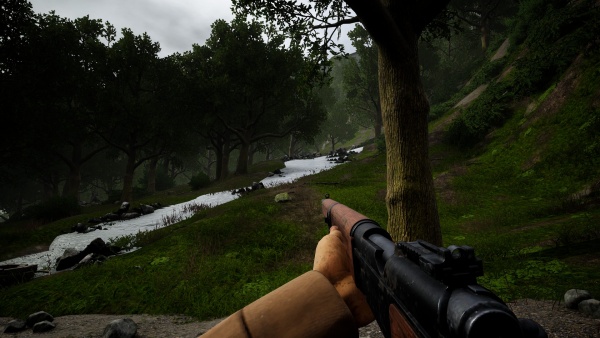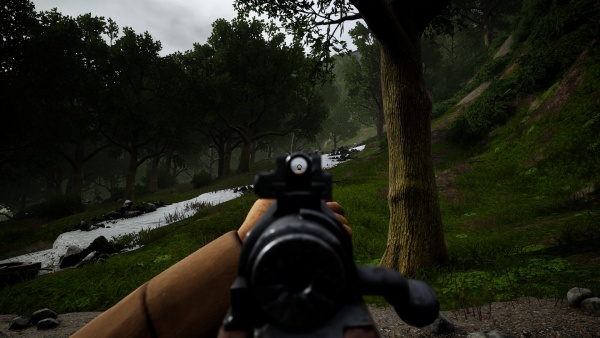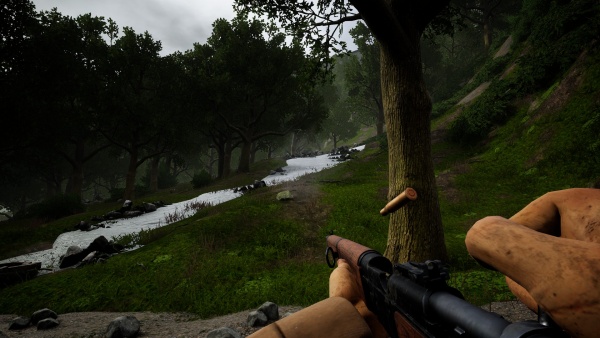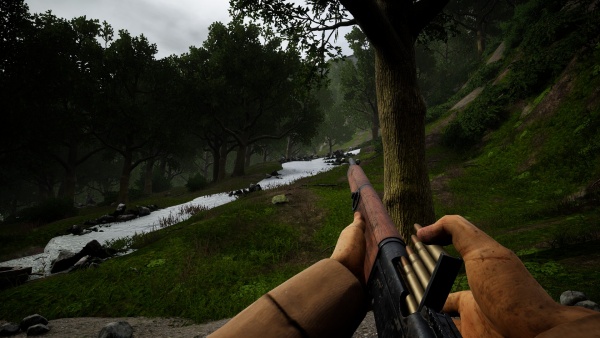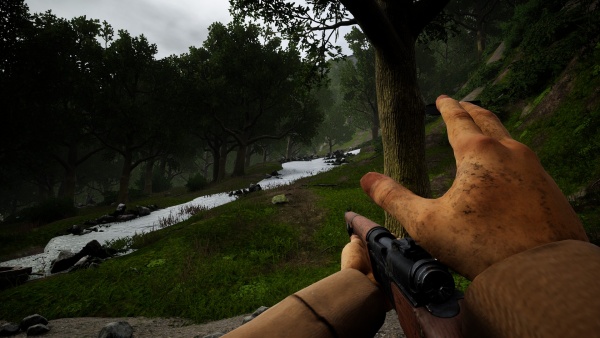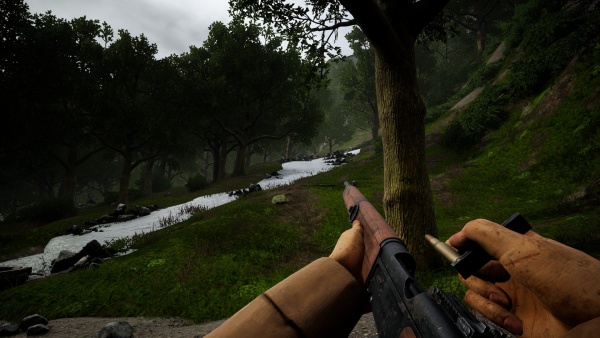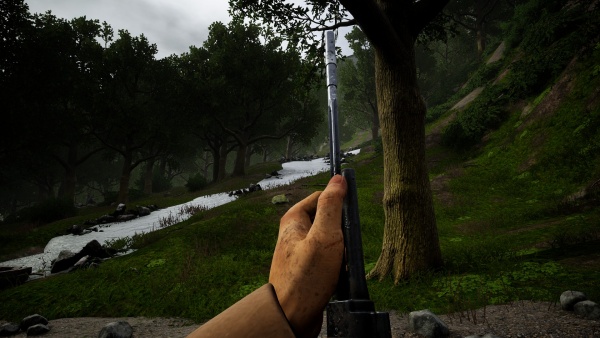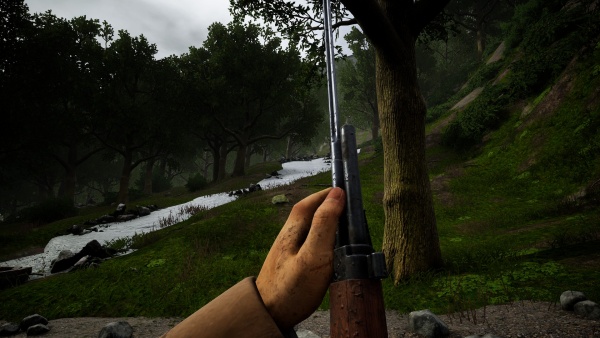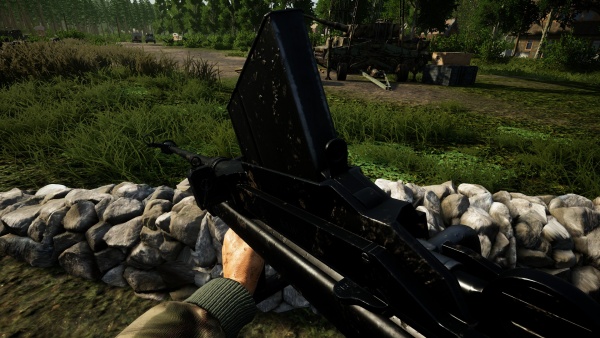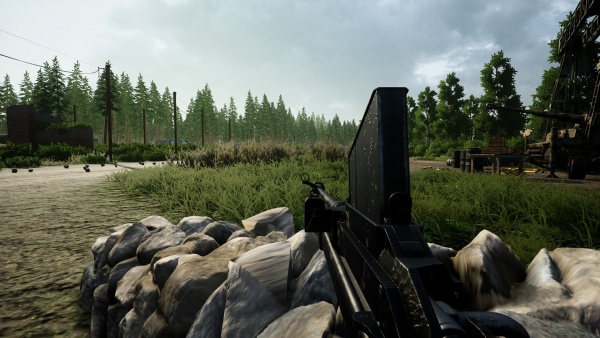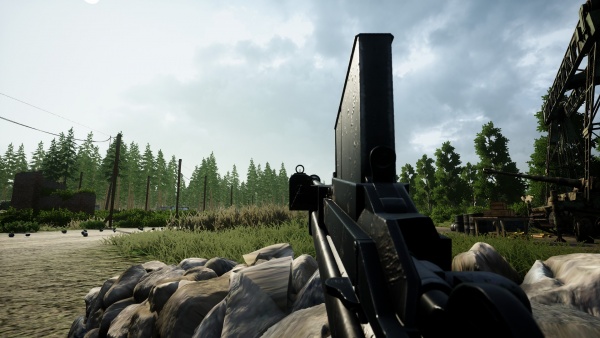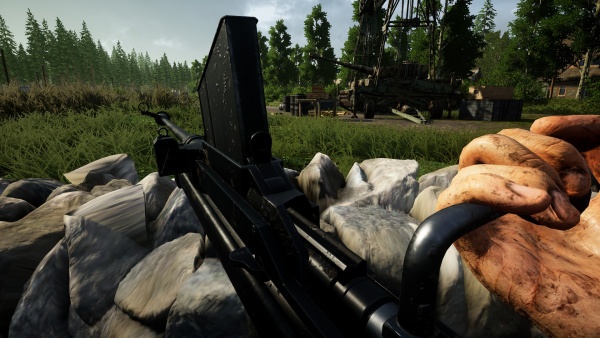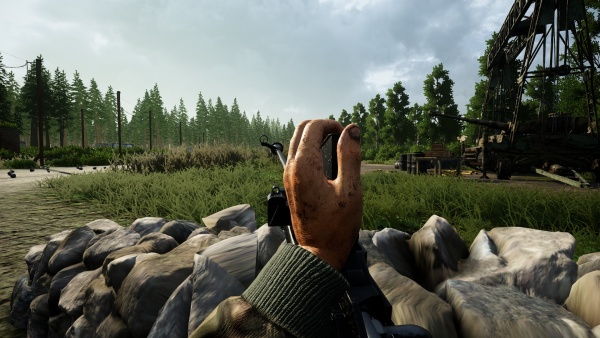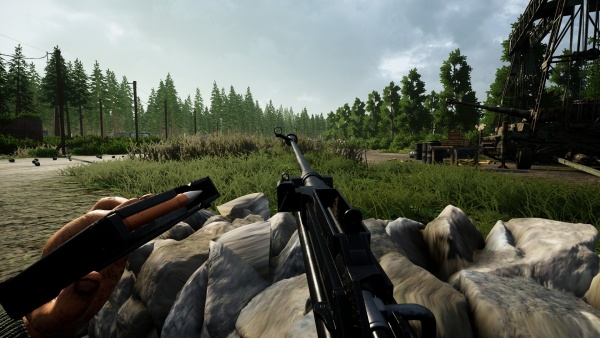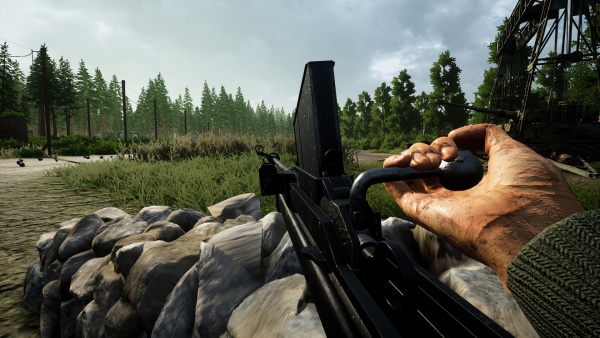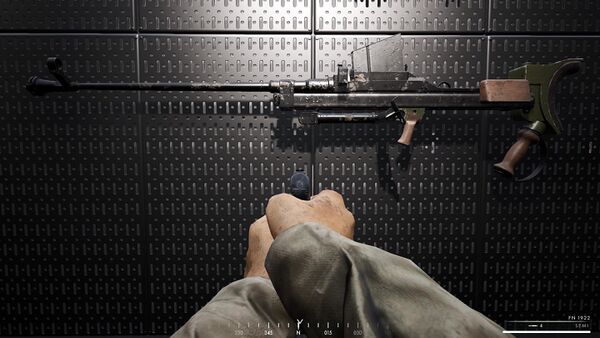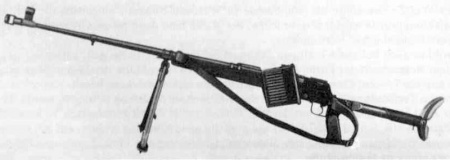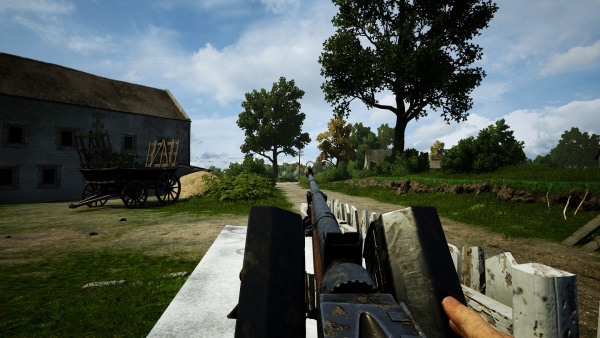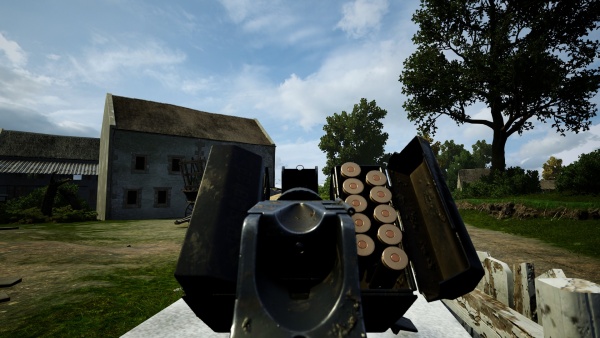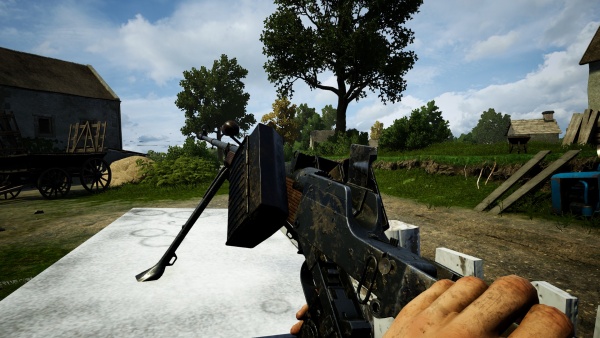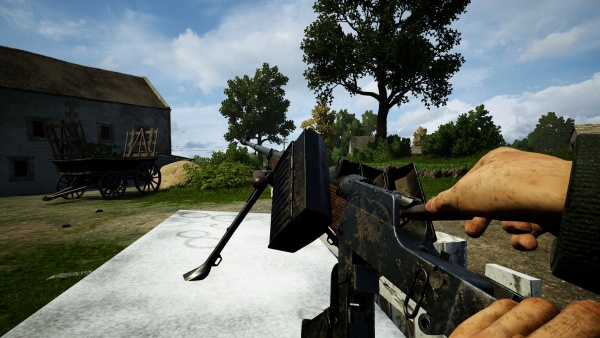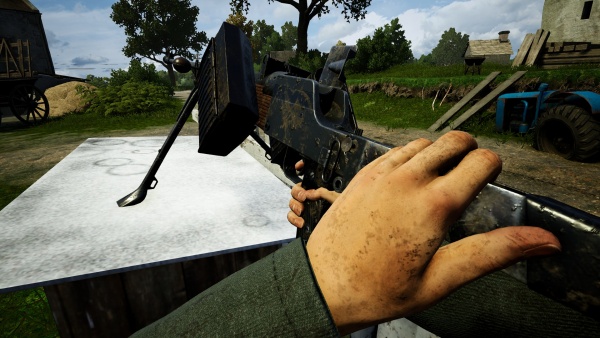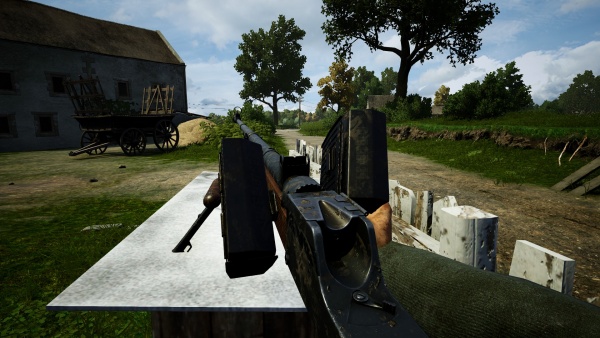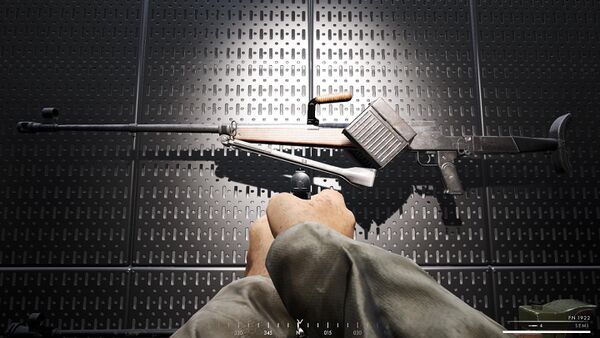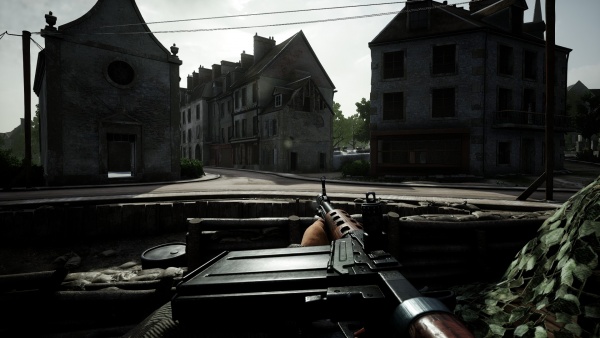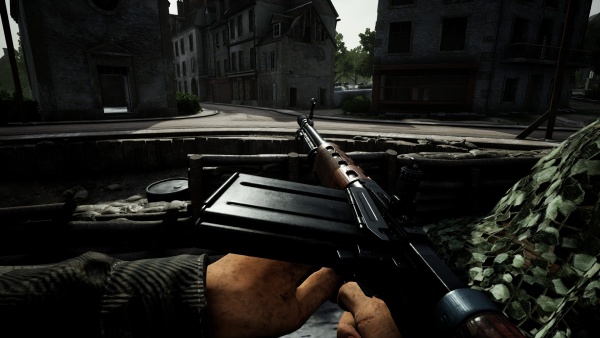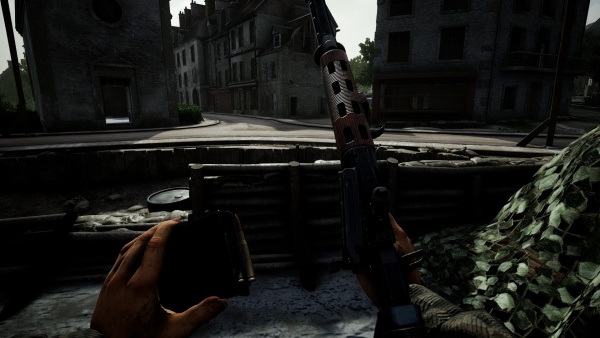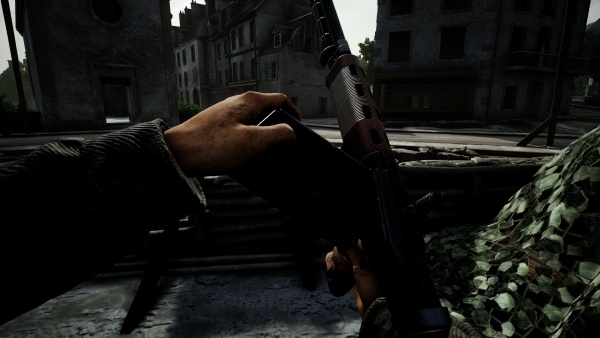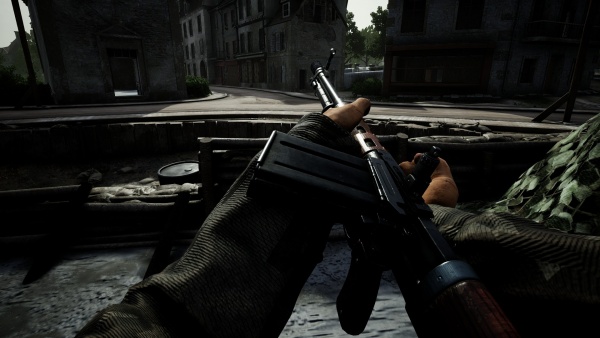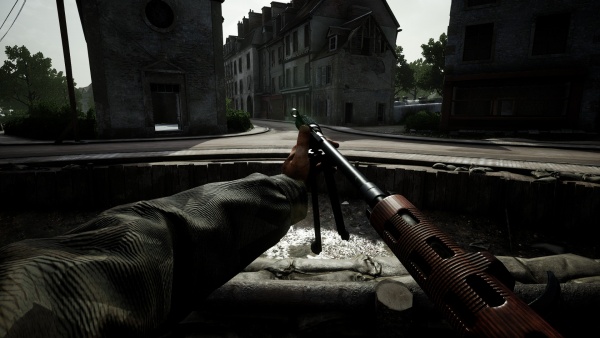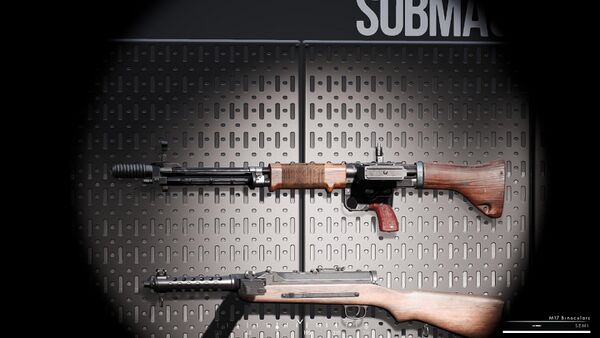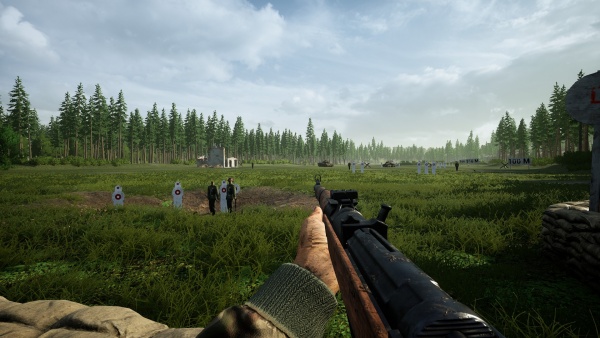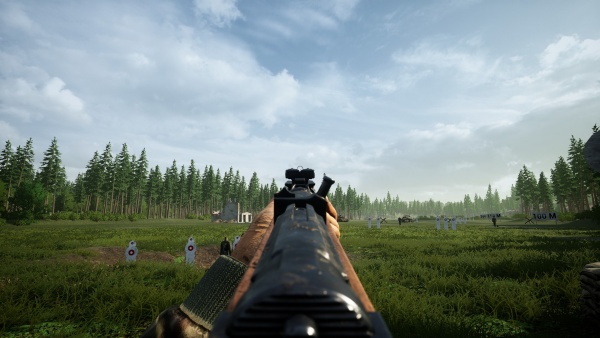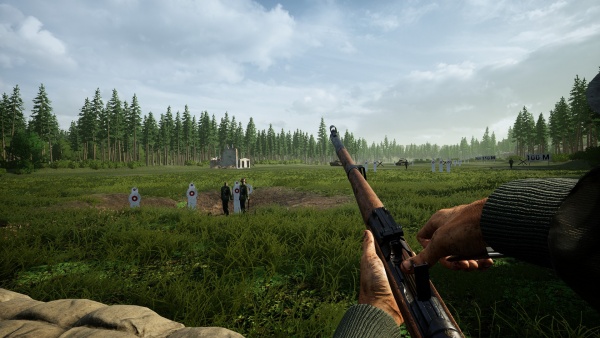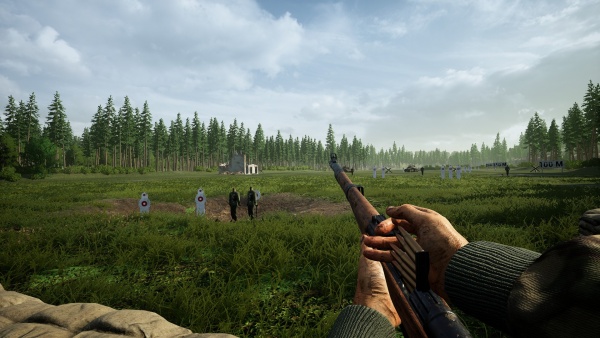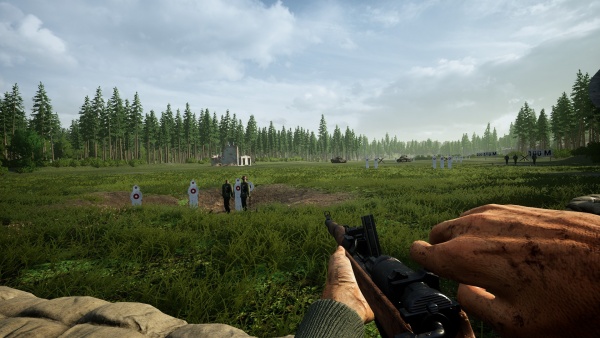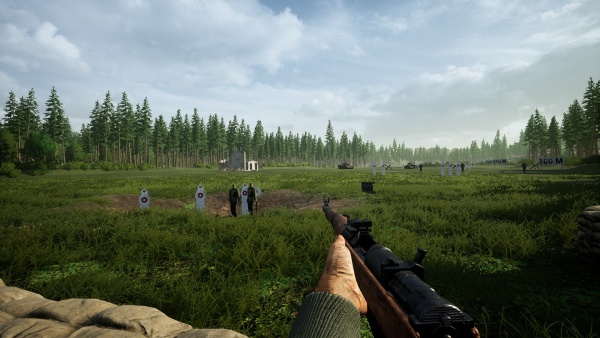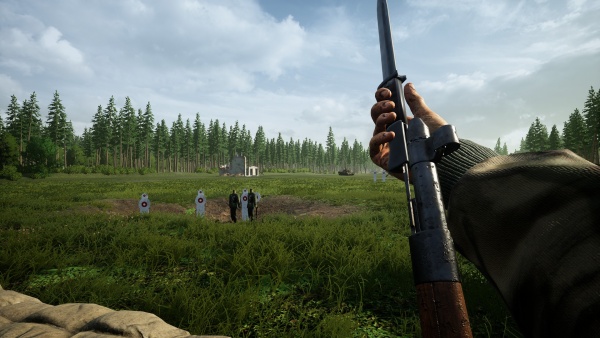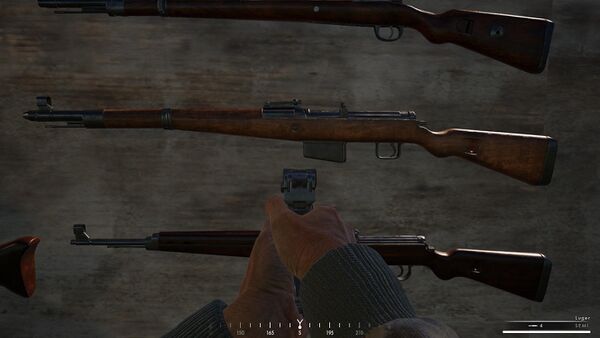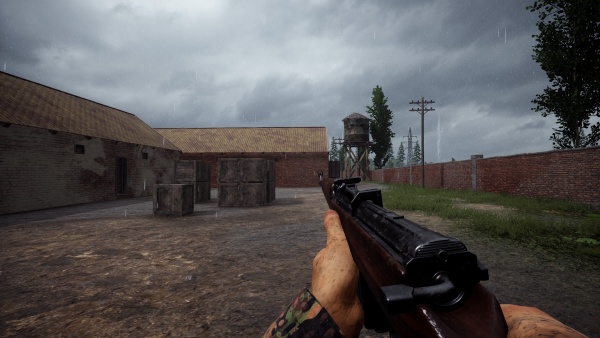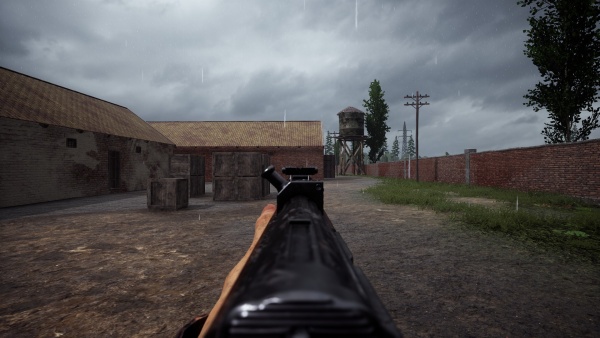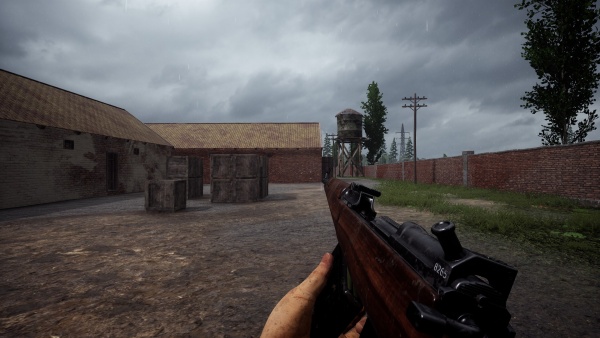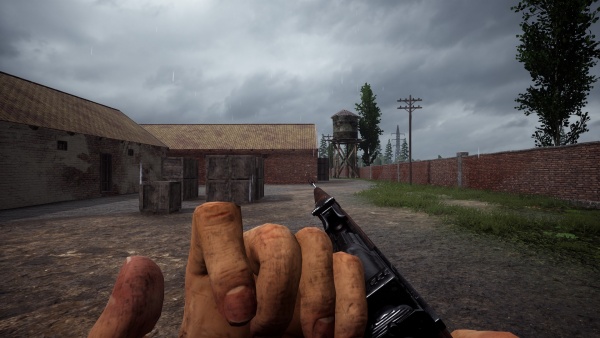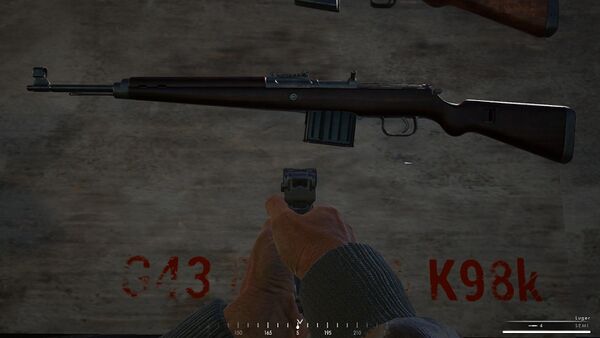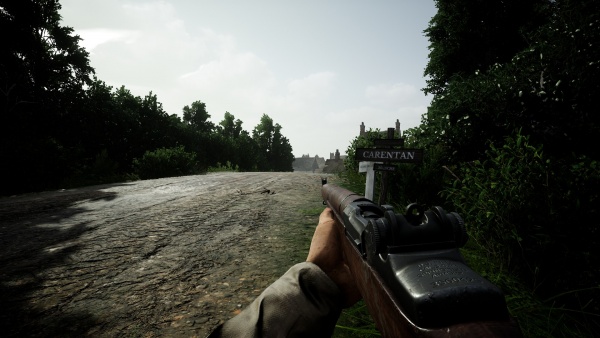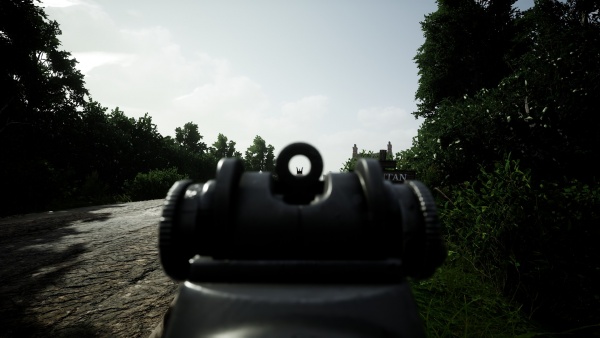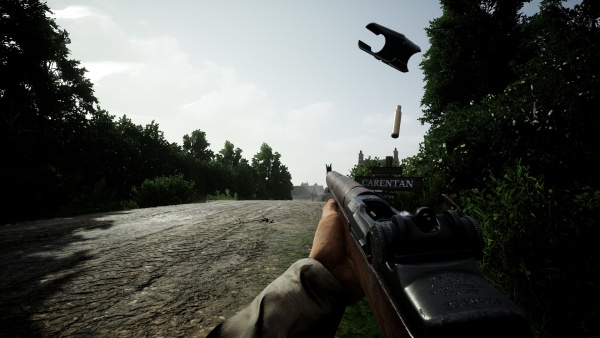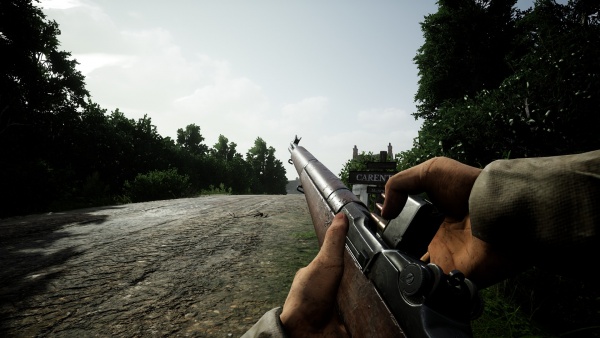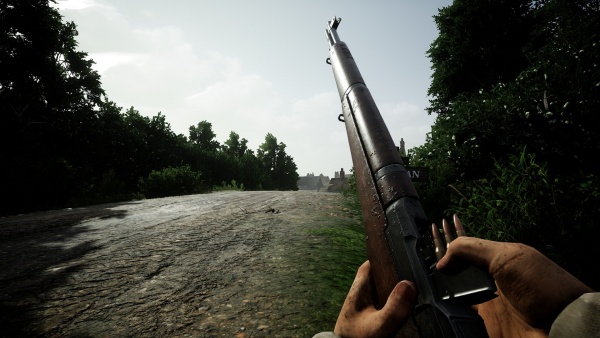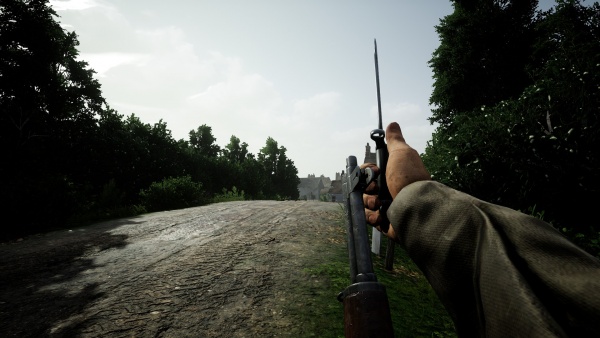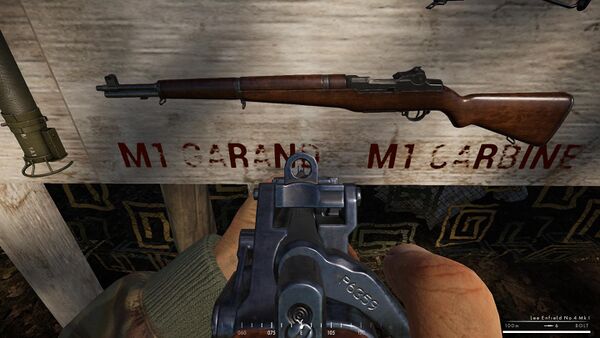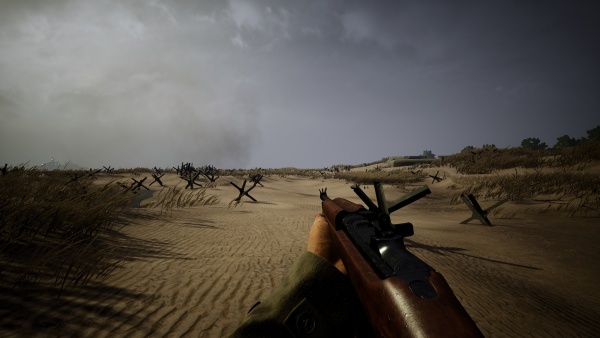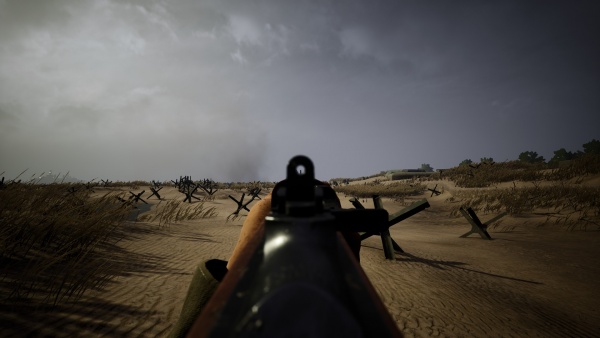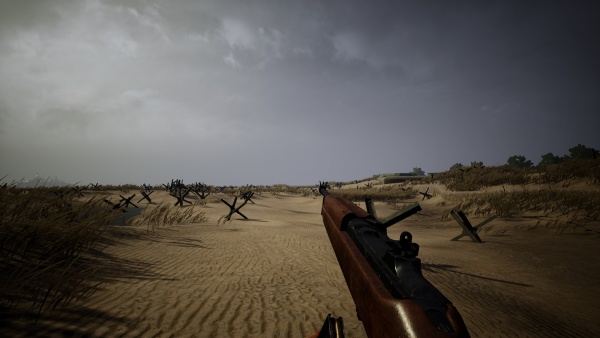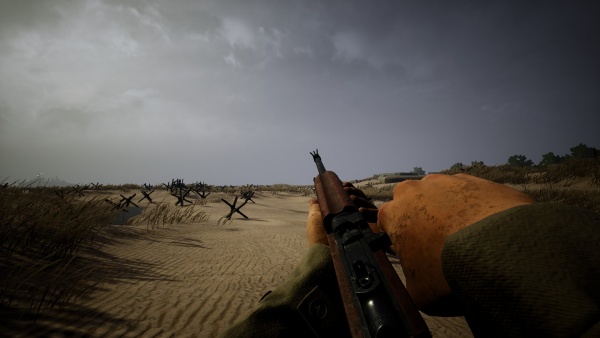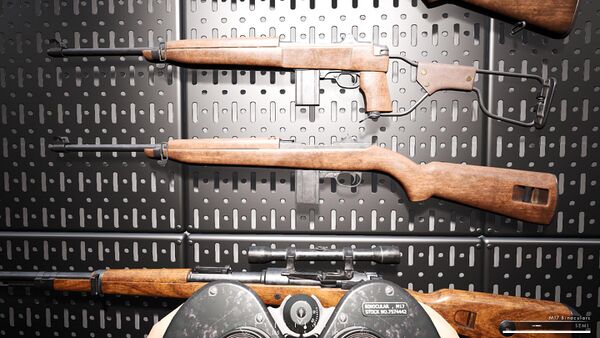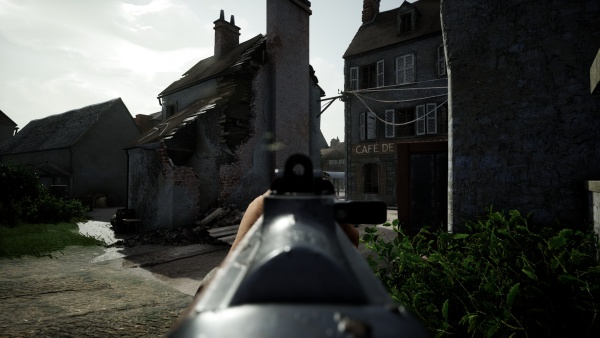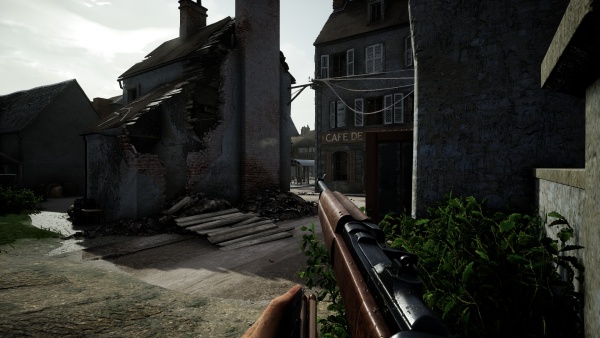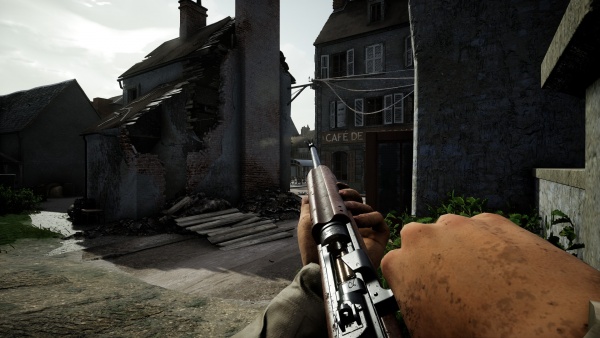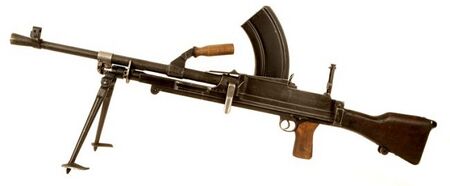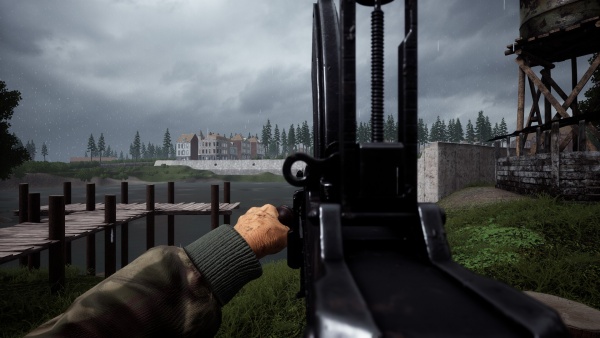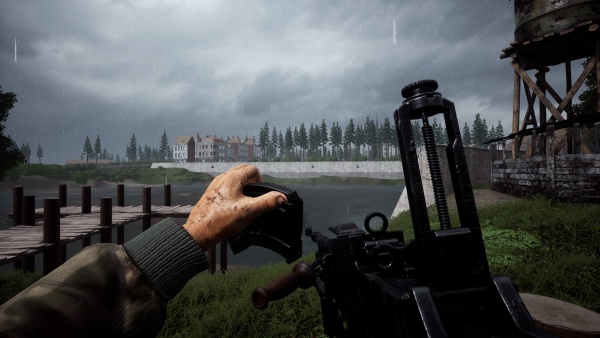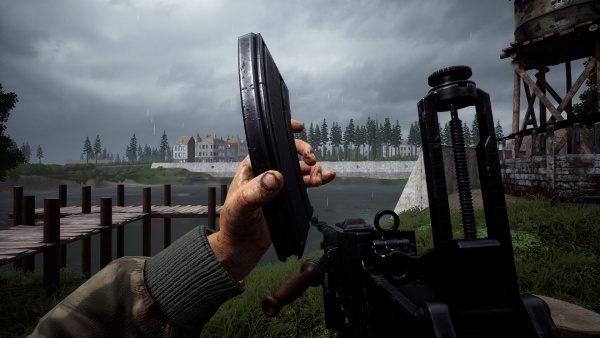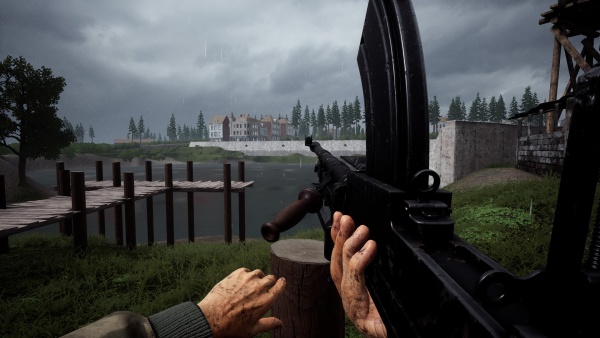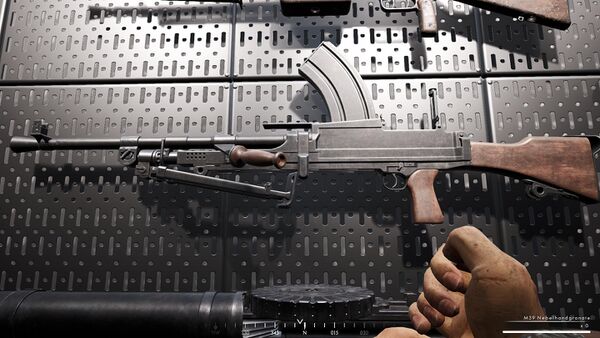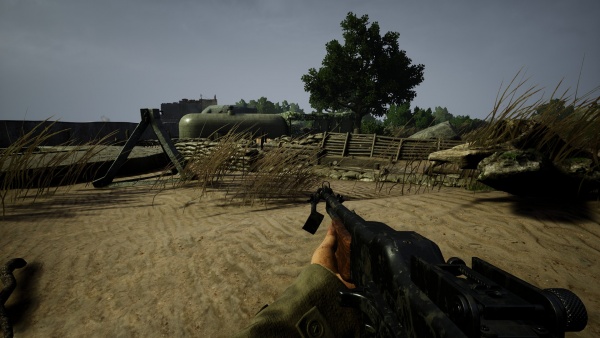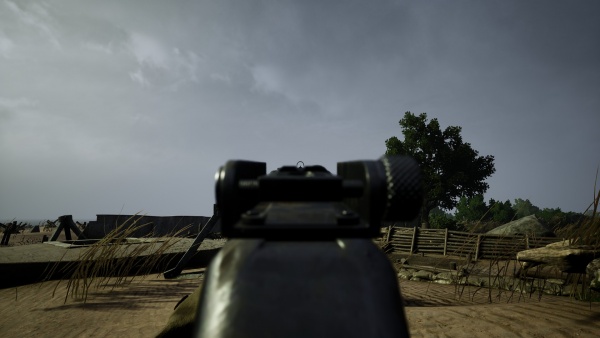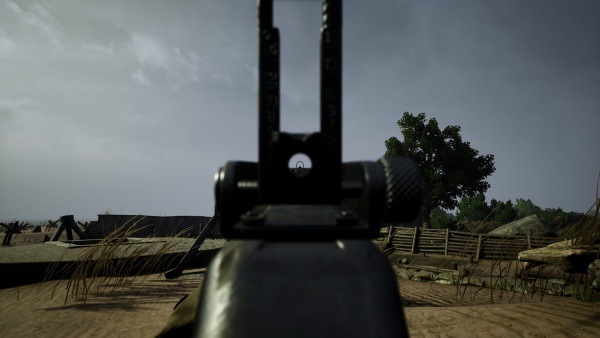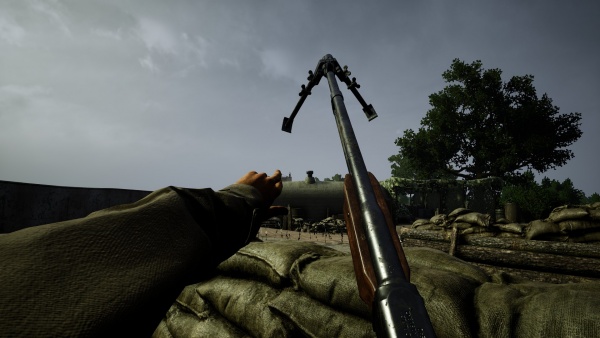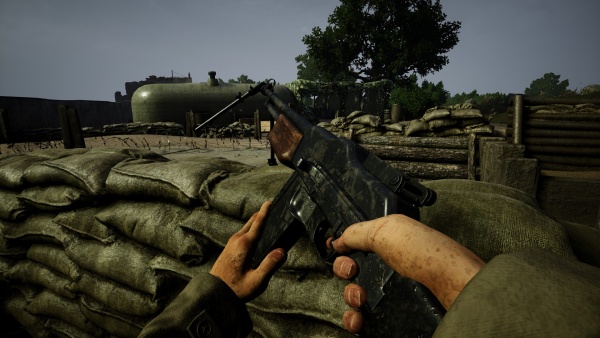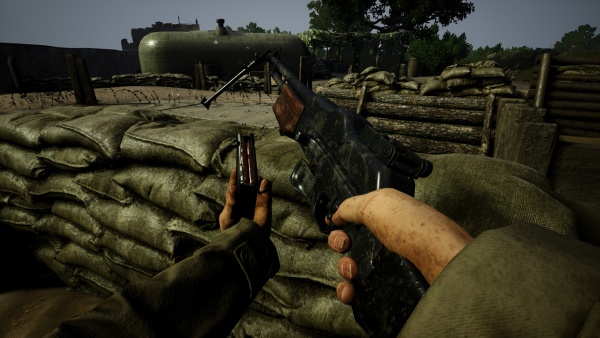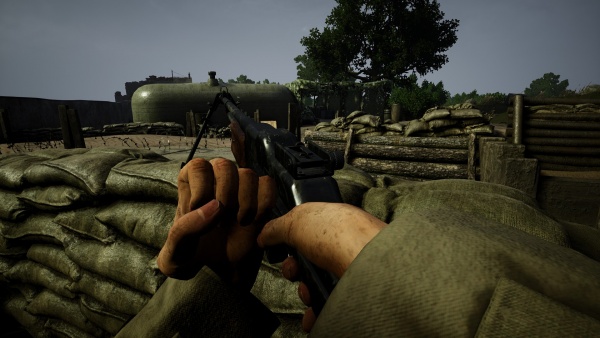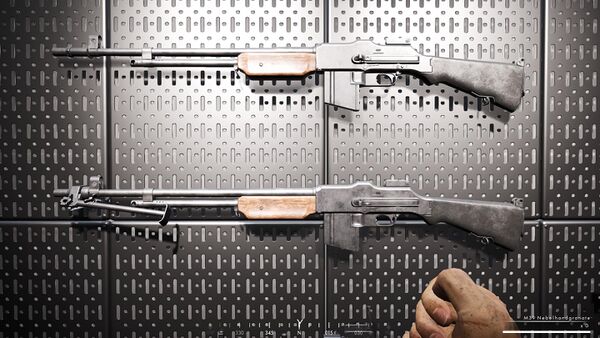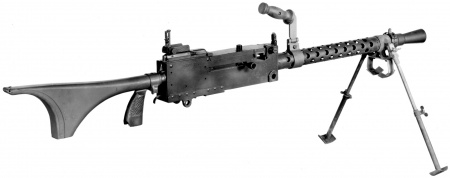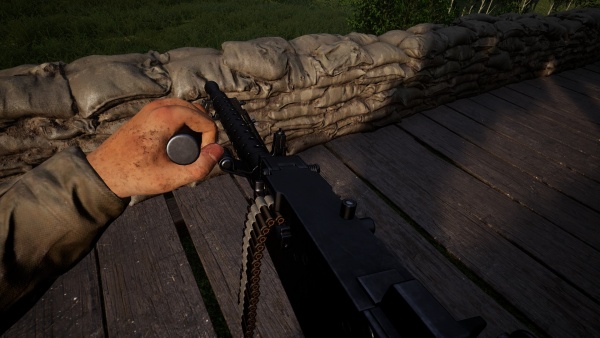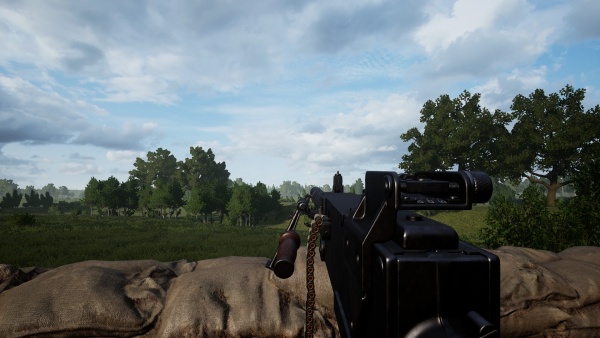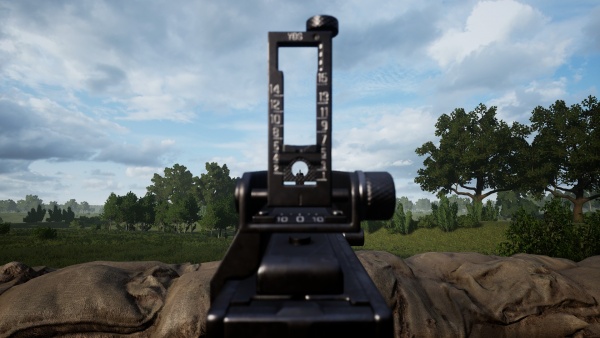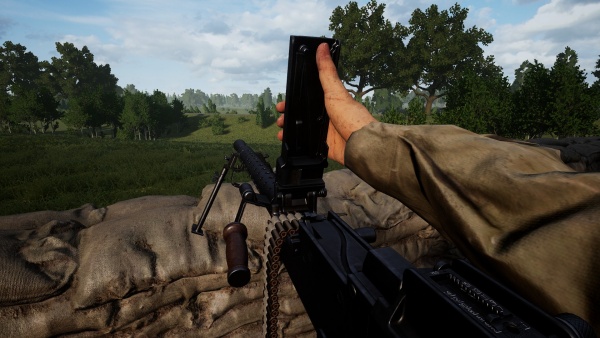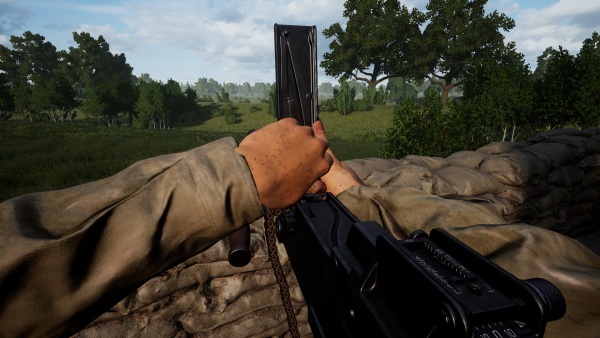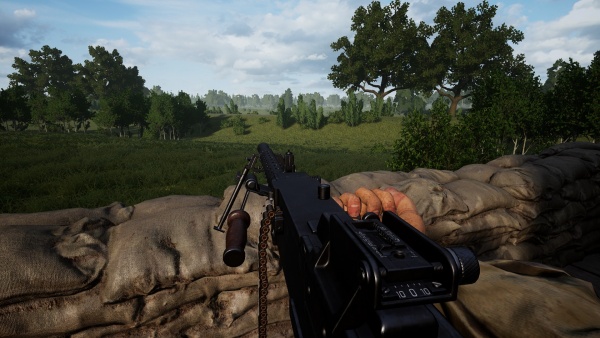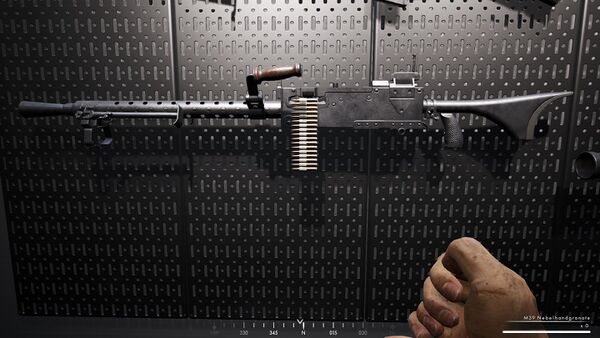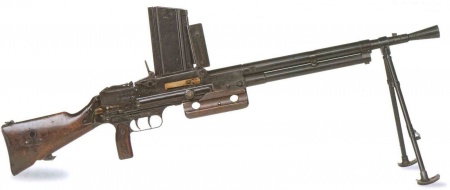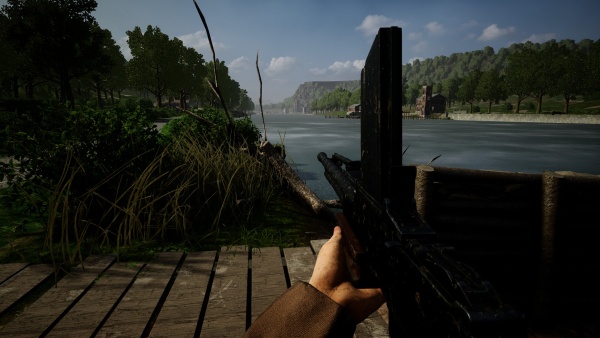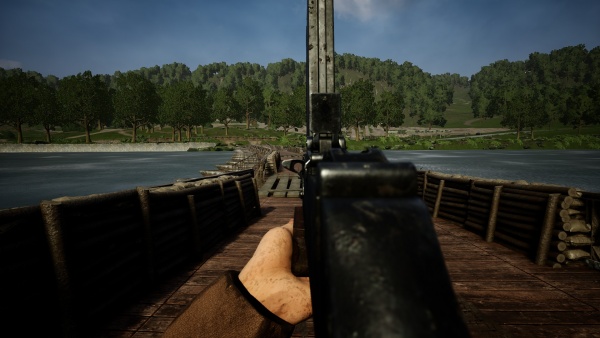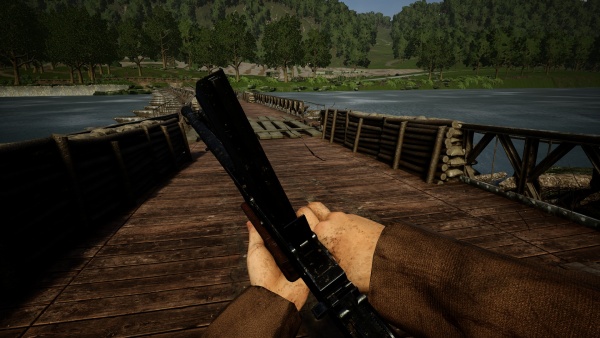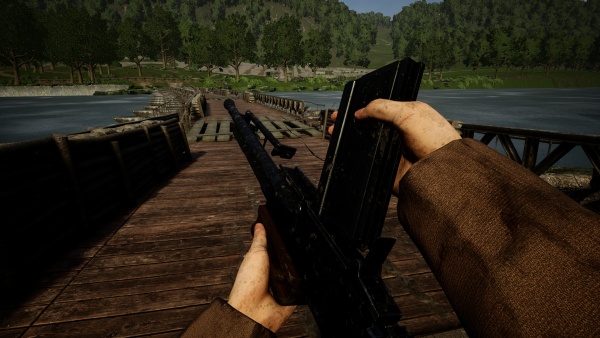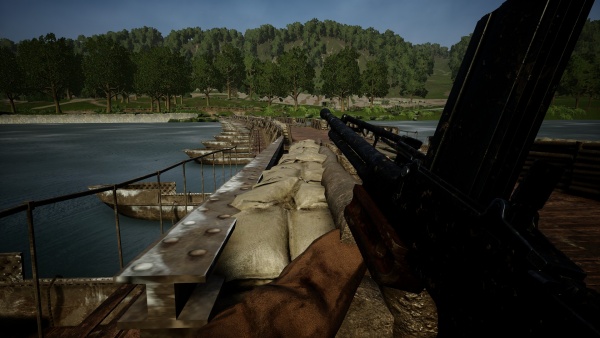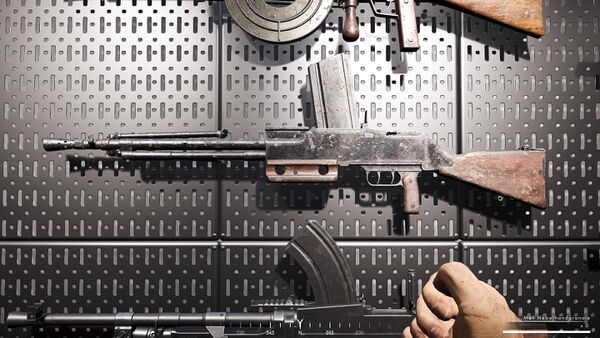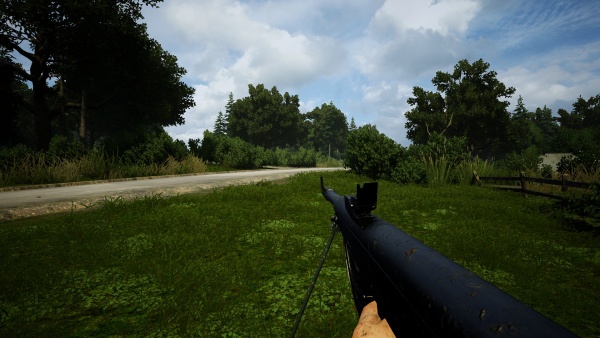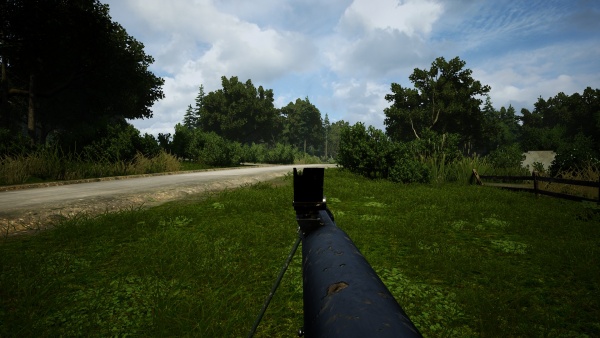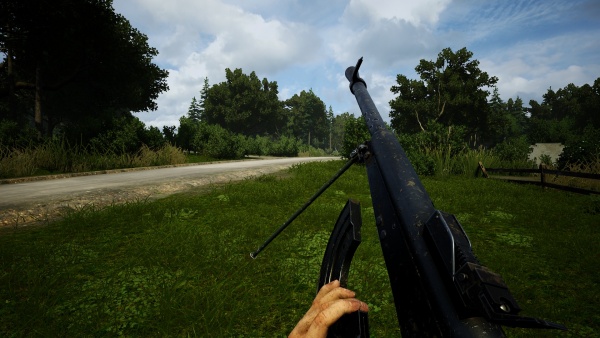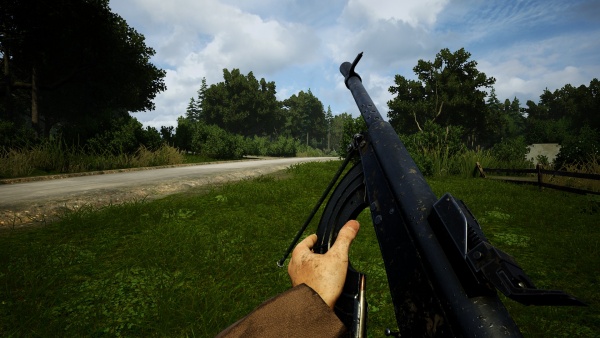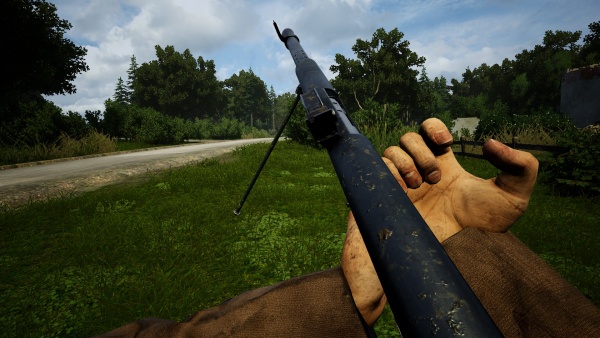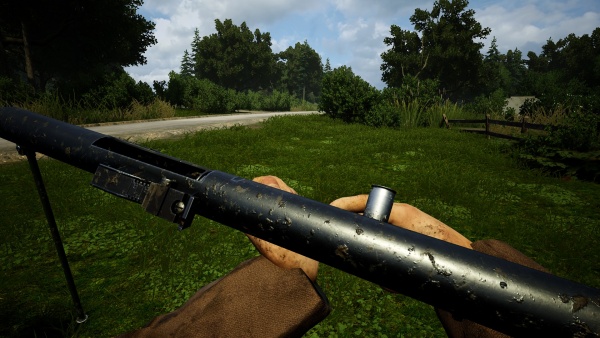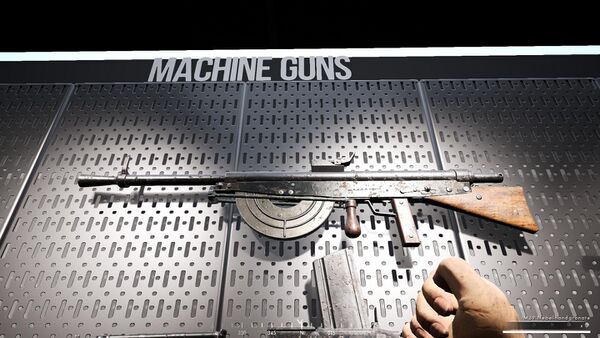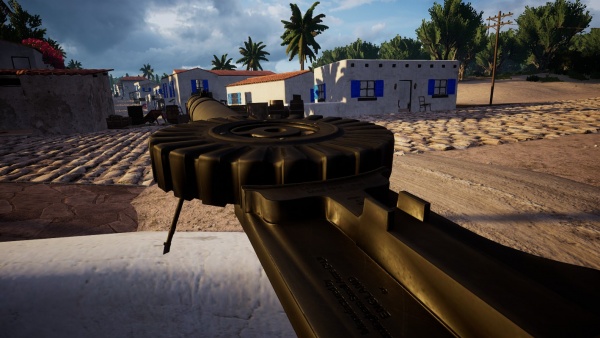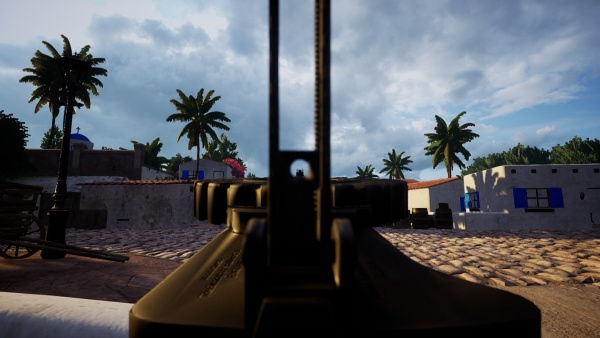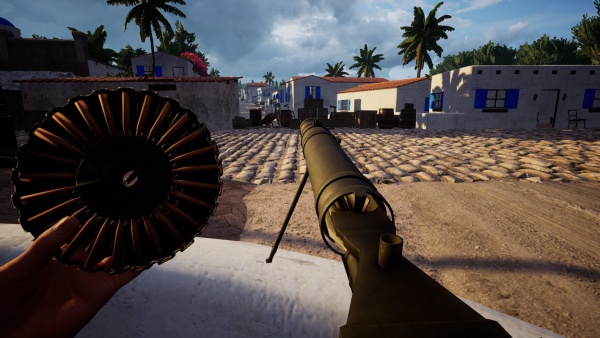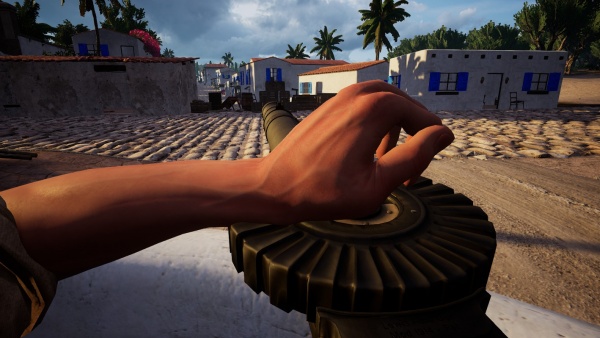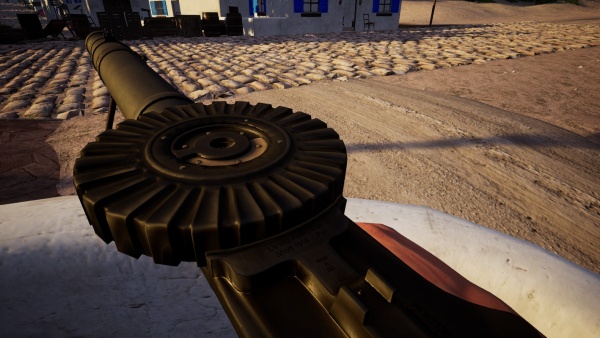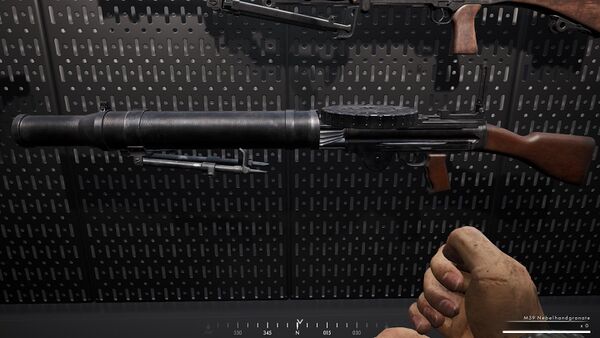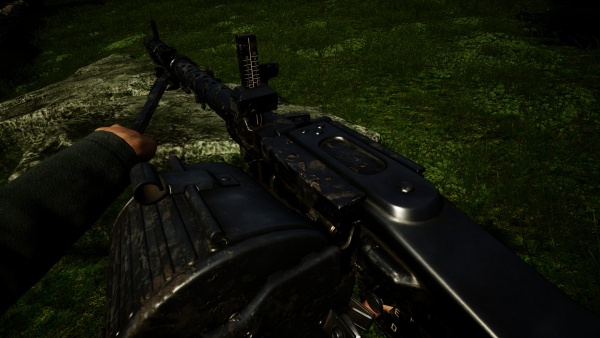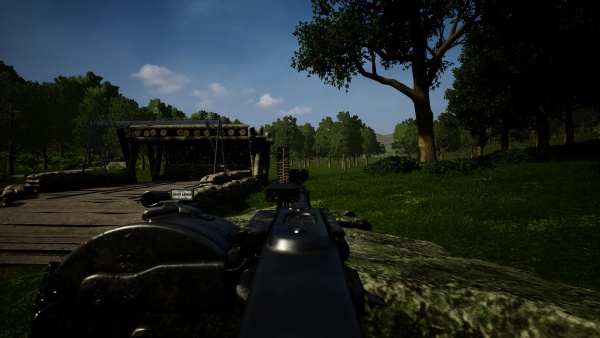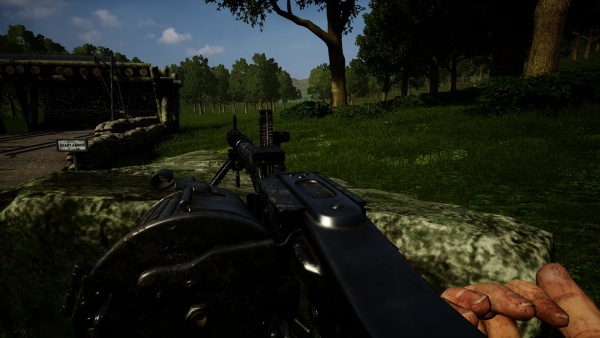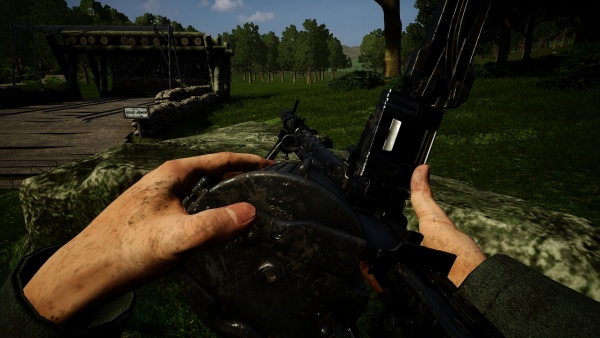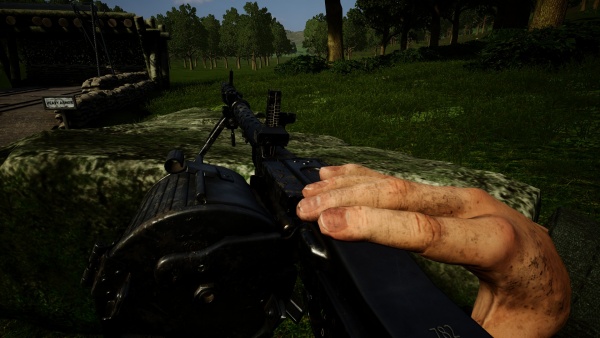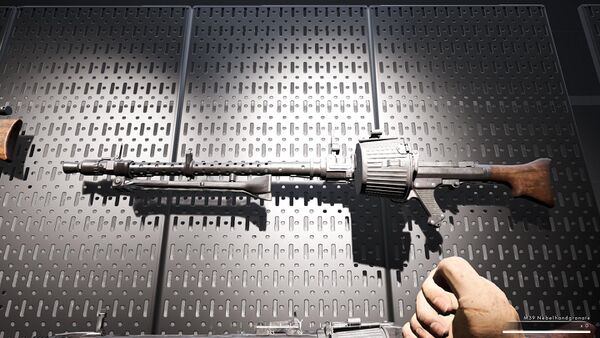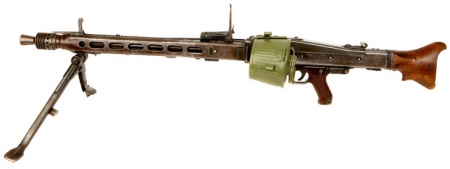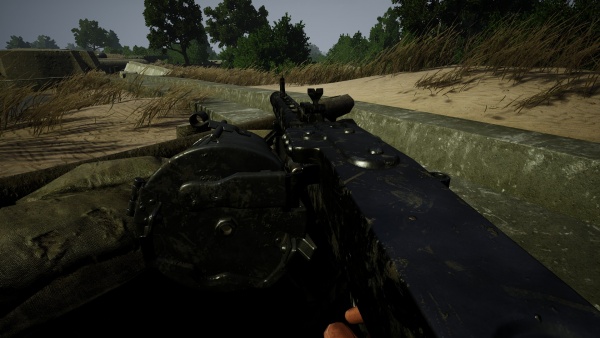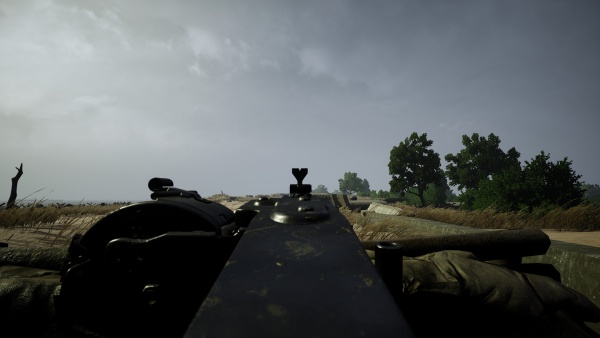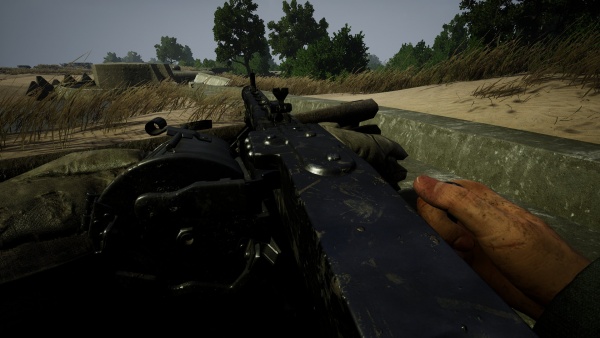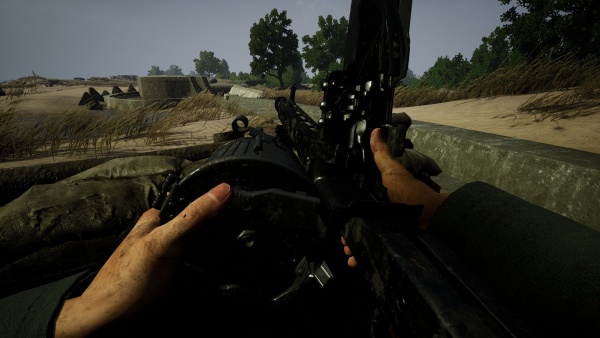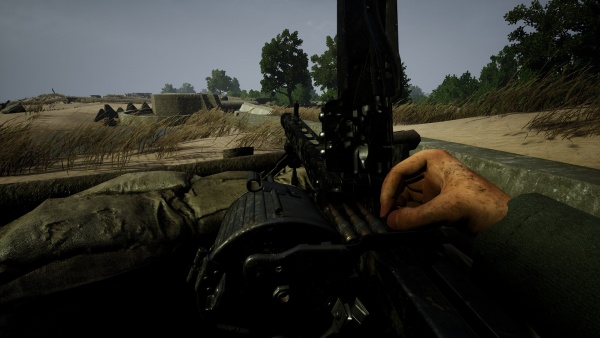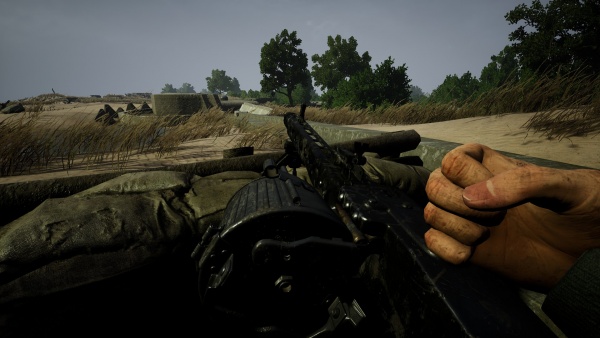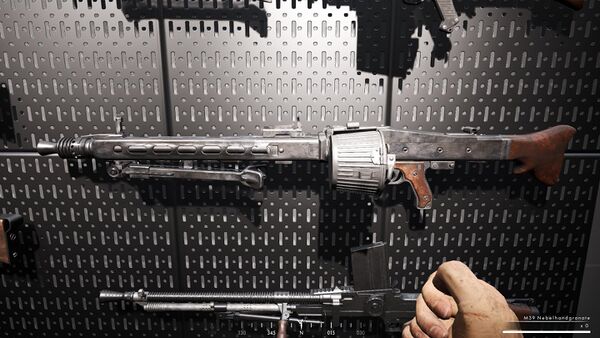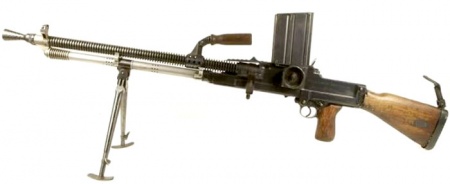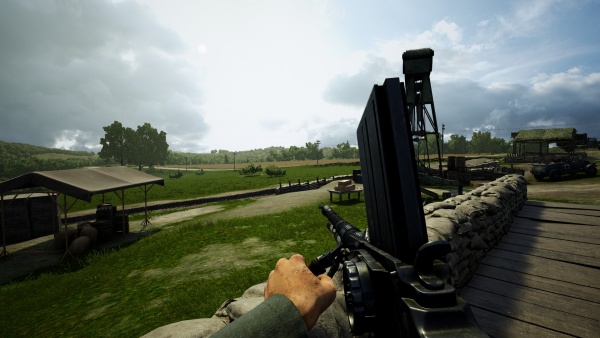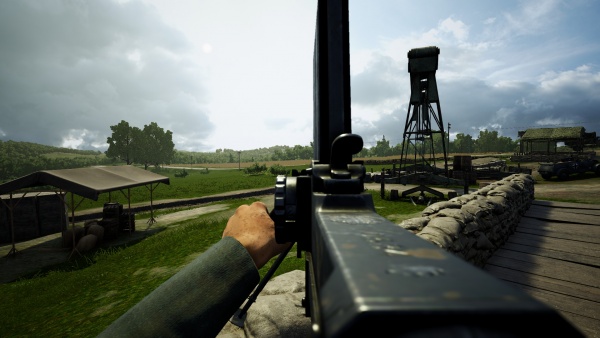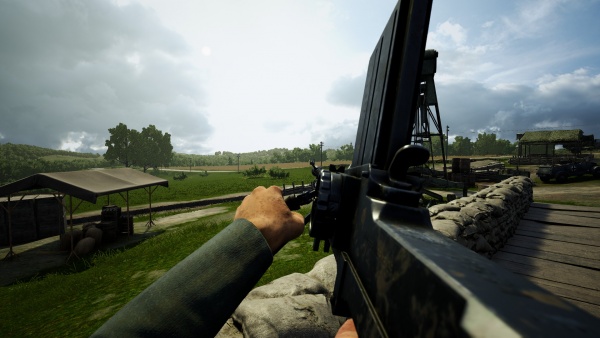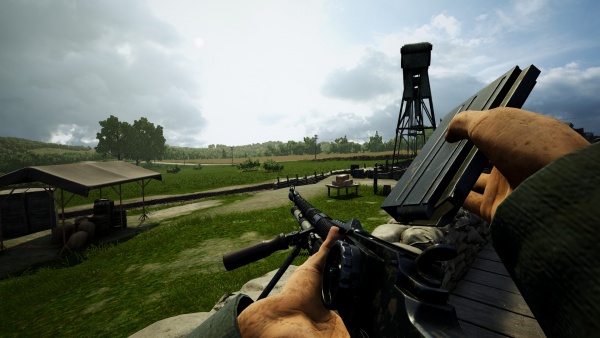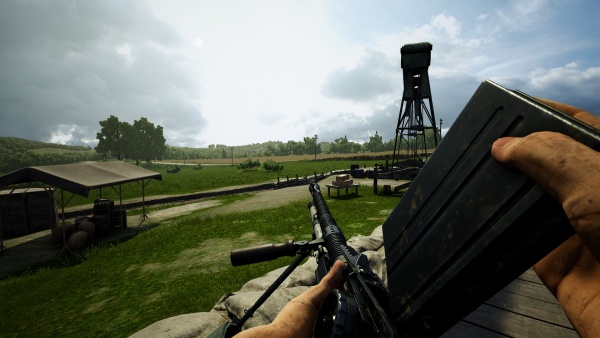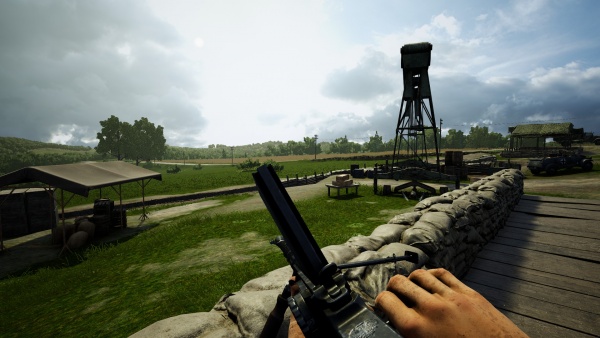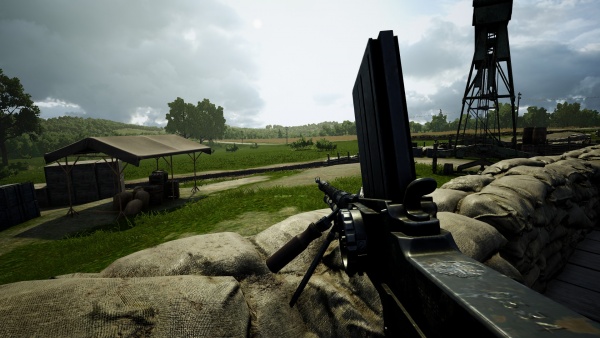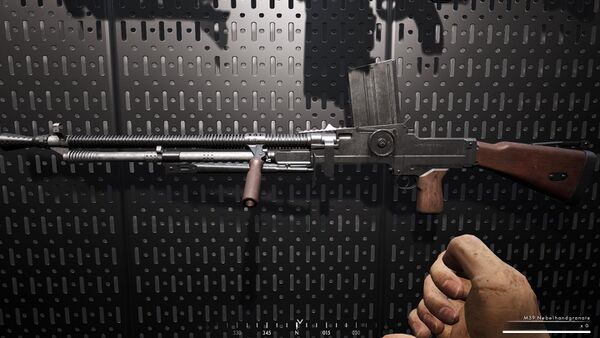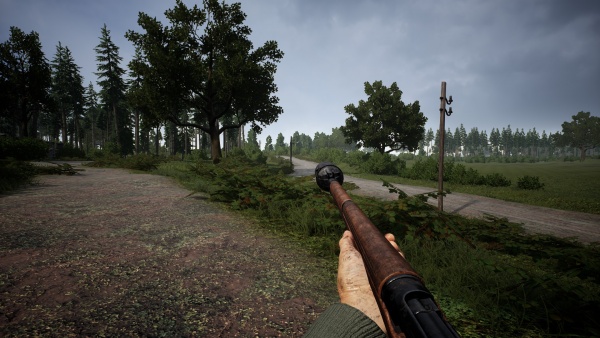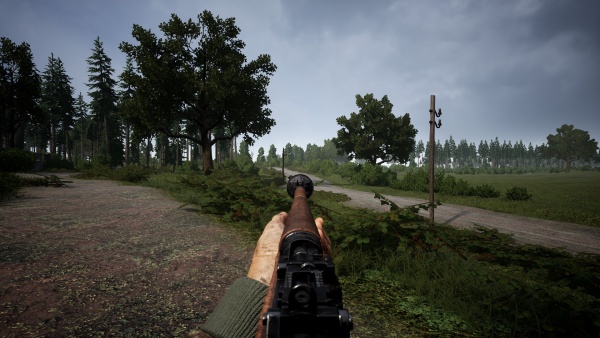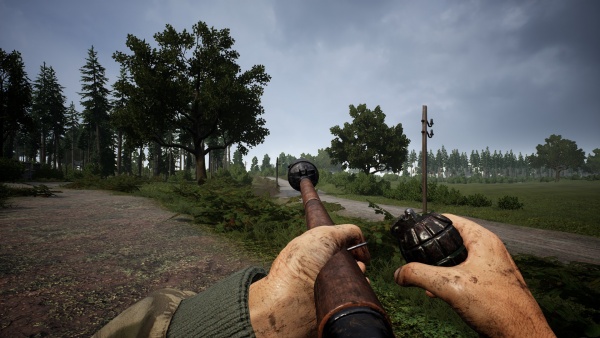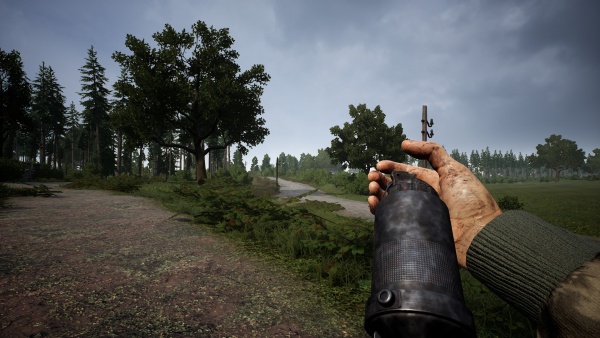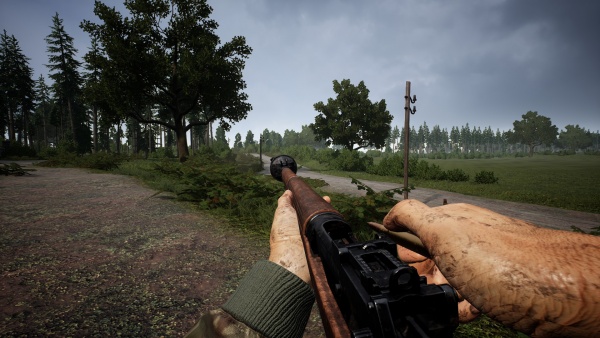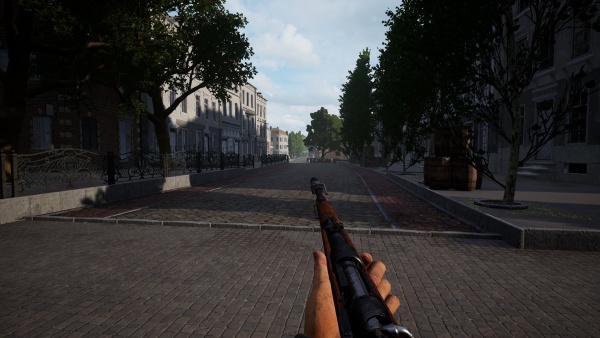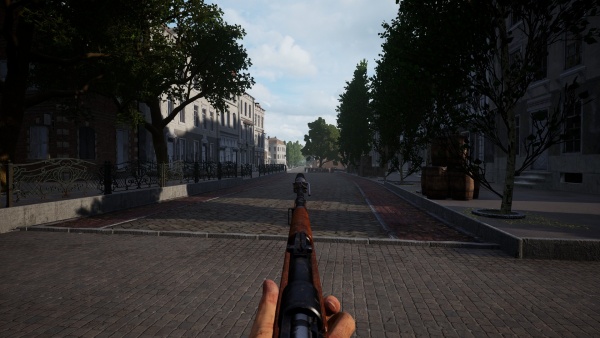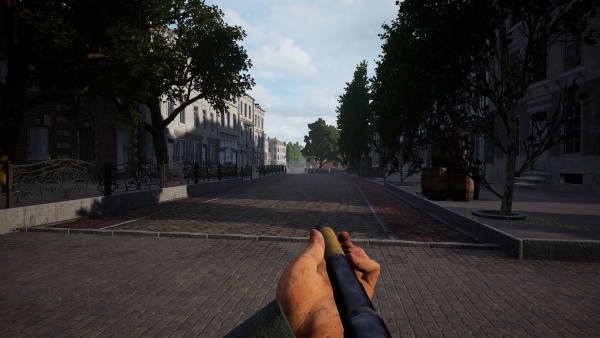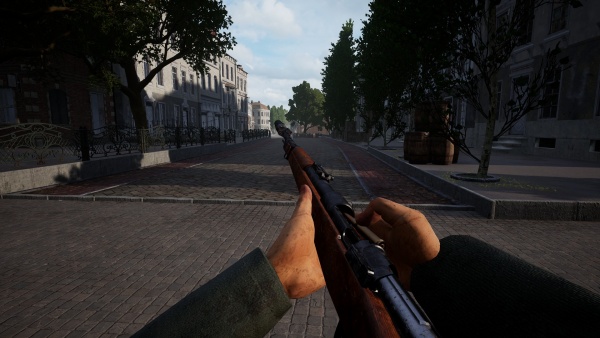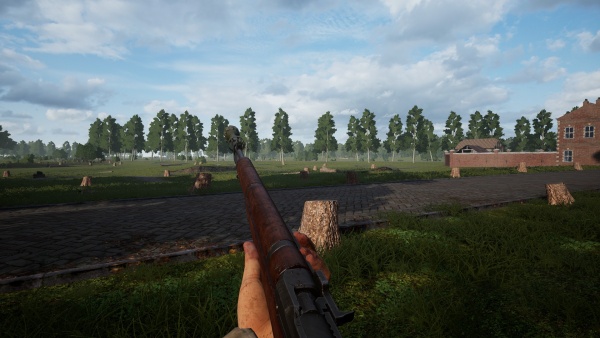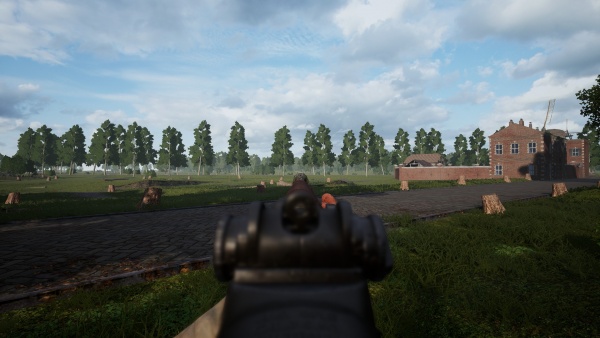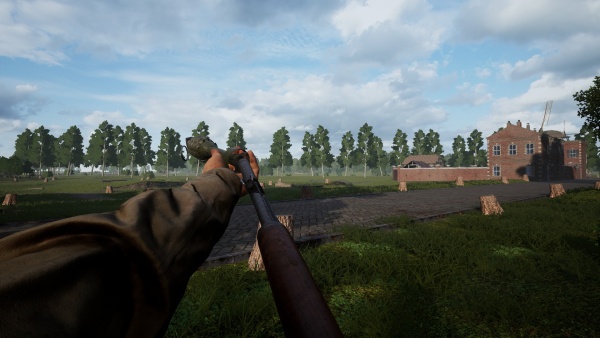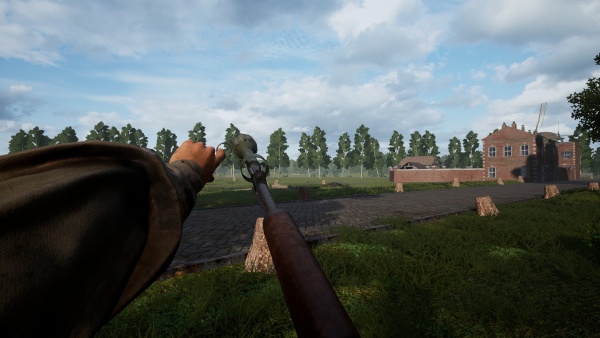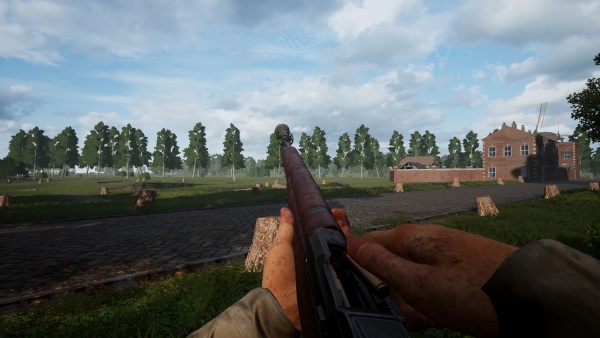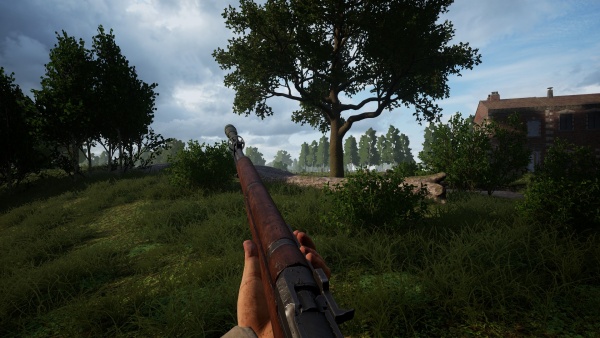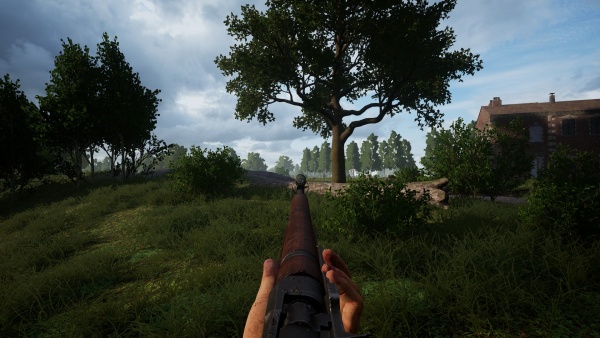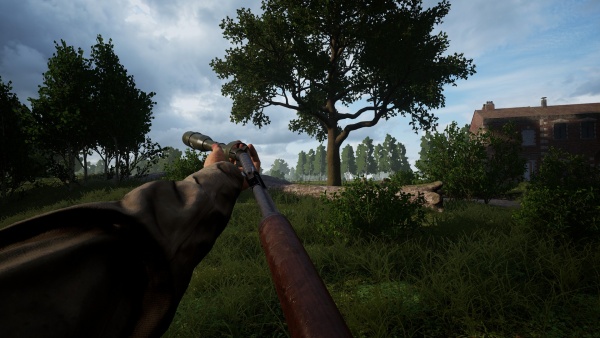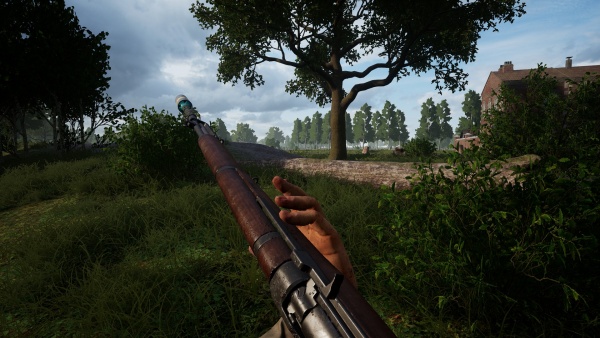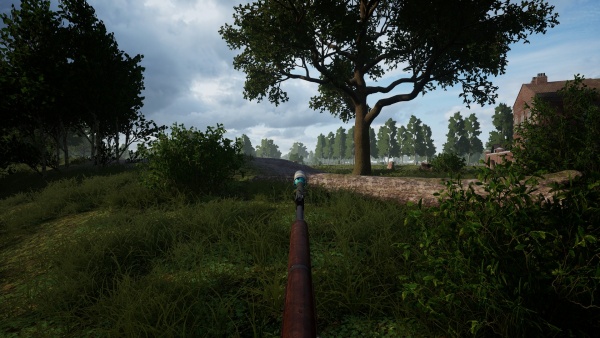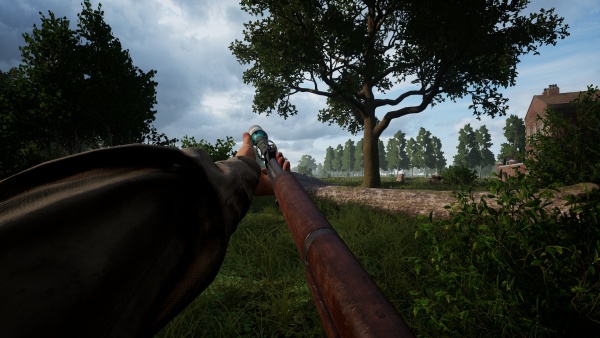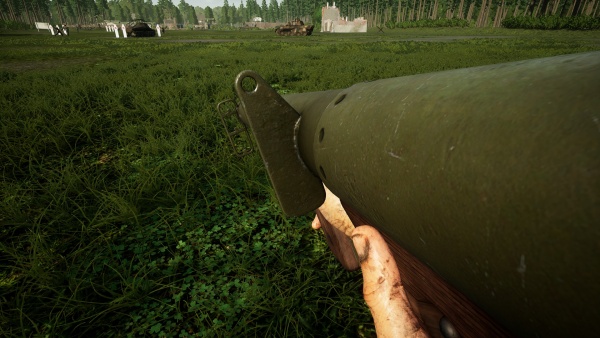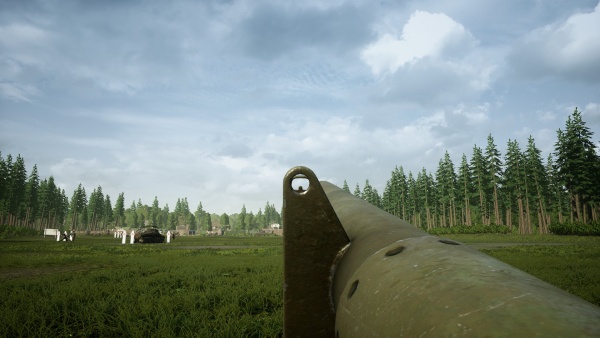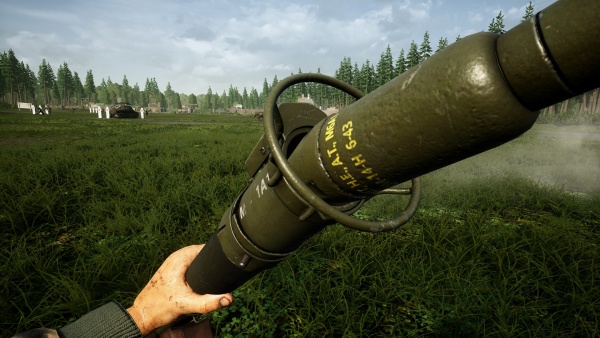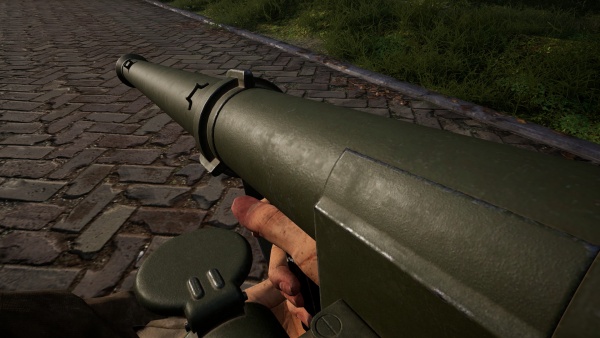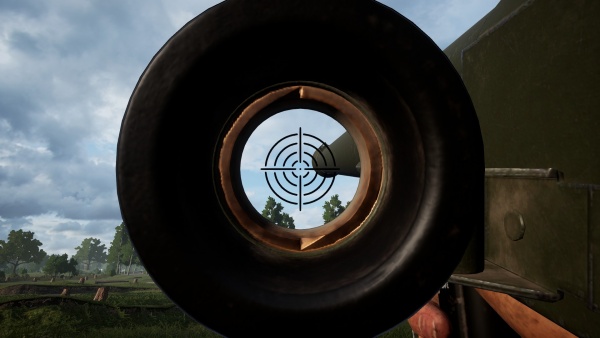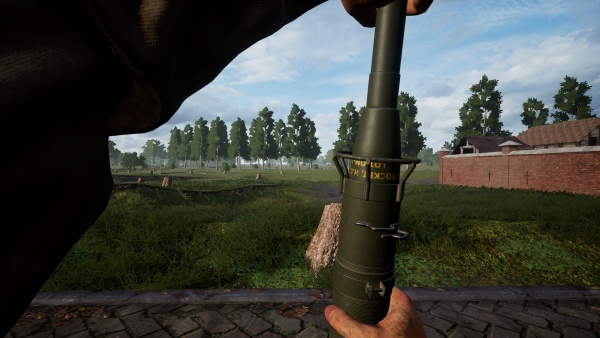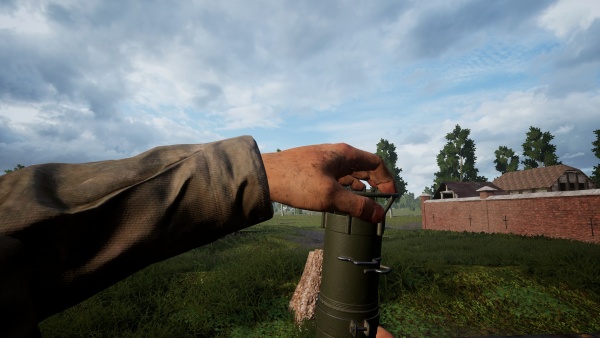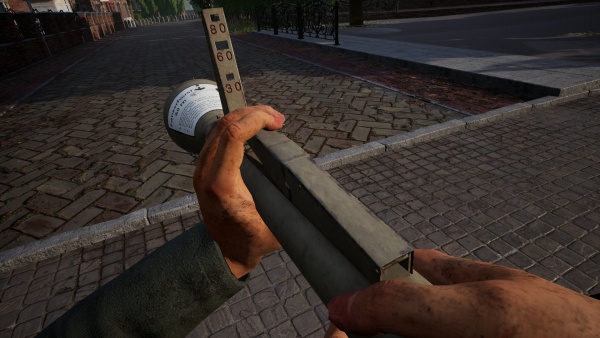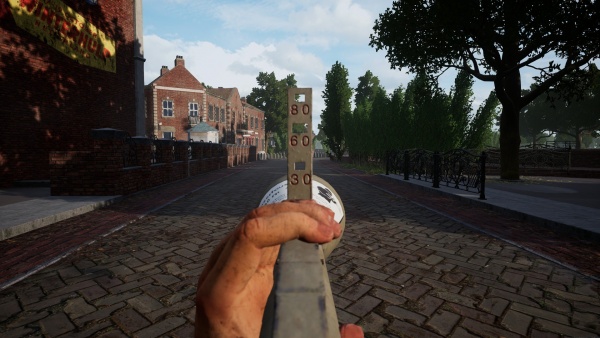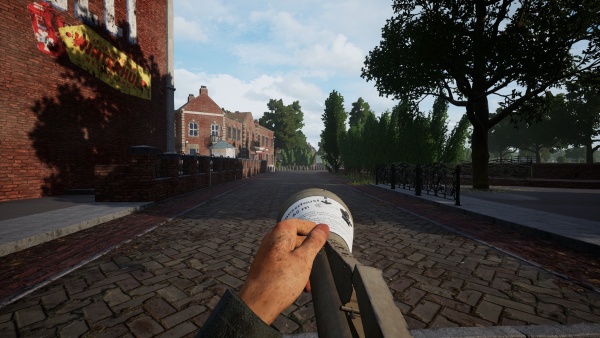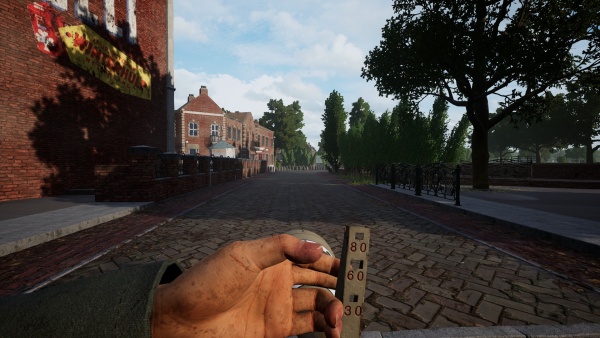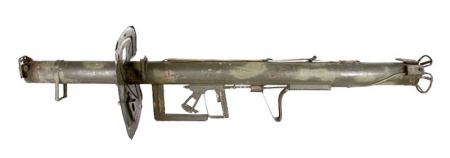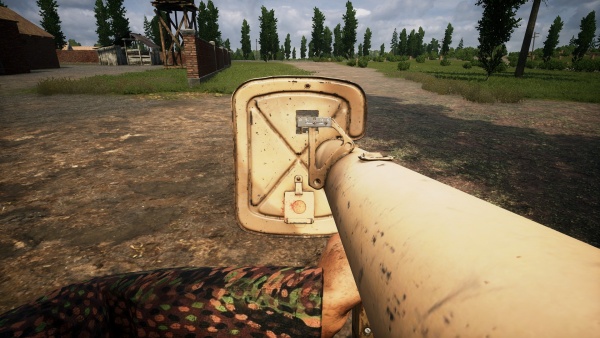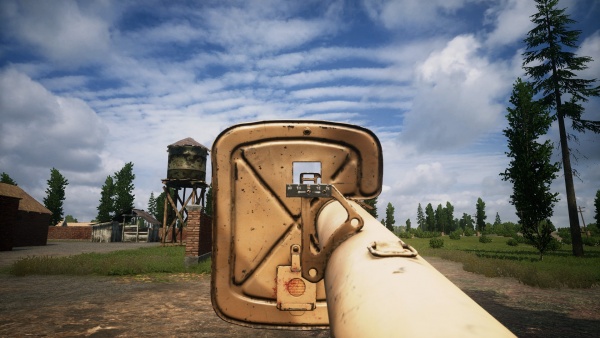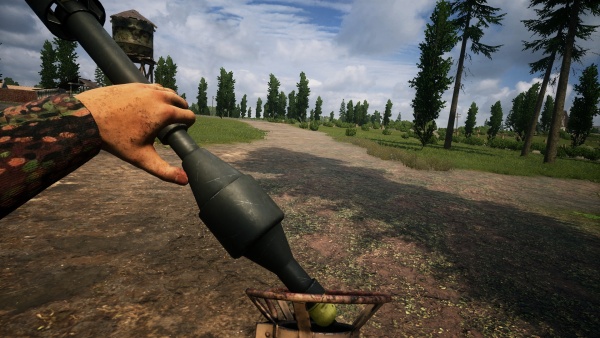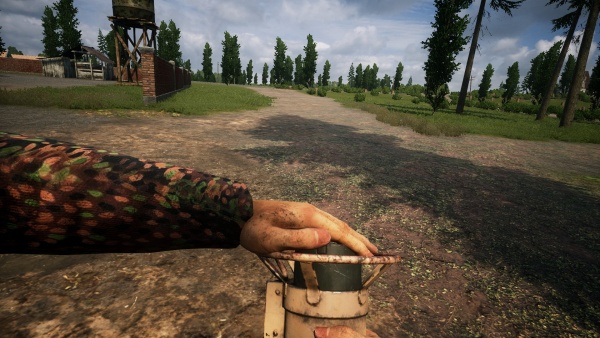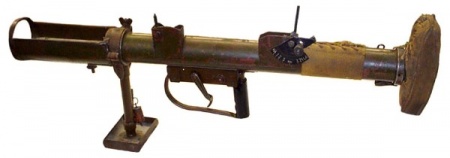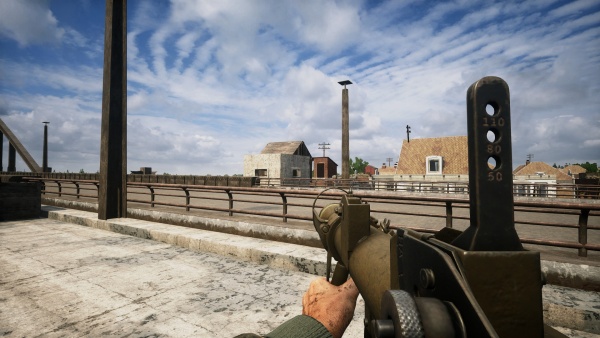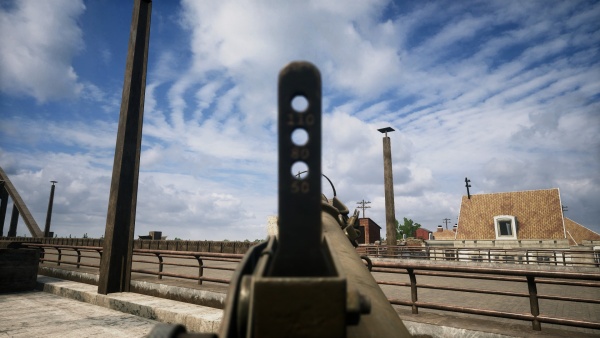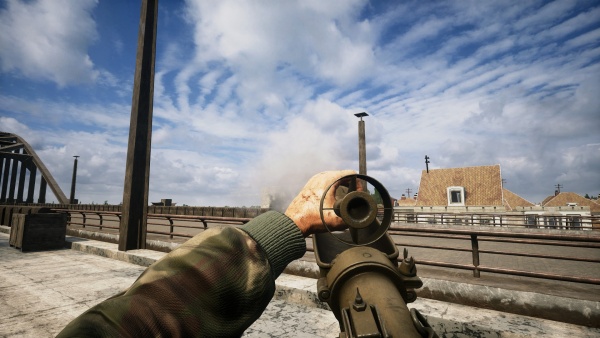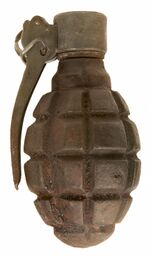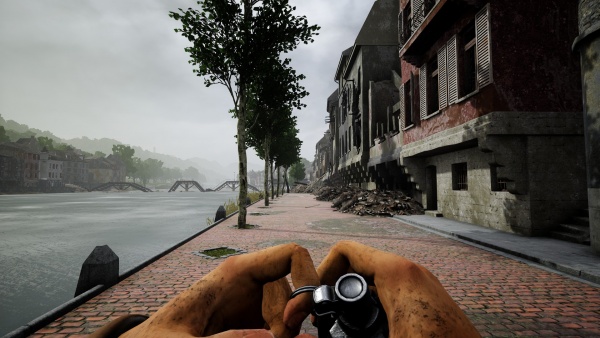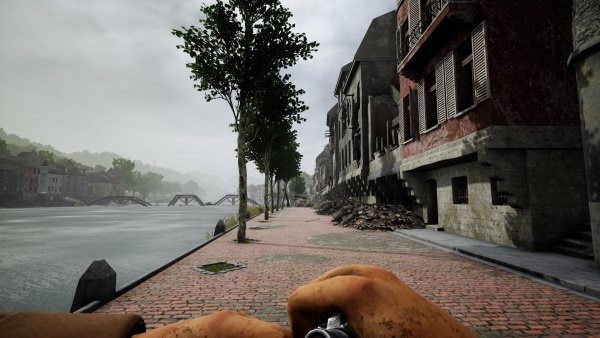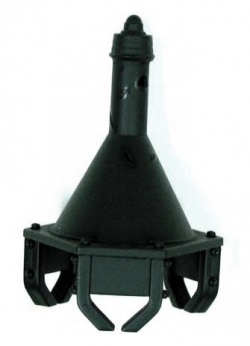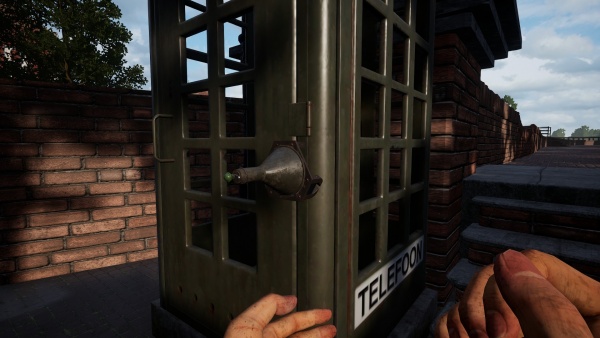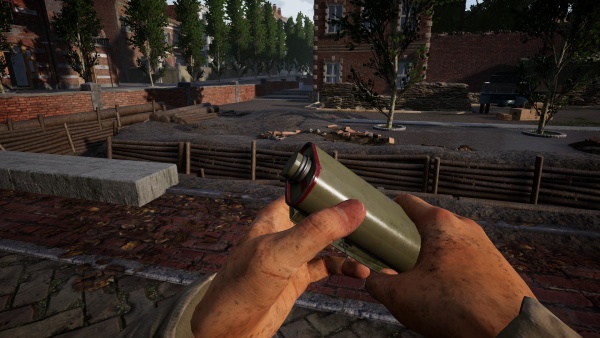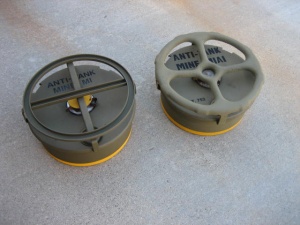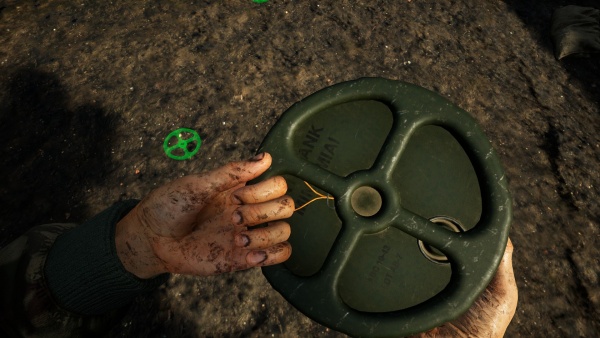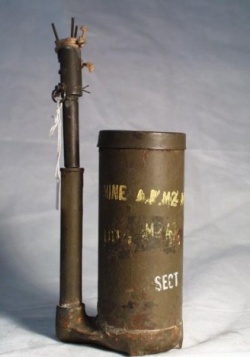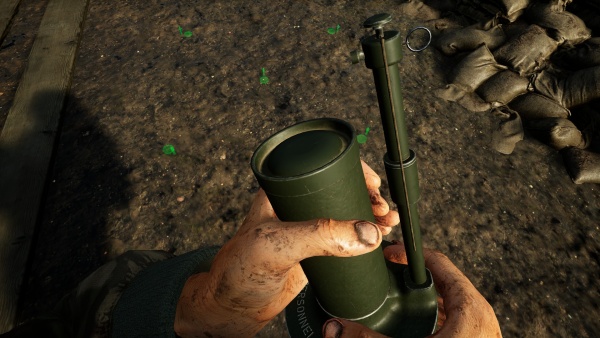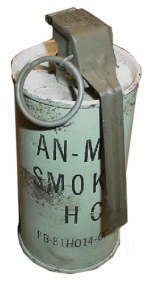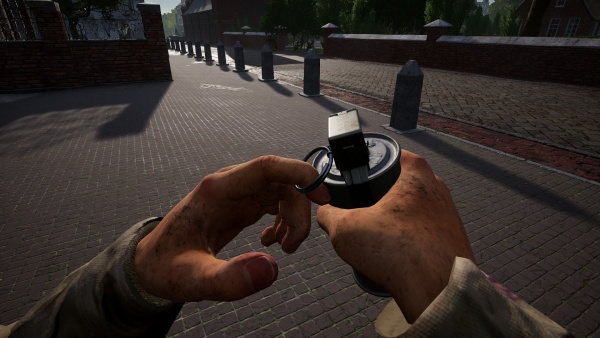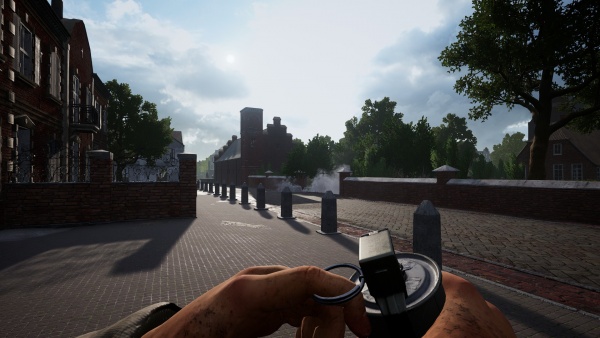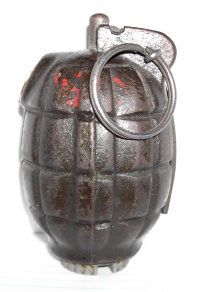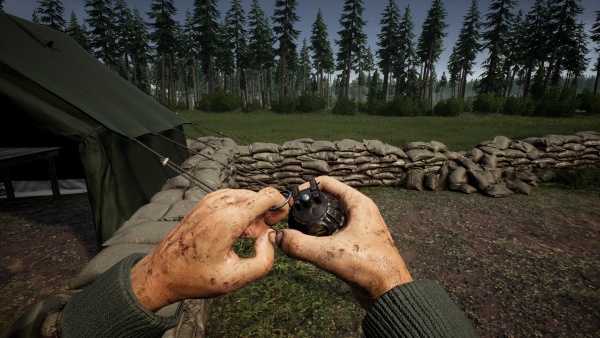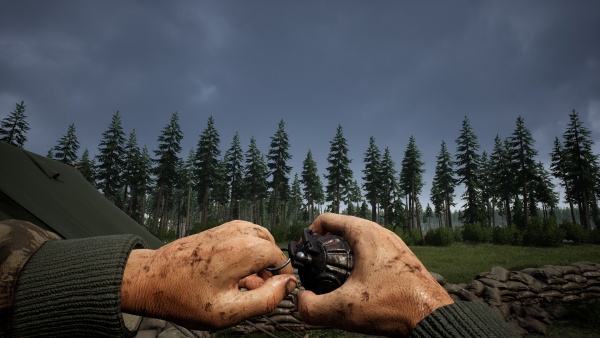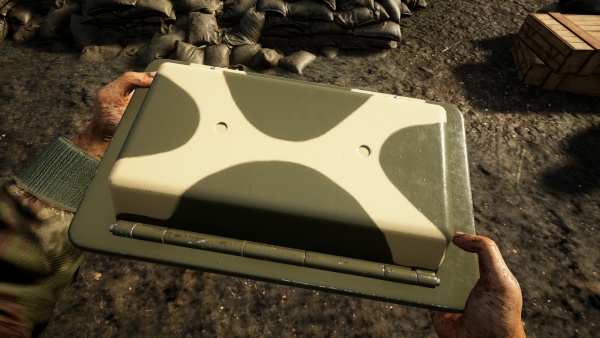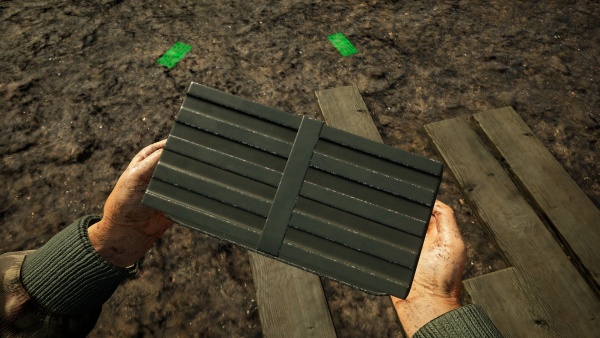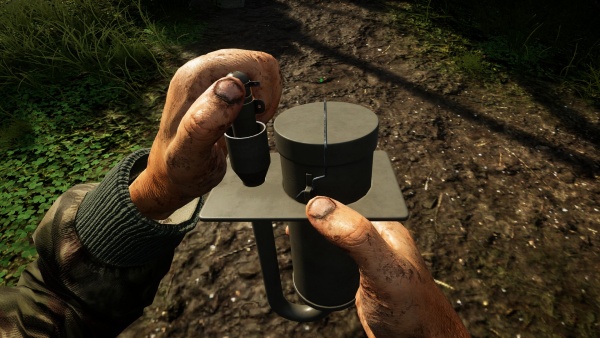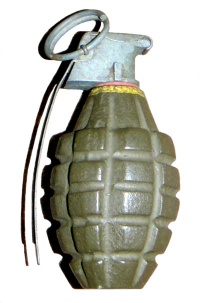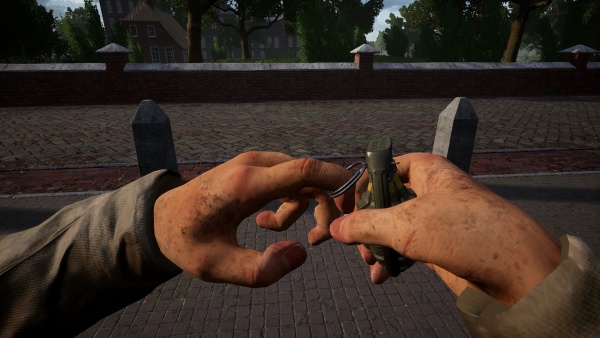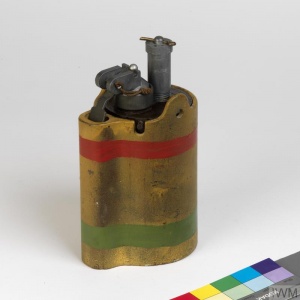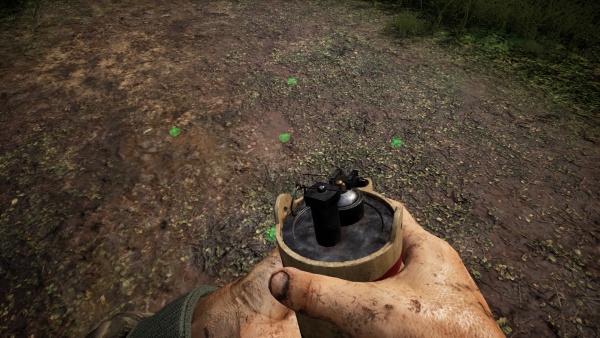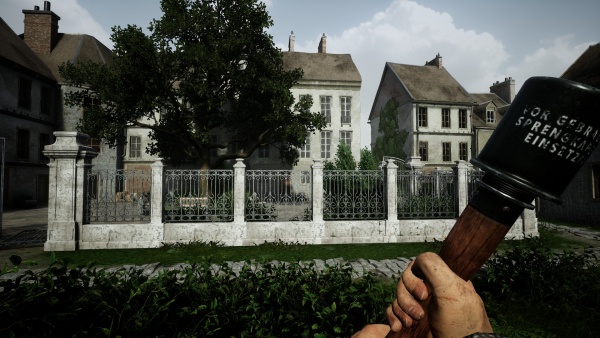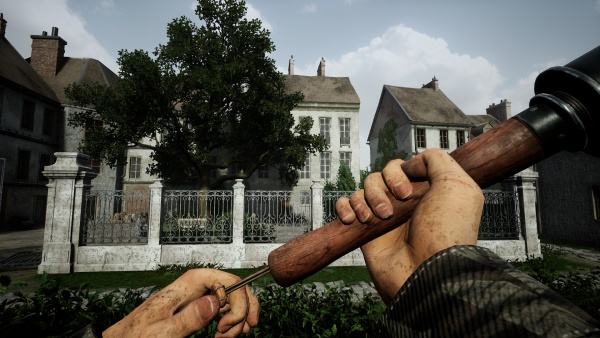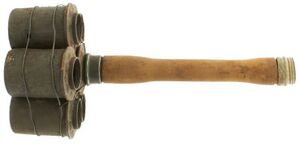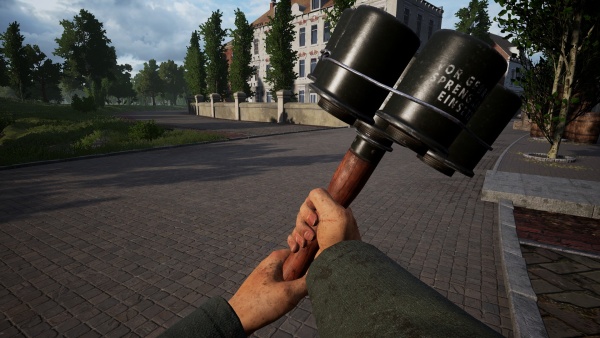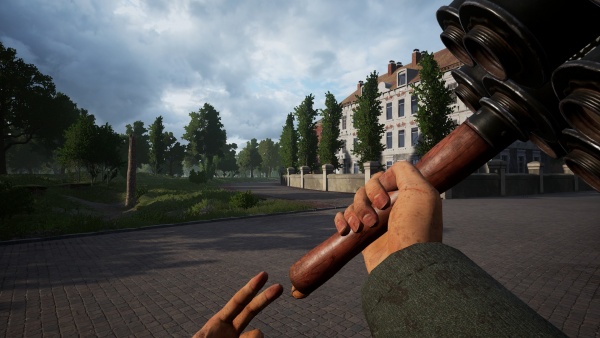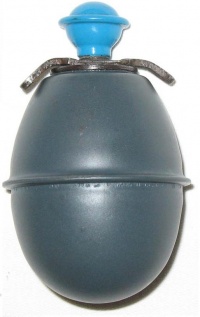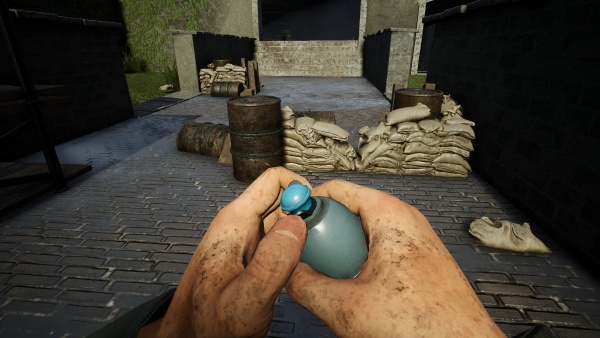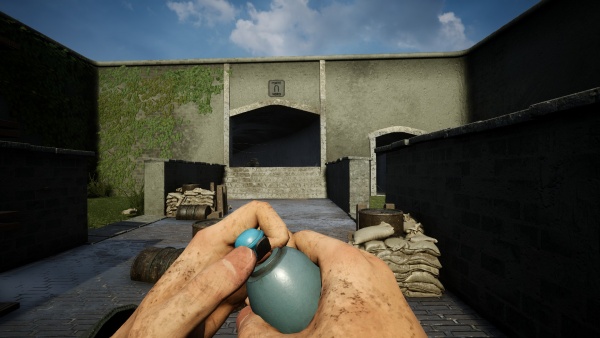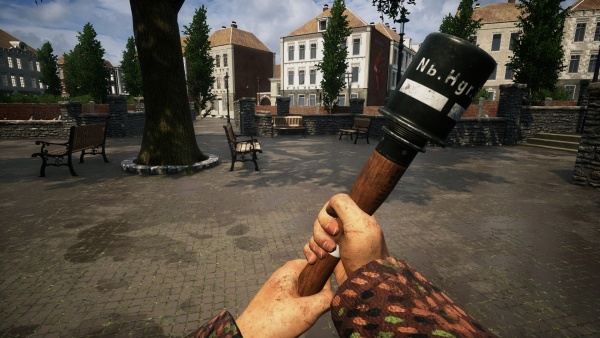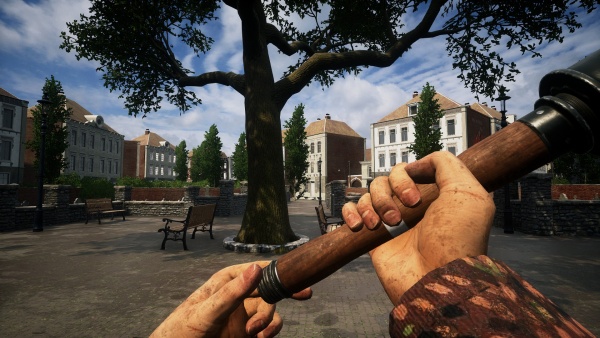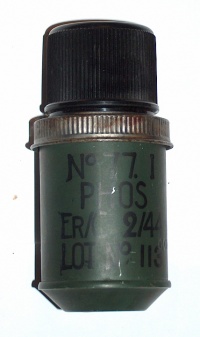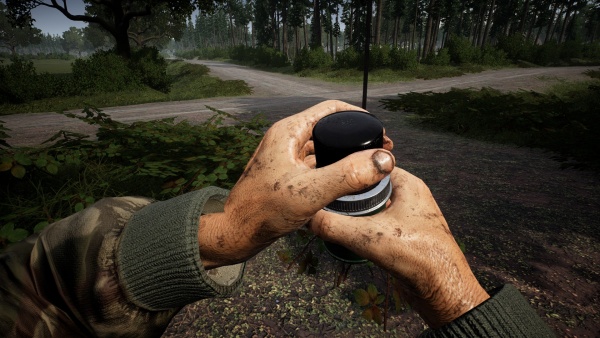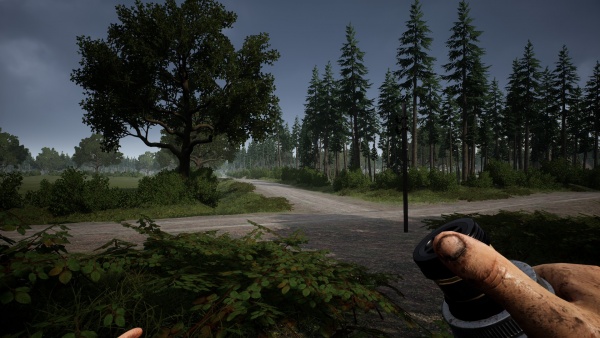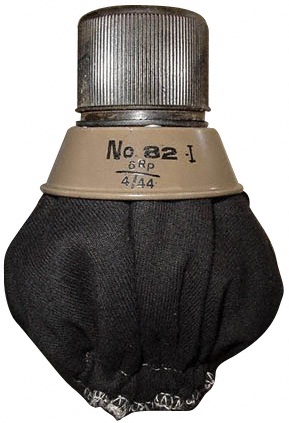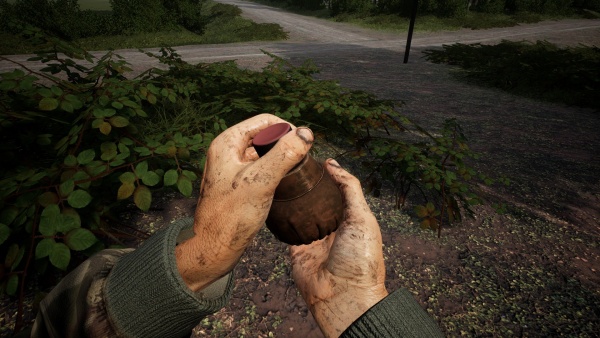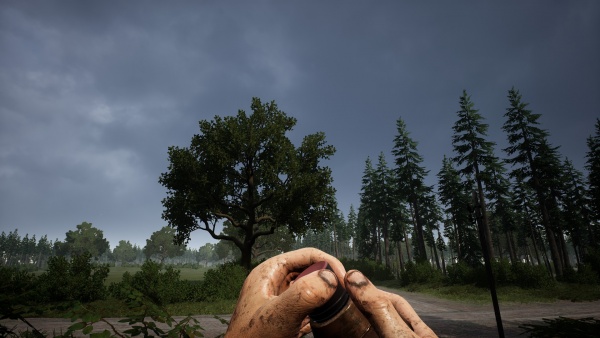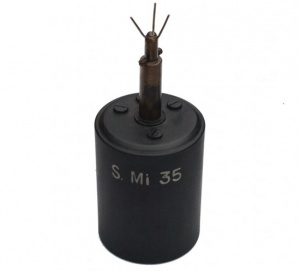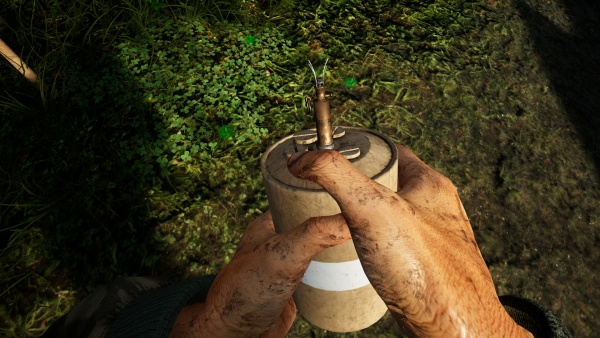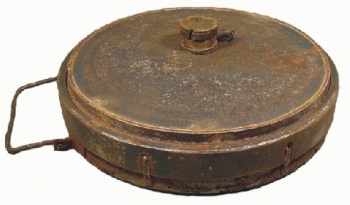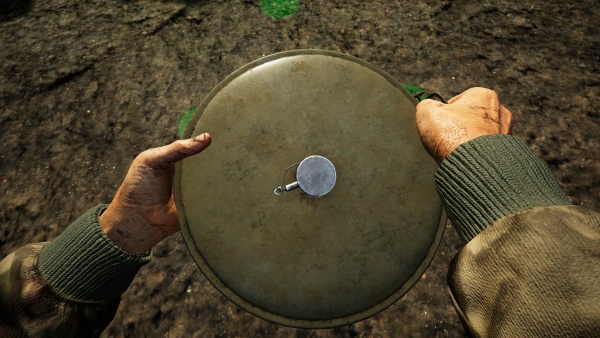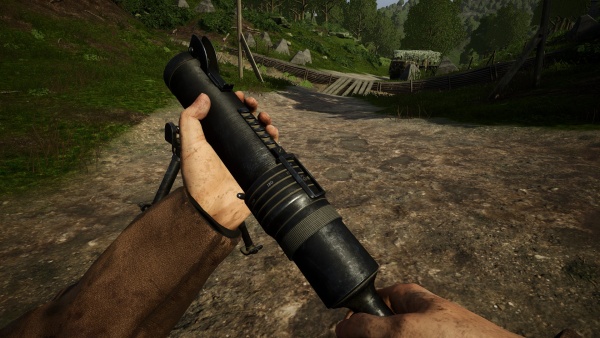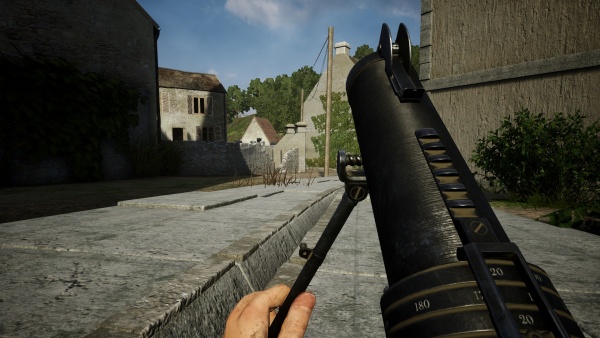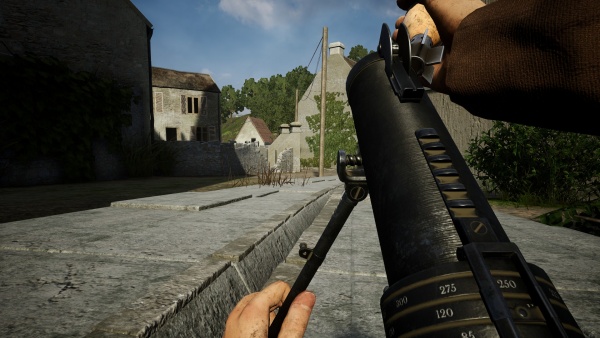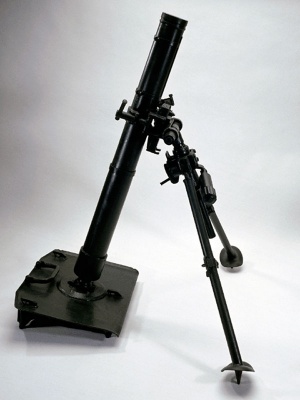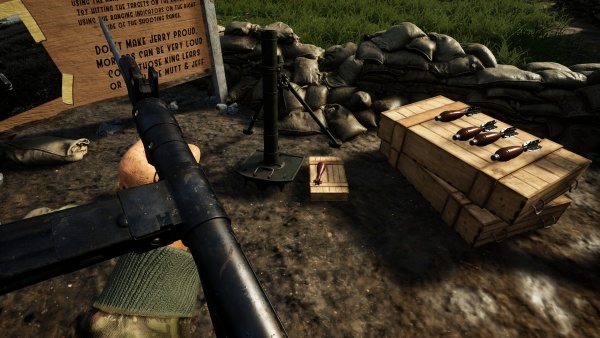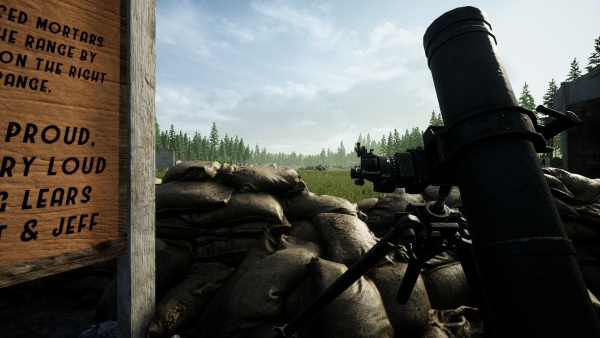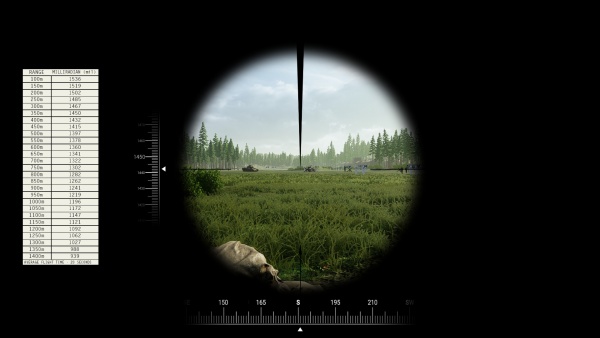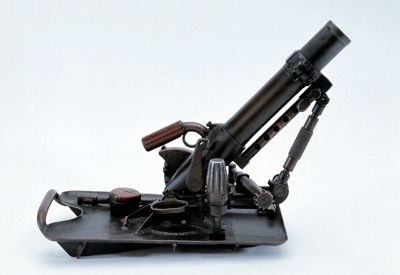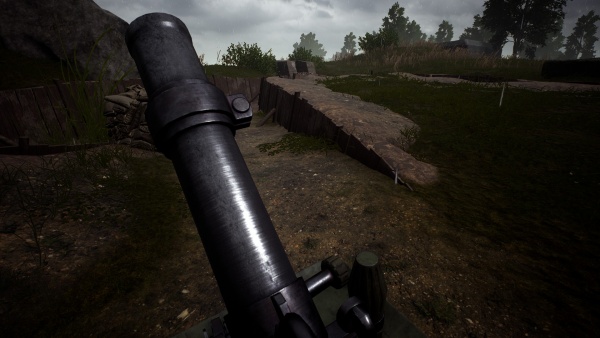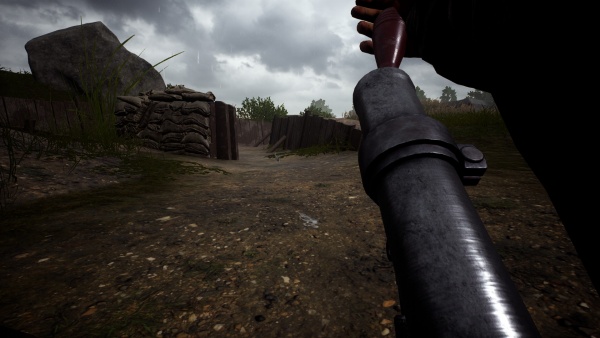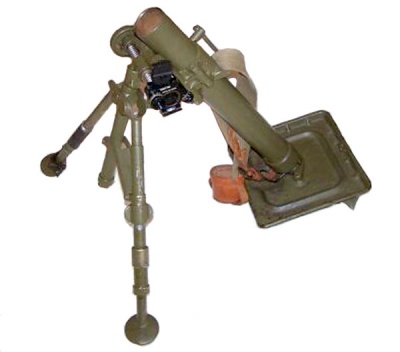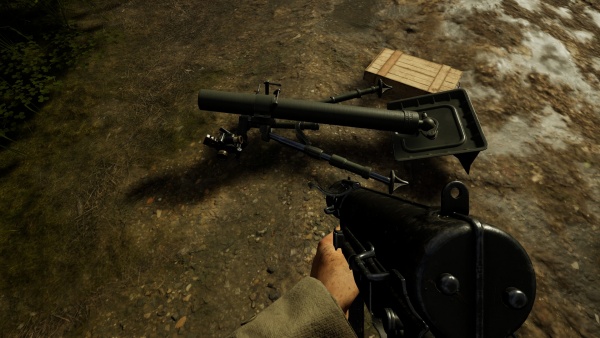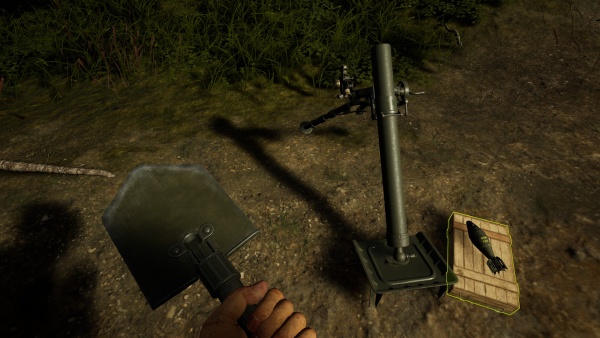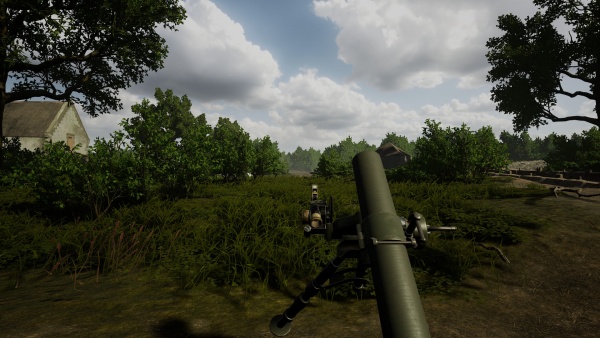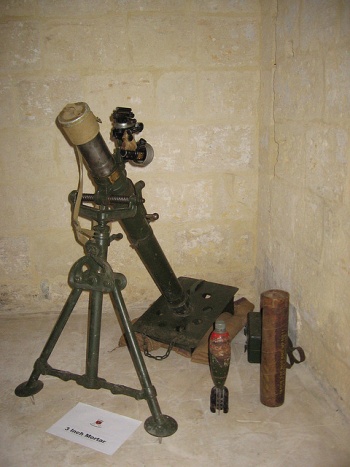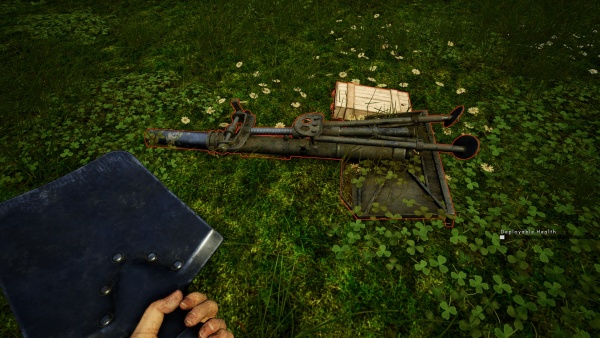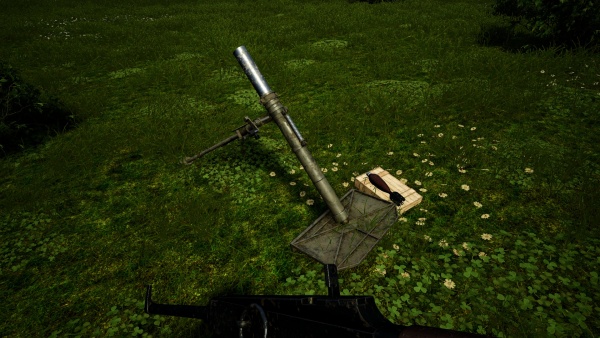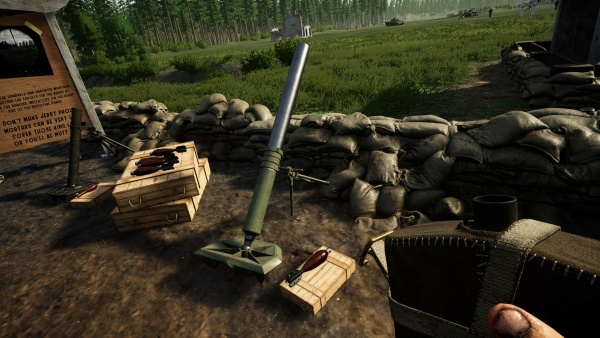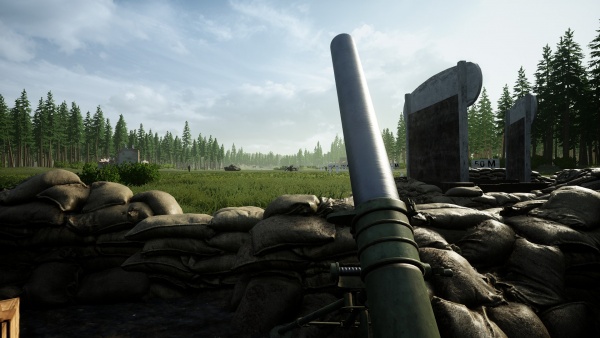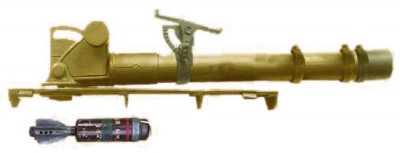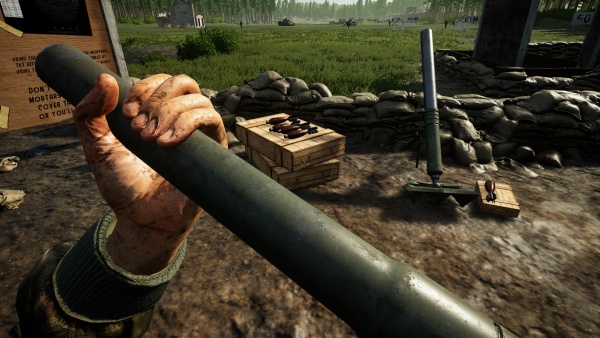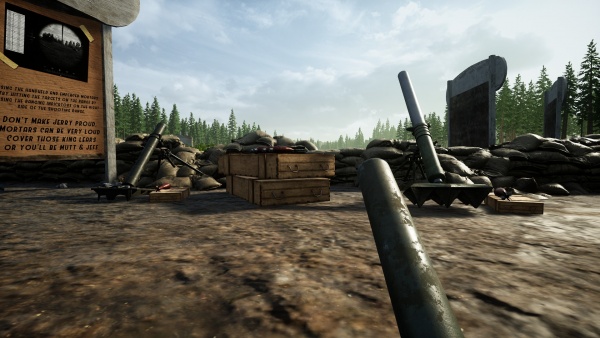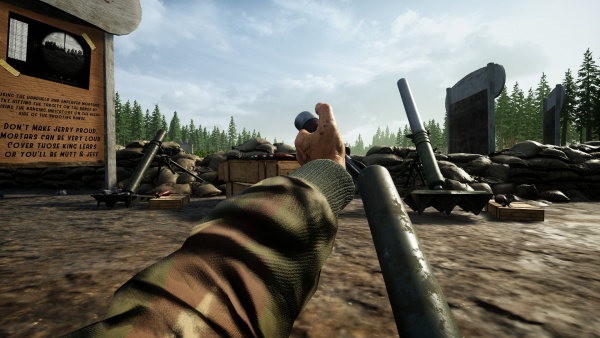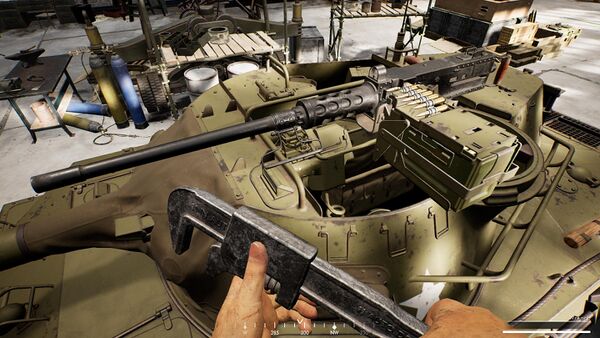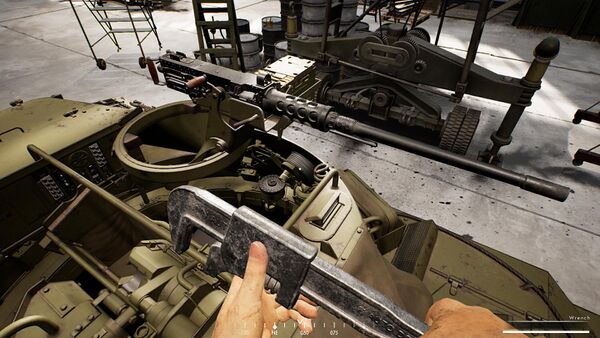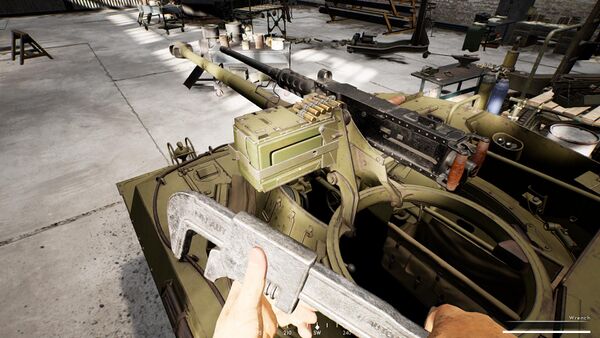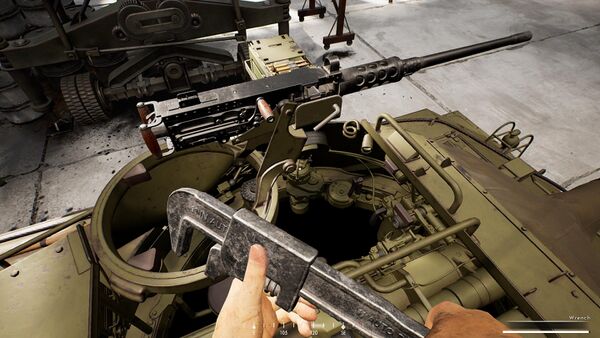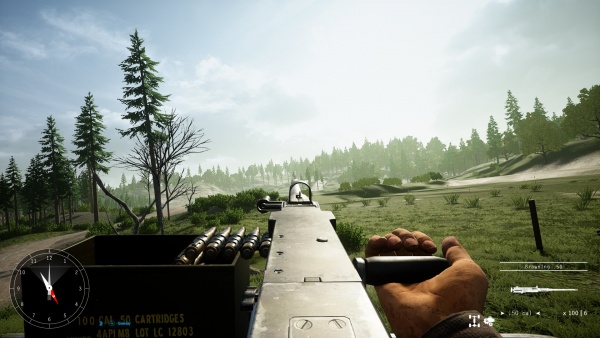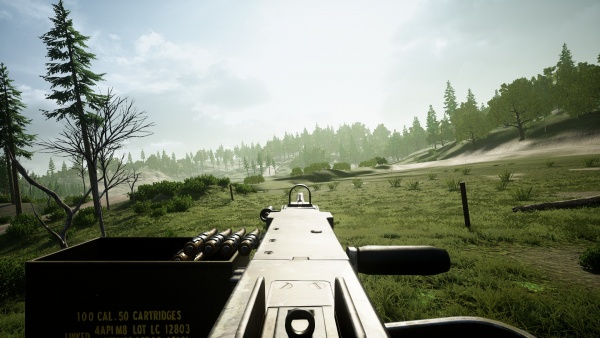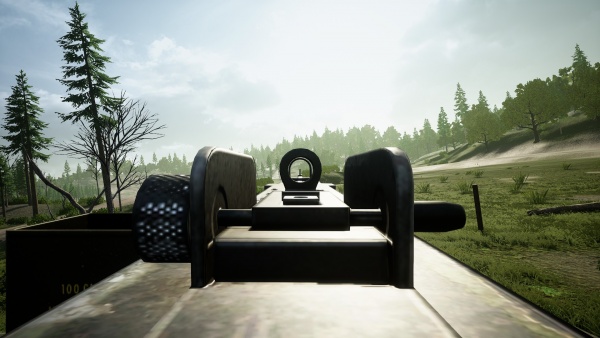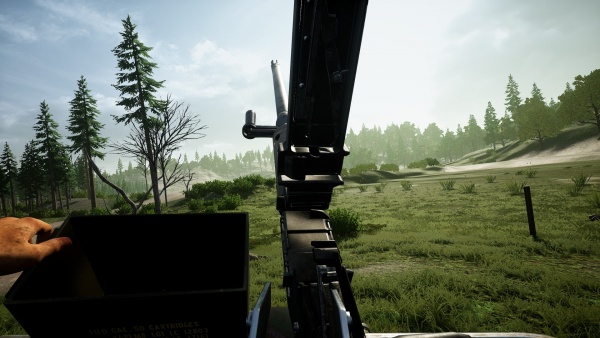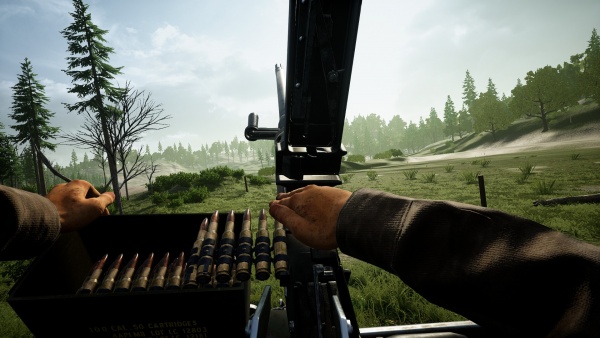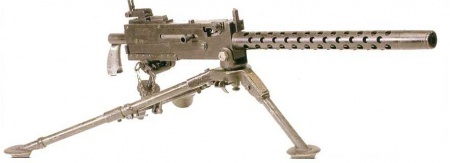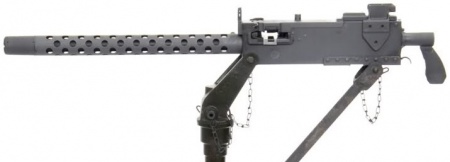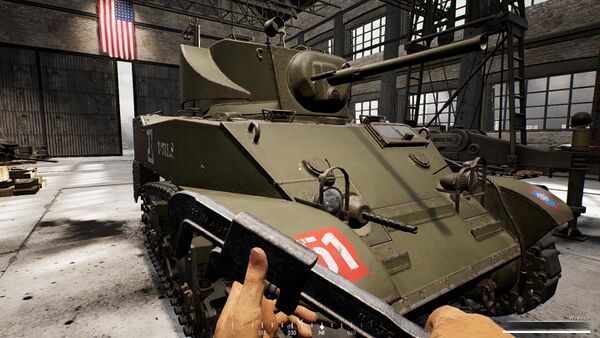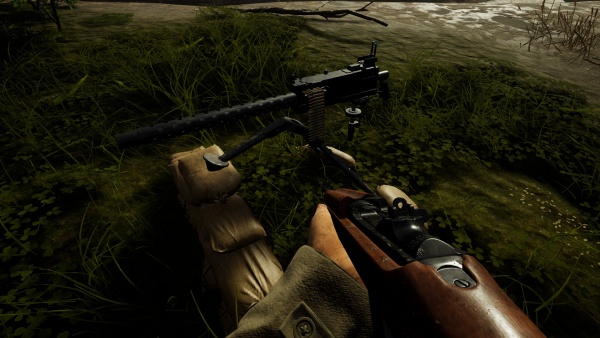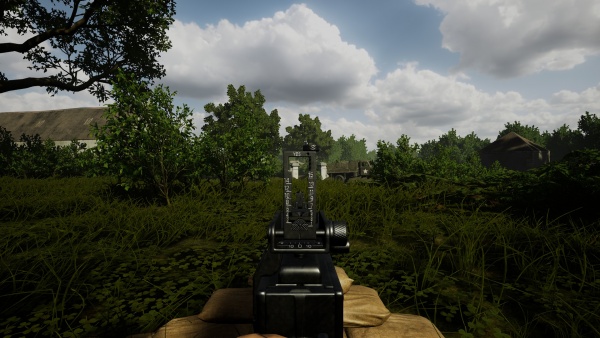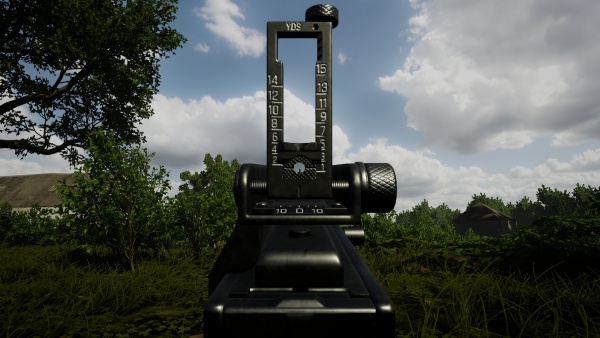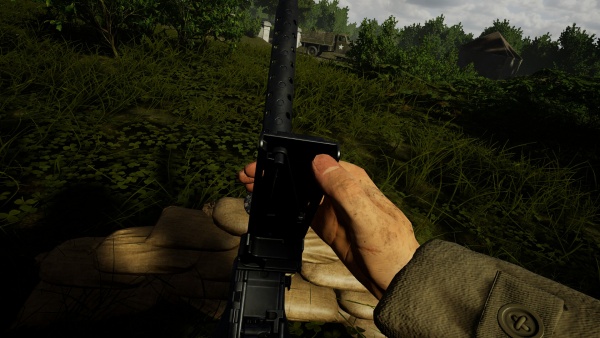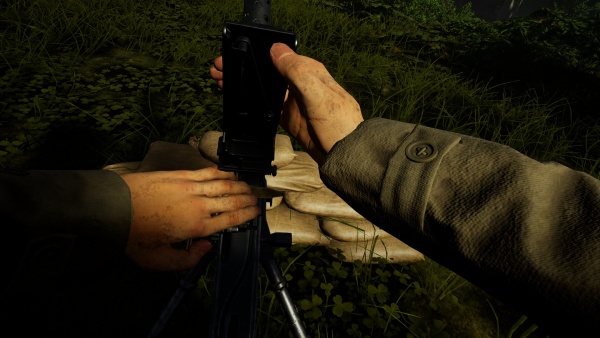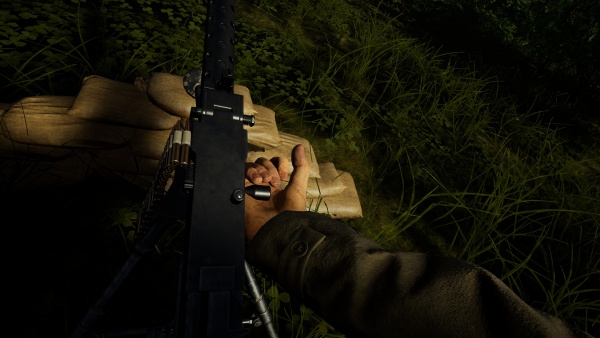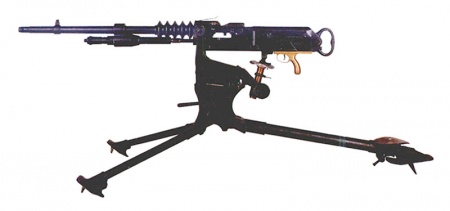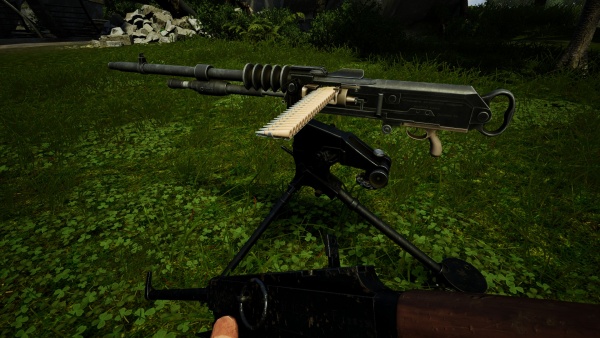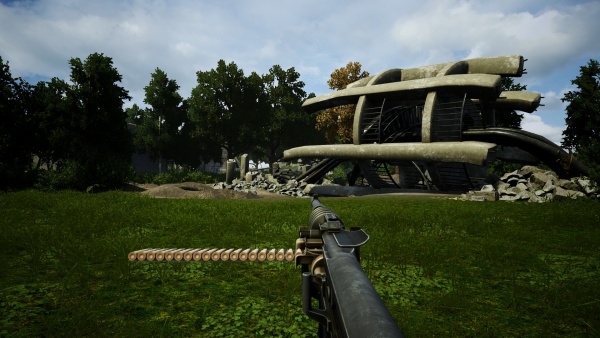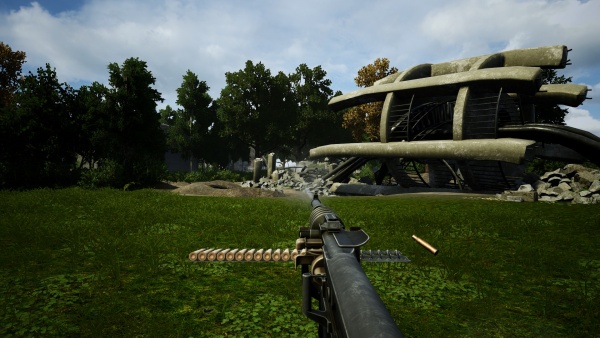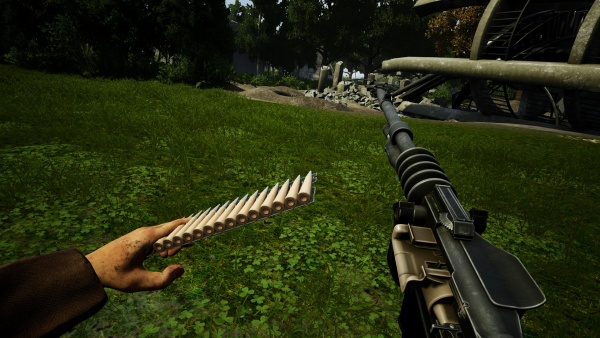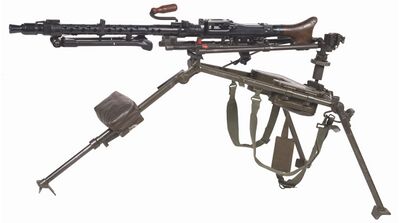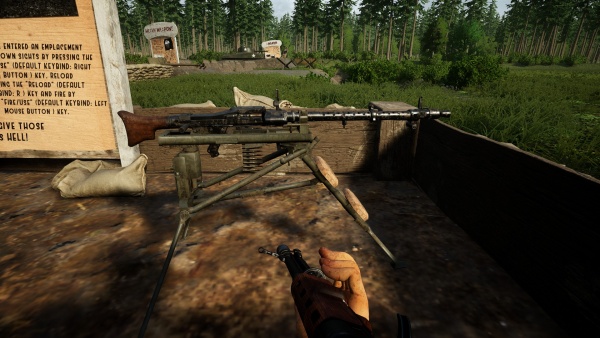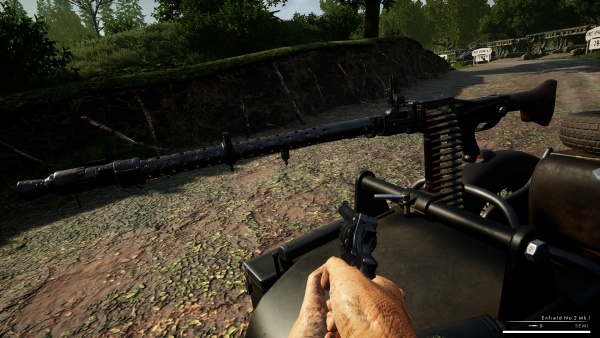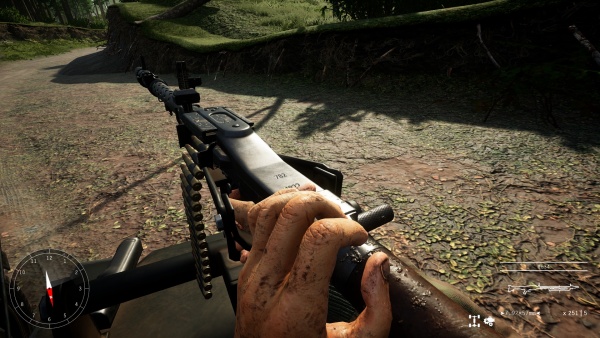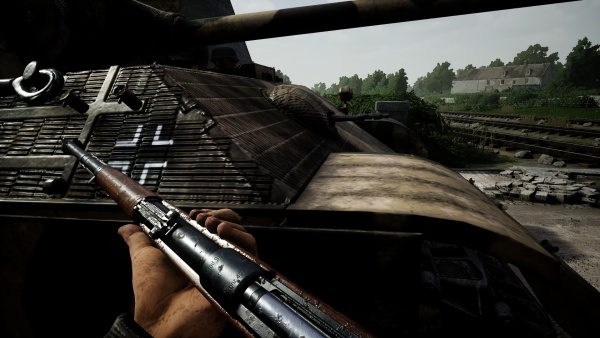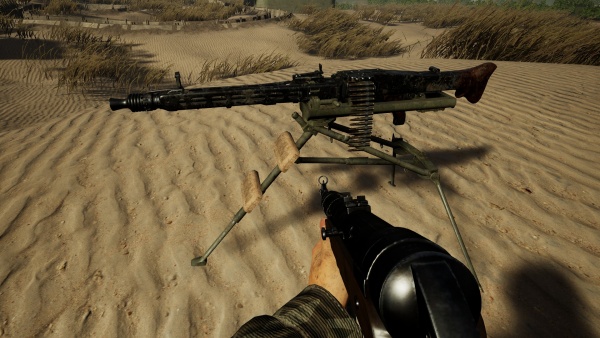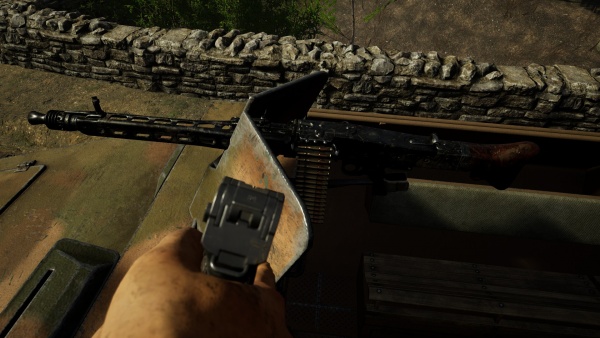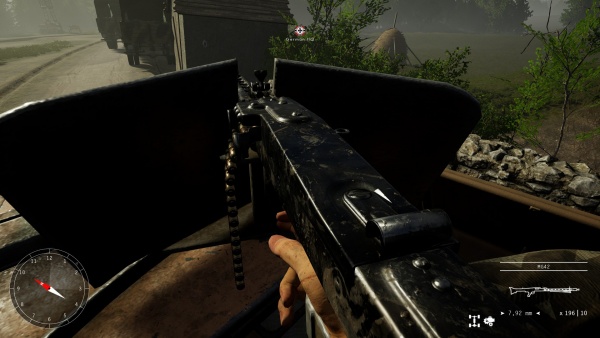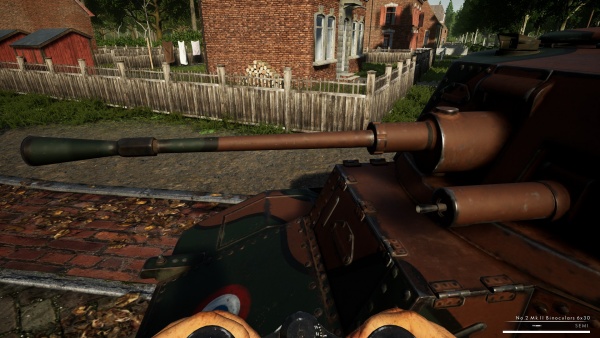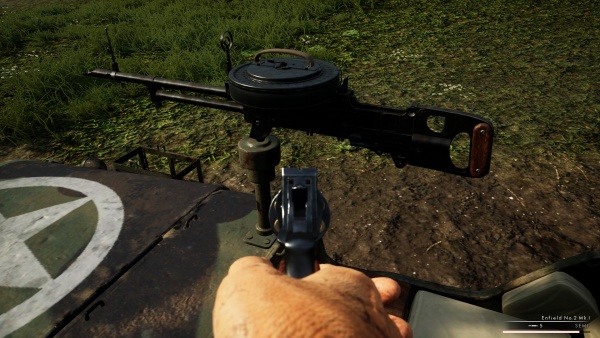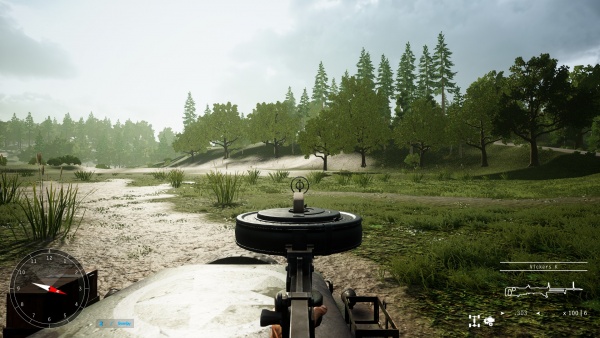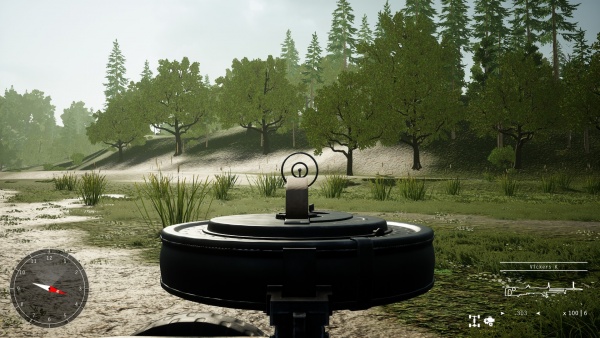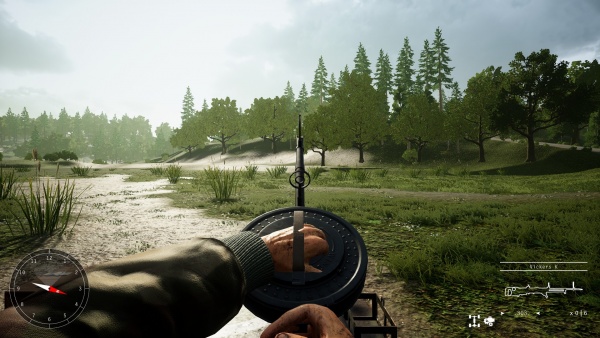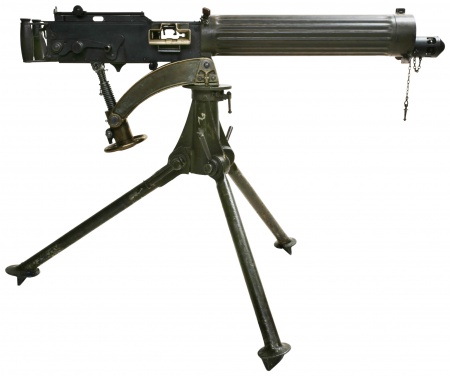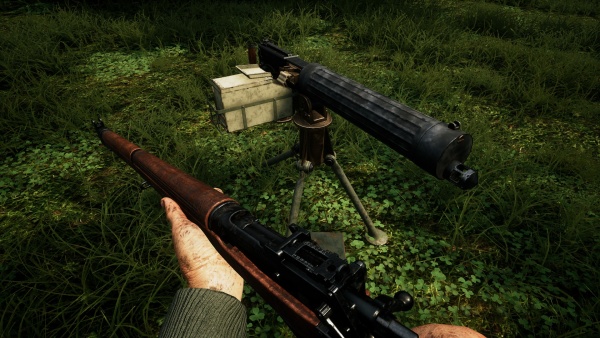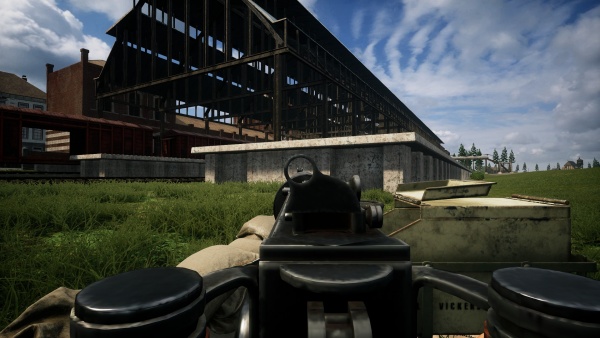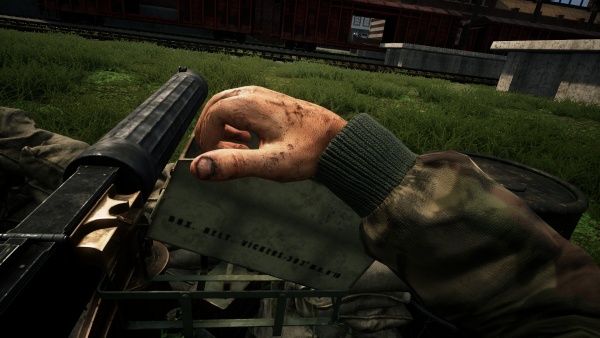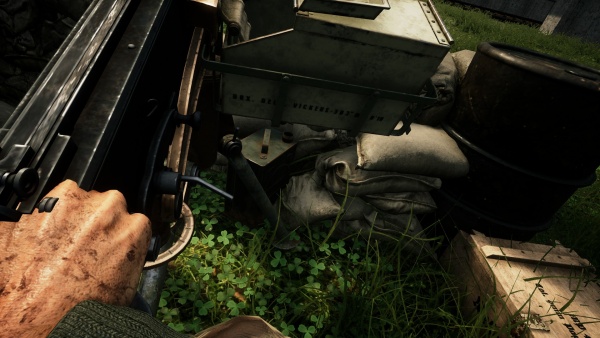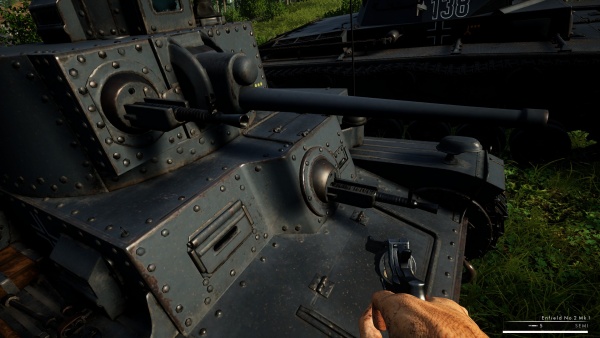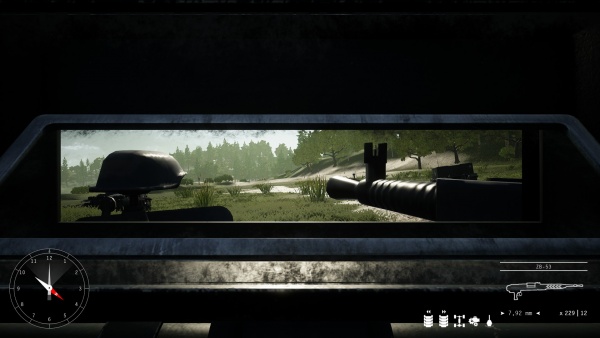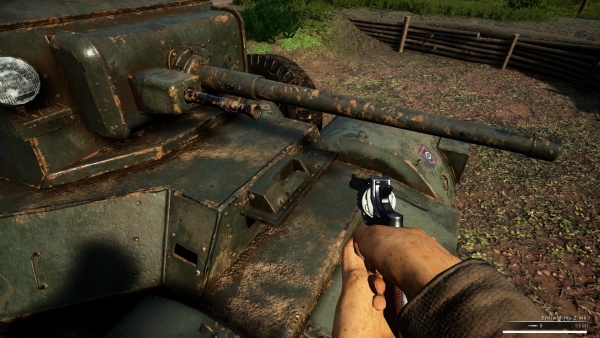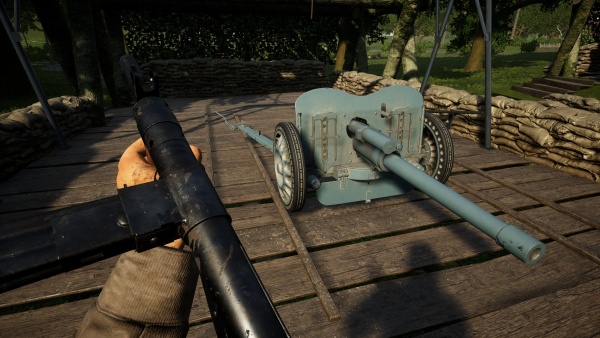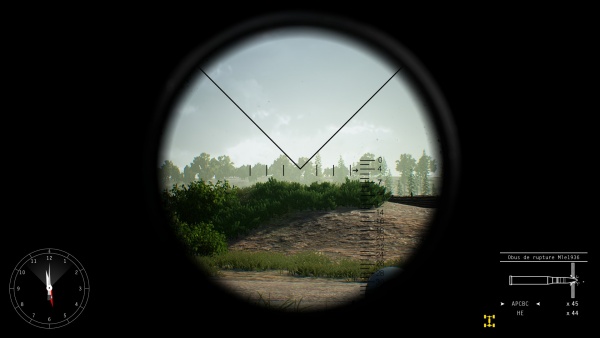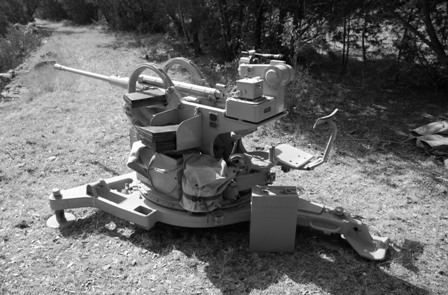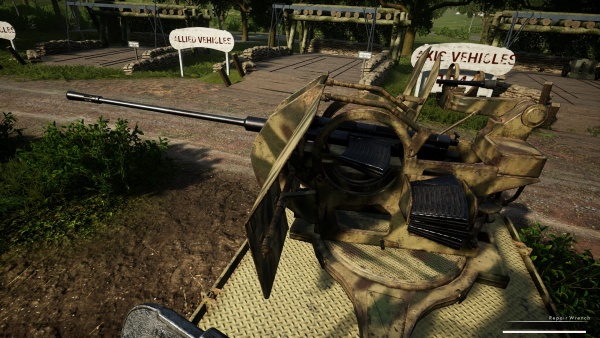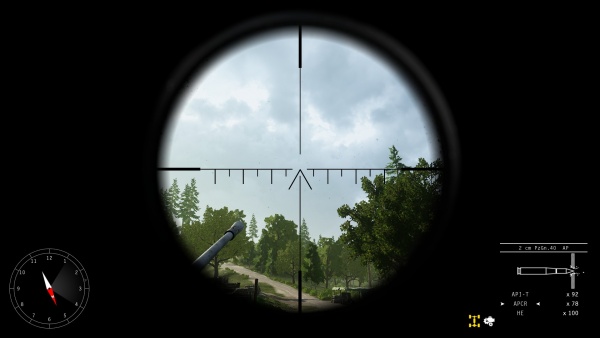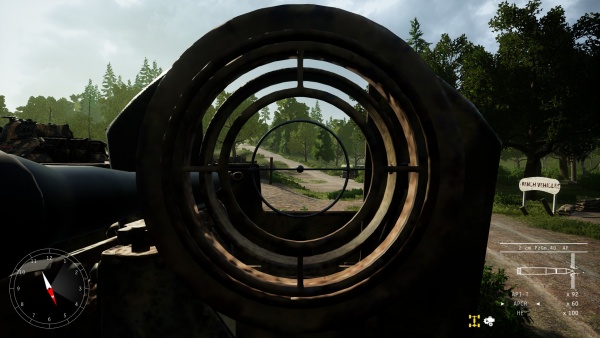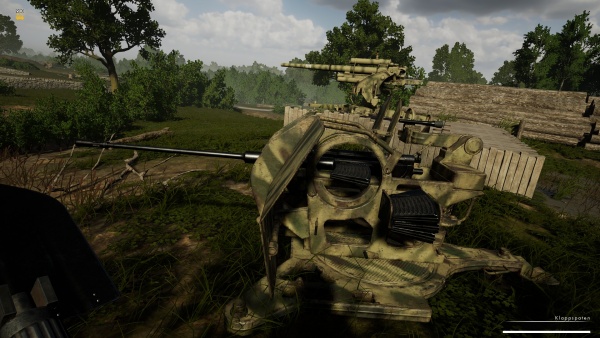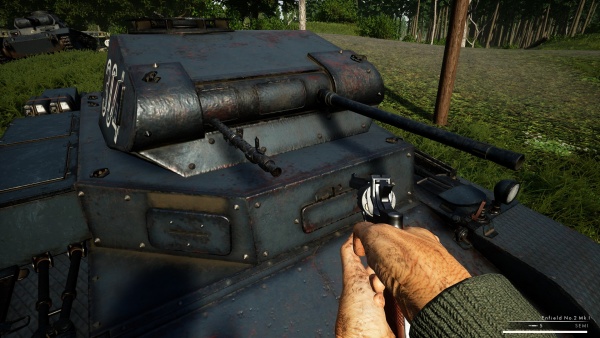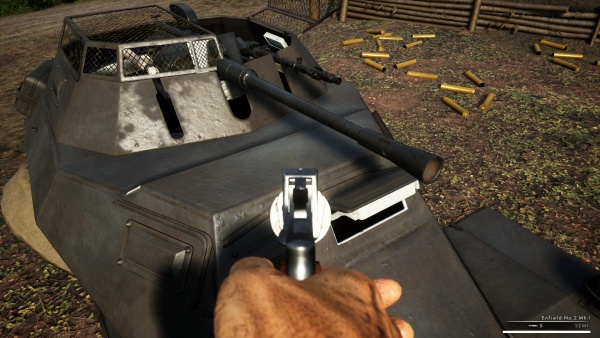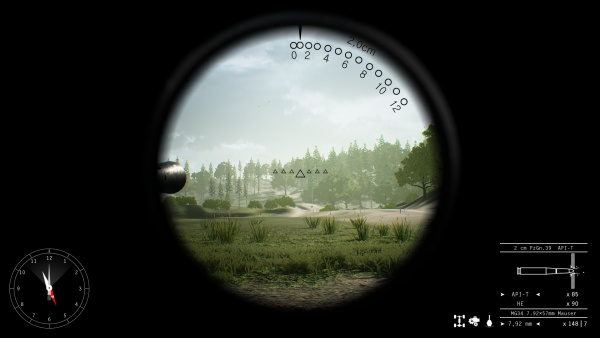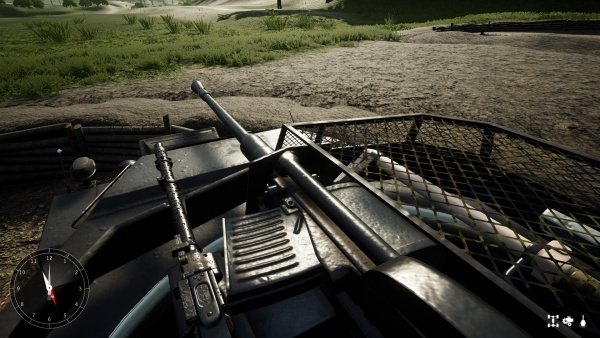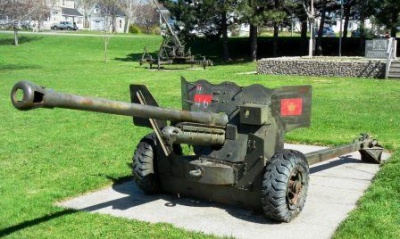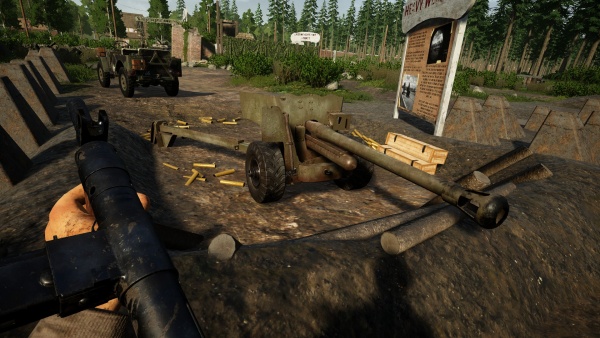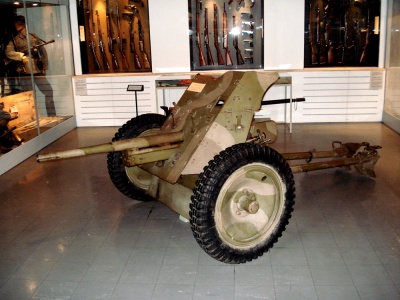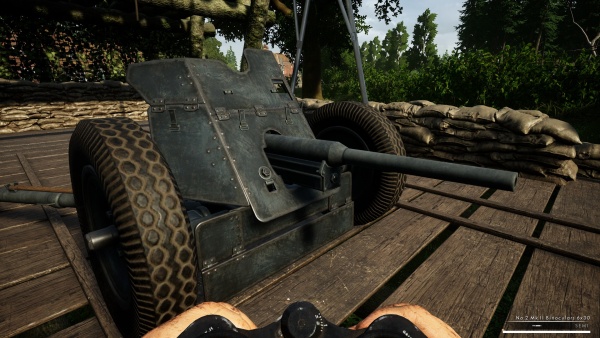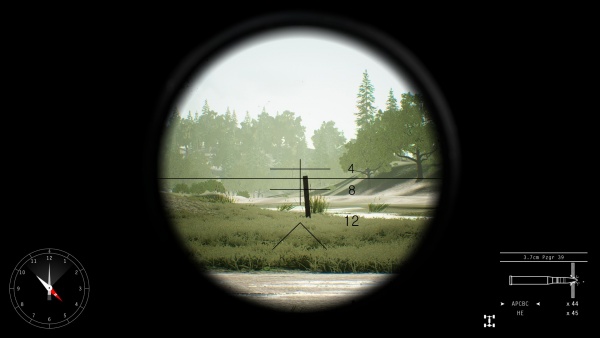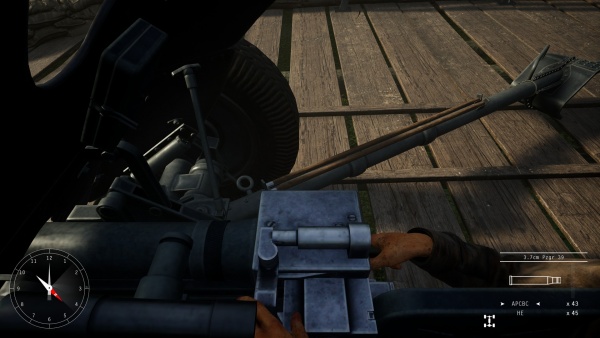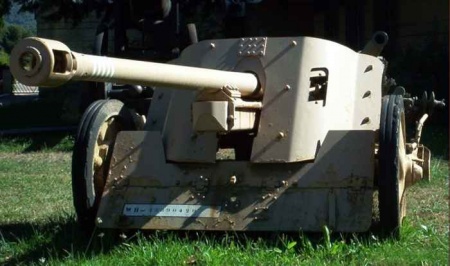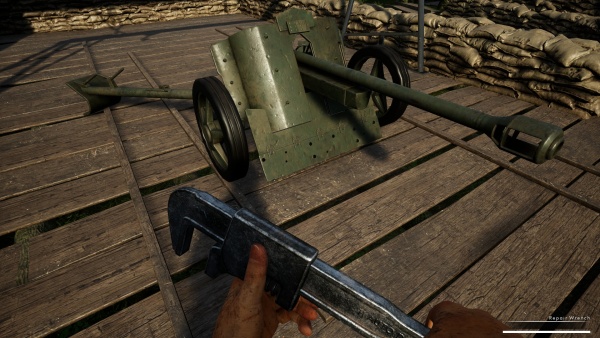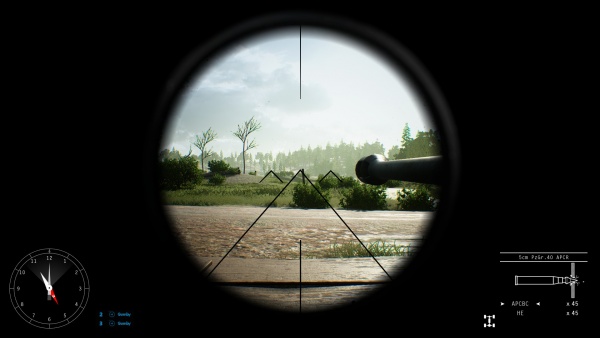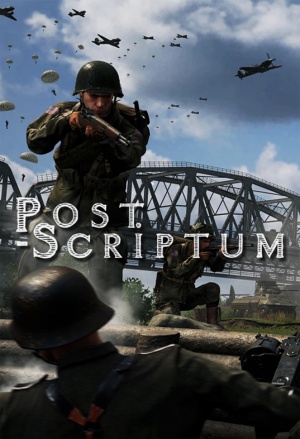| If you have been locked out of your account you can request a password reset here. |
Squad 44: Letters From The Front
|
Squad 44: Letters From The Front (formerly known as Post Scriptum) is a large scale, WWII-set first person tactical shooter developed by UK-based Periscope Games as an offshoot of Squad and is published and later developed by Squad's developer, Offworld Industries. The project began in March 2016 and officially released on Steam Early Access on August 9th, 2018. It initially released as Post Scriptum: The Bloody Seventh as first released chapter of the game focused on the engagement of the British 1st Airborne Division against German Wehrmacht and SS units during Operation Market Garden in 1944. It was further expanded to include engagements that involved American airborne units. Later chapters, Plan Juane (depicting the Manstein Plan (Fall Gelb) battle between the French Army and Wehrmacht in 1940), Day of Days (the landings of Allied forces in Normandy during Operation Overlord), Mercury (the Invasion of Crete in 1941 with defending ANZAC forces), and Watch On The Rhine (the Ardennes Offensive in 1944) expanded the fronts throughout WWII. With the rebranding to Squad 44, the game also depicts the battle of Rethymno, the second part of the Invasion of Crete.
As with its parent game, Squad 44 is a multiplayer-only game focused on teamwork and cooperation, featuring combined arms gameplay and highly realistic, detailed weaponry. It has numerous factions depending on the setting of a match, and asymmetrical gameplay and classes between the Allied units and Axis forces.
The following weapons appear in the video game Squad 44: Letters From The Front:
Overview
Squad 44 portrays historical engagements of Allies and German forces across mainland Europe in 1940 to 1944. The early era of the game's second chapter depicts the French Army's 21 Regiment d'Infanterie engagement of the Wehrmacht during the Fall Gelb operation. The later '44-set levels are from the first and third chapters and portray the Allied Operations of Market Garden and Overlord, respectively. Operation Market Garden features the British 1st Airborne Division, the Polish Brigade, and the American 82nd Airborne infantry forces supported by Britain's XXX Corps armor against a more developed Wehrmacht and 9.SS-Panzer Division. The Normandy battles of Operation Overlord include American 4th Infantry Division, the 101st Airborne, and the 70th Tank Battalion versus the Wehrmacht's 91st Infantry Division and the 6 Fallschirmjägerregiment.
The Squad system from the parent game has been developed for a faction to have three separate sections for its units - the Infantry Section encompasses most of the regular classes. The Logistics Section takes over the FOB/Construction roles from Squad and has regular riflemen, an NCO, medic, and Combat Engineers. The last section is the Armored Section and incorporates tank commanders and tankers into their various fighting vehicles.
The general classes of Squad 44 are:
- Officer - technically its own "Platoon Commander" section, the Officer role assumes the top of the team's chain of command. The class is meant to be paired with the Infantry Section's Radioman to call in air and artillery support. Officers can opt for a standard rifle or SMG; the latter is the sole option for the Germans.
- NCO - The head class of each Infantry and Logistic squad, and the intermediary between them and the Platoon Commander. NCOs have either the standard rifle or SMG for their faction, and in the case of the 1944 Germans, the Gruppenführer has exclusive use of the StG 44.
- Radioman - An Infantry class meant to directly follow the Officer and allow the use of indirect fire support. The latewar kits have the Gewehr 41 for the Funker, and the M1/M1A1 Carbine for Allied units. The early war variants use standard Kar98ks and MAS-36s.
- Rifleman - Bog-standard Infantry and Logistics personnel that use each faction's standard service rifle, in addition to frag and smoke grenades. Latewar Allied units have sidearms and the French Fusiliers and Recrues only use their older WWI-era rifles. Infantry also bear sandbags, while the Logistics have repair tools.
- Machine Gunner - the specialized automatic rifleman Infantry kit. Depending on the faction and era, some have Light Machine Guns that offer more mobility and unsupported aiming, while the Medium Machine Guns have to be deployed on bipods to be aimed effectively but have increased ammunition counts. Sidearms, frag, and smoke grenades are included.
- Marksman - Low-count Infantry kit that is issued a scoped bolt-action rifle, a pistol, grenades, and binoculars.
- Medic - Generally given a standard rifle, sidearm, grenades, and a Morphine injector as its main tool to resuscitate fallen allies. Available to both Infantry and Logistics, the latter has the repair tool.
- Grenadier - Infantry-exclusive kit equipped with Rifle Grenade Launchers and regular hand grenades. Available to all factions except the French; the German Schiessbecher is not available in that era as a balance measure.
- Sapper - Infantry class given SMGs and pistols, and explosives for dealing with enemy vehicles and emplacements.
- Anti-Tank - Generally dived into Light (LAT) and Heavy (HAT) variations. All bear rifles; the Germans use the Panzerfaust and the Panzerschreck respectively. The British only have a LAT role equipped with the PIAT; the Americans' Bazooka role is a HAT. The latewar Allies have pistol sidearms. A subvariation is also present in the early 1940 era with Fusilier antichar and Panzerabwehrschütze AT Rifle kits, as these battles predate the widespread use of handheld rocket launchers
- Light Mortar - Equipped with a regular rifle, pistol, and a Light Mortar that can be used in the prone position. The class is in all Infantry Sections except the US Forces.
- Combat Engineer - The principal kit of Logistics Sections for constructing emplacements. Generally has three variations - HE that uses an explosive similar to Sappers, AT carries antivehicle mines, and AP has antipersonnel mines. Issued with regular rifles, pistols, grenades, sandbags, E-tools, and repair wrenches.
- Tank Commander - Head kit of Armored Sections, equipped with both a SMG and sidearm. Both this and its subordinate kit have repair tools.
- Tank Crew - Armored vehicle operator, only given a sidearm and grenades, and also has the building tool.
The high degree of weapon functionality is shared from Squad. The game tracks reserve ammunition by individual magazines, fire selectors have an animation where applicable, and many long arms have sights that can be zeroed or dialed in with correspondingly accurate adjustments made to the actual rear sights. For the sake of simplicity and consistency, all weapons zero by meters (British and American systems typically used imperial yards in reality during WWII).
Pistols
Chamelot-Delvigne Model 1873
Most classes for the French 21 Regiment d'Infanterie have the archaic Chamelot-Delvigne Model 1873 revolver as an issued sidearm. It is referred to as the MAS Mle. 1873 in game.
Enfield No. 2 Mk. I
The Enfield No. 2 Mk. I revolver is the principal sidearm of the British units in Squad 44, named Enfield No. 2 Mk. 1. All kits of the faction as well as their tankers get the No. 2 revolver.
FN Model 1922
The FN Model 1922.
Luger P08
Simply indexed as Luger in-game, the Luger P08 is issued to the officer/NCO ranked classes for all German units.
M1911A1
The American forces have M1911A1 pistols issued to all classes.
Mauser C96
The Mauser C96 is issued in place of the Walther P38 for Wehrmacht kits (except for the Sanitäter) in the 1940 levels.
Nagant M1912
The Nagant M1912.
SACM M1935A
The SACM M1935A pistols are exclusively available to the Fusilier antichar and Chief ingenieur kits for the 1940 era French Army. It is named PA 1935A in-game.
Walther P38
Most of the specialized German kits have the standard Walther P38 pistol as their sidearm in the 1944-set levels. It is only available to the Sanitäter in the earlywar 1940 era levels.
Submachine Guns
M1A1 Thompson
American Officers and NCOs are equipped with the M1A1 Thompson submachinegun, with the exception of logistics NCOs, who use the Grease Gun listed below.
M3 Grease Gun
The M3 Grease Gun is used by US Sappers, logistics NCOs and by tank commanders of the 70th Tank Battalion.
M1928 Thompson
The M1928 Thompson is included as part of the Mercury Chapter content, as the SMG for ANZAC Officers and NCOs.
M1928A1 Thompson
The M1928A1 Thompson is available with a 20-round and 30-round magazine.
MAS-38
MAS-38 SMGs are available to French Officers and NCOs, and are also used by the combat engineers and by Chef de char tank commanders.
MP 40
The MP 40 is the standard submachinegun used by various classes across the German forces.
Sten Mk V
British Airborne Officers and NCOs, Sappers, and Tank Commanders have the Sten Mk V as a primary weapon. It is the only SMG that can be equipped with a bayonet.
Steyr MP 34
Steyr MP 34s are issued instead of MP 40s for 1940 Wehrmacht classes on the Dinant and Stonne levels. It is indexed as the MP 34(ö); the abbreviation refers to Österreich (Austria's name in German). Despite having a bayonet lug, the functionality is not used in-game, unlike the Sten Mk V above.
Assault Rifle
StG 44
The StG 44 is included and only available in one of the Gruppenführer loadouts for the latewar German forces.
Bolt-action Rifles
Berthier Model 1916 Carabine
Berthier Model 1916 Carabine rifles are used by the French 21 Regiment d'Infanterie Commandant, Combat Engineer, Rifleman, and Sapper kits.
Gras Model 1874
The Gras Model 1874.
Karabiner 98k
The Karabiner 98k is the standard issue service rifle for the German military in Squad 44. The Scharfschütze kits use a Zeiss ZF39 equipped Kar98k as their sniper rifle.
Karabiner 98k sniper
The Karabiner 98k with Zeiss ZF39 scope.
Lebel Model 1886 M93
French Fusilier and Recrue infantry are issued with old Lebel Model 1886 M93 rifles. The Tireur d'elite sharpshooter uses the Lebel with the APX 1917 scope as the French never issued MAS-36 with scopes in WWII.
Lebel Model 1886 M93 sniper
The Lebel Model 1886 M93 with APX Mle 1917 scope.
Lee-Enfield No.1 Mk III*
ANZAC forces in the Mercury Chapter use the older Lee-Enfield No.1 Mk III* pattern as their standard issue rifle. A scoped version is available to their sniper class.
Lee-Enfield No. 1 Mk III* (HT)
Lee-Enfield No.4 Mk 1
The Lee-Enfield No. 4 rifle is the standard battle rifle of the UK Armed Forces in Squad 44.
Lee-Enfield No.4 Mk 1 (T)
British and Polish Airborne snipers use the Lee-Enfield No. 4 Mk 1 (T) sniper rifle. Unlike the other scoped rifles in-game, the Lee-Enfield sniper can rechamber while maintaining a view through the scope.
M1903A3 Springfield
The M1903A3 Springfield is available to US Army infantry and logistics riflemen as an alternative to the M1 rifle.
M1903A4 Springfield
American marksmen use the M1903A4 Springfield sniper rifle with Model 330 Weaver scope, the signature sniper rifle of the US Army in the European theater.
Mannlicher-Schoenauer M1903/14
The Mannlicher-Schoenauer M1903/14.
Mannlicher-Schoenauer M1903/14 Carbine
The Mannlicher-Schoenauer M1903/14 Carbine.
MAS-36
The MAS-36 is the standard battle rifle for the French Army, though it is issued to specialized kits - NCOs, Radio Operators, Medics, AT and Chief Engineers, and Light Mortarmen. The general riflemen roles are supplemented with its older WWI predecessors.
Anti-Materiel Rifles
Boys MKI Anti-Tank Rifle
The Boys MKI Anti-Tank Rifle is used by the French Antitank riflemen kits.
Panzerbüchse 39
German Panzerbüchse kits use the Panzerbüchse 39, exclusively in the 1940 era. For the later set maps, German forces instead have the more effective man portable rocket launchers.
Rifle Semi-auto / Full-auto
FG 42/II
The German Fallschirmjaeger has a distinct "FG-42 Schütze" class equipped with the second pattern FG 42/II. The combination of the muzzle brake and buffered stock results in surprisingly good recoil control even when shooting offhand.
Gewehr 41(W)
Wehrmacht Funker radiomen are equipped with the rare Walther model of the Gewehr 41, the immediate predecessor of the Gewehr 43. As its magazine is fixed, it only loads from clips, but it does have the ability to mount a bayonet.
Gewehr 43
In turn, the 9.SS-Panzer radioman class uses the Gewehr 43 rifle, with eight magazines rather than clips for reloads.
M1 Garand
The M1 Garand rifle is the standard service rifle for American forces.
M1 Carbine
M1 Carbines are available to the US 4th Infantry forces introduced in the "Day of Days" chapter.
M1A1 Carbine
The M1A1 Carbine is issued to the US Airborne Radioman, Medic, and Combat Engineer classes. British Airborne radiomen kits also have access to the M1A1 Paratrooper carbine.
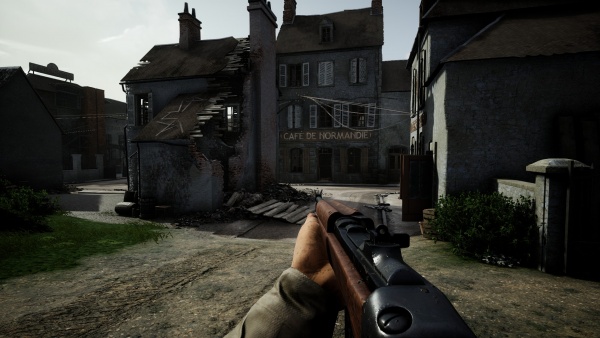
Machine Guns
Bren Mk2
The Bren Mk2 is the machine gun available for British Airborne, XXX Corps soldiers, and the Polish Brigade. It is a lightened development of the Mk II that was issued in July 1944.
Browning Automatic Rifle M1918A2
The Browning Automatic Rifle M1918A2 is one of the two machine guns used by the American forces, offering better mobility and the ability to be aimed offhand compared to its belt-fed brother below.
Browning M1919A6
American forces also have a machine gunner class equipped with the Browning M1919A6 machine gun, offering a more volume-of-fire oriented choice compared to the maneuverable BAR.
Chatellerault FM 24/29
Chatellerault FM 24/29 machine guns are the second option available to French gunners.
Chauchat Mle 1915
The Chauchat Mle 1915 machine gun is one of the two options for French machine gunners.
Lewis Gun
Lewis Guns are used by the ANZAC forces as their machine gun. It has to be deployed in order to be aimed, akin to the belt-fed GPMGs.
MG 34
German machine gunners are primarily issued with MG 34 machine guns, feeding from 75-round Gurtrommel 34 drums. As a medium machine gun, it is only usable in hipfire until deployed on cover or in prone. The fire-selector functionality allows for the single shot trigger to be used. The MG 34 is used in a stationary emplacement on the Lafette tripod, and is mounted in a few vehicles such as the BMW R75 sidecar and one variant of the Sd.Kfz.251.
MG 42
The MG 42 is available to German units in the 1944 levels, both as a man-portable MMG feeding from the assault drums, or as a FOB emplacement. It is also mounted in one variation of the Sd.Kfz. 251 halftrack.
ZB vz. 26
ZB vz. 26 machine guns are issued in place of the then non-existent MG 42 for the Wehrmacht in the 1940 maps. It is indexed under its Wehrmacht designation, MG-26(t), in-game.
Launchers
Enfield Cup Grenade Launcher
The No.1 Mk.I Cup Discharger, affixed to the Lee-Enfield No. 4 is issued to the British Forces' Grenadiers, with 4 Mills Bomb projectiles.
Gewehrgranatengerät
German Schiessbecher grenadiers use the K98k equipped with the Gewehrgranatengerät device. It only has the Gewehr-Sprenggranate as the available projectile.
M7 Rifle Grenade Launcher
The M7 Rifle Grenade Launcher in conjunction with the M1 Garand is issued to American Grenadier kits. It has the most options for projectiles, included Mk. 2 fragmentation warheads for infantry, M9A1 Rifle Grenades for anti-armor/vehicle use, and M16 Smoke Grenades for concealment.
M1A1 Bazooka
US 4th Infantry Division Bazooka troops use the M1A1 "Bazooka" rocket launcher.
M9A1 Bazooka
The M9A1 "Bazooka" variant is used by the 82nd and 101st Airborne Bazooka kits.
Panzerfaust 60
The German Forces 1944-era Leichte Panzerabwehr kit has the Panzerfaust 60 disposable launcher.
Panzerschreck
The Panzerschreck launcher is used by the German Schwere Panzerabwehr class in the 1944 era levels, and has two rockets. It goes by its full German moniker of Raketenpanzerbüchse 54 in-game.
PIAT
British and Polish Light AT units utilize the PIAT launcher as their anti-vehicle launcher.
Grenades and Explosives
F1 Grenade
French 21 Regiment forces have the F1 hand grenade as their standard fragmentation grenade.
Hafthohlladung Anti Tank Mine
The magnetic Hafthohlladung Anti Tank Mine is issued to German Heavy and Light Antitank, and Sapper kits. It has to be manually placed and functions on a timed fuse.
Hawkins Grenade/Mine
American and British forces have the Mk-II No. 75 Hawkins Grenade/Mine as an explosive used by their Sapper and Bazooka/PIAT classes. It functions identical to the HHL mine.
M1A1 Mine
M1A1 Mines are used by American Combat Engineers.
M2A1 Mine
The M2 Mine is used as the antipersonnel mine for US engineers.
M8 Smoke Grenade
The AN/M8 HC smoke grenade is used by American forces, with both white and red versions.
Mills Bomb
Mills Bombs are the offensive grenade of choice for the British units.
Mle 1935 Mine
The Mle 1935 Mine is a heavy antitank mine used by the French HAT Ingénieur de combat.
Mle 1936 Mine
The Mle 1936 is given to the French LAT Engineer, as a smaller yield antivehicle mine.
Mle 1939 AP Mine
Mle 1939 Mines are the last French mine type, used by engineers for antipersonnel use.
Mk. 2 Hand Grenade
The Mk 2 Hand Grenade is the standard fragmentation grenade for US forces, appearing as the Mk.II Frag in-game.
Mk II anti-personnel mine
The Mk II anti-personnel mine are issued to British Combat Engineers.
Model 24 Stielhandgranate
The German units are equipped with the iconic Model 24 Stielhandgranate for their explosive hand grenade. The Geballte Ladung bundled charge serves as an AT grenade, used by both of the Antitank kits - the Light only gets one bundle, while the Heavy gets two.
Model 39 Eihandgranate
The 1940-era Wehrmacht uses the Model 39 Eihandgranate instead of stick grenades on the Dinant and Stonne levels.
Nebelhandgranate 39
Nebelhandgranate 39s are the smoke grenades used by the German forces.
No. 77 WP
British units use the No. 77 Smoke Grenade. Unlike the other harmless smoke grenades, the No. 77 has a lethal detonation of White Phosphorous smoke, although the smoke cloud lingers for a shorter duration than other factions' equivalents.
No. 82 Gammon Grenade
The Gammon Grenade is available to the British LAT, Grenadier, and Sapper classes as an AT grenade. It appears as the Gammon Bomb.
S-Mine
German Kampfingenieurs are equipped with the S-Mine for antipersonnel use.
Tellermine 35
The Tellermine 35 is the standard AT mine for German combat engineers.
Mortars
Brandt Mle 1937
The French Mortier legier is equipped with a Brandt Mle 1937 small mortar.
Granatwerfer 34
The Granatwerfer 34 Mortar is the emplaced medium mortar for the German forces.
Granatwerfer 36
German Leichter Mörser troops use the Granatwerfer 36 Mortar.
M2 Mortar
American units have the M2 Mortar as their constructible mortar emplacement.
Ordnance ML 3 inch
The Ordnance ML 3 inch Mortar serves as the emplaced medium mortar for British and French forces.
Ordnance ML 4.2 inch
The Ordnance ML 4.2inch is the heavy mortar emplacement for the British and French factions.
Ordnance SBML 2 inch
The 1st Airborne Division's Light Mortar class has the Ordnance SBML 2 inch Mortar, with both HE and smoke rounds.
Mounted Weapons
Mounted Machine Guns
Browning M2HB
The Browning M2HB is mounted on the US M3 Halftrack. It reuses the M2A1 model from Squad, which is anachronistic for WWII.
Browning M1919A4
Browning M1919A4 are used by American forces, in both standalone buildable versions and mounted on several different tanks and armored vehicles.
Hotchkiss Mle 1914
Hotchkiss M1914 machine guns are buildable MG emplacements for the 1940 French forces.
MG 34
The MG 34.
MG 34 Panzerlauf
German armored vehicles and Panzers mount the MG 34 Panzerlauf in numerous installations. It does reuse the heatshield of the regular MG 34 rather than the proper reinforced jacket.
MG 42
The MG 42.
Reibel Mle. 1931
The Reibel Mle. 31, the tank-mounted derivative of the Chatellerault, is mounted in French armored vehicles. It is generally referred to as the "MAC Mle 1931" in the vehicle HUD.
Vickers K
British Willys Jeeps have a single Vickers K machine gun mounted in the right side passenger seat.
Vickers Mk1
Vickers Mk1 machine guns are buildable emplacements for all Allied factions in Squad 44.
ZB-53/Besa
The ZB-53 machine gun is mounted in the 1940-era German Panzer 38(t), and the BSA produced Besa variant is used in British armored vehicles.
Mounted Cannons
APX 47mm
The French Army uses the APX 47mm antitank gun on the Dinant and Stonne levels. It appears as a towable emplacement and also on the Laffly W15TCC truck, in a rear-facing bed mount.
FlaK 38
The 2cm FlaK 38 antiaircraft cannon is a constructible German FOB emplacement. Sd.KFz.8 trucks also have a single FlaK 38 emplaced on their rear beds.
KwK 30
Several German armored vehicles have 2 cm KwK 30 L/55 autocannons, such as the 1940-era Panzer II and the 1944s Sd.Kfz.222
Ordnance QF 6-pounder
The 1944 Allied forces have the Ordnance QF 6-pounder as their towable artillery emplacement.
Pak 36
The 3.7 cm Pak 35/36 is used by the 1940-era Wehrmacht in the Dinant and Stonne maps.
Pak 38
German forces in 1944 have the 5 cm Pak 38 as their antitank artillery piece.
See Also
Post Scriptum
- From August 9, 2018 to December 14, 2023, the game was known as "Post Scriptum". The game's logo from that period is shown below.
